Free shipping over $75 USD
Get the most effective travel essentials here.

Learn about our story and our products.

- Try FLIGHTFŪD We're currently experiencing turbulence


Your carry on baggage
Free US Shipping on Orders $39+
Before you take off, we think you may also love this.

Water Bottle
- Try FLIGHTFŪD
- Travel Fatigue Explained: Signs, Symptoms & Causes
You know that feeling when you’ve been traveling and you just feel exhausted? Even if you were traveling for fun, and enjoyed every moment of your trip, you somehow crave stability, routine, and rest.
This could be a sign of travel fatigue .
Although travel fatigue doesn’t get as much press as jet lag, this temporary exhaustion drains your energy and can feel like burnout. Travel fatigue, unlike jet-lag, doesn’t even have to involve air travel.
In fact, it can be caused by any form of transport: planes, trains, boats, and road trips.
Article Guide
Travel fatigue on road-trips, travel fatigue on flights.
- WHAT CAUSES TRAVEL FATIGUE
- SYMPTOMS OF TRAVEL FATIGUE
- COPING WITH TRAVEL FATIGUE
- TRAVEL FATIGUE IS NOT JET LAG
- RESTORE THE EXCITEMENT OF YOUR TRIP WITH THESE TIPS
What Causes Travel Fatigue?
There are a few main causes of traveler’s fatigue. We’ll get into the details, but before we move on to the causes, symptoms, and remedies of travel fatigue, let’s break it down to the different types of travel.
You’re more likely to feel travel fatigue on a road trip compared to, for example, a train. Not that many of us travel by train these days (perhaps that’s a bad thing!).
This is because when you are traveling on a road, your car or bus accelerates and decelerates frequently, because of the natural flow of traffic. The vehicle also takes various turns that sway your body from one side to another, causing bodily stress.
That’s why you feel so sore and stiff after a long day in the car!
The condition of your vehicle, its seats, and even the quality of the roads also determine the level of comfort that you experience.
You might not realize but all these factors can provide exhaustion not only to your body but also your mind. Your brain stays active and keeps the concerned muscles engaged to account for these movements and to maintain your posture properly. All these movements make your muscles work continuously and leave you tired.
Flights do not provide relief when it comes to experiencing fatigue. You might argue that since airplanes do not change their speeds and directions as frequently as cars do, they shouldn’t impact you quite as much.
This is far from reality.
Flights have different factors that make you feel tired. Altitude is one such factor. Your body needs to adjust to altitudes that are unnatural for humans. Although the cabin pressure helps you in adjusting to the altitude changes, the environment inside an aircraft doesn’t mimic your “ normal”.
Aside from altitude, there are many health effects that happen to your body when you fly . These contribute to travel fatigue.
For example, the following things are almost inevitable on flights:
- Dehydration. To maintain the required temperature inside the cabin, most airlines regulate the air pressure inside by changing the composition of the air. Did you know that the air inside the cabin is 15% drier than ground air? This is why you feel dehydrated and your skin dries up while flying. Read more here: Does Flying Dehydrate You? Your Guide to Air Travel Hydration
- Impaired circulation . Sitting for long periods and the altitude of the plane impairs your circulation which fatigues the body and causes other unfavorable effects. Learn more: Swelling When Traveling? Here’s Why It Happens + What to Do
- Bloating and indigestion . Your body has to work hard to keep the blood circulating throughout your limbs, deal with dehydration and fight off airborne viruses and the excess of bacteria that compromises your immune system when you’re flying. It re-routes many of those resources from digestion, causing bloating and gas. Read more: Bloating After Flying: What Causes Jet Belly & How to Prevent it
Let’s not forget the plane movements which further add to the fatigue. Turbulence, noise, rolling, and shuddering that you experience during a flight are not normal.
Your body understands this and tries hard to stabilize itself which reflects in the form of exhaustion.
What Causes Travel Fatigue
In addition to the mode of transport, there could be various causes that you might be feeling travel fatigue:
#1. Hectic Travel Schedules
When you’re eager to make the most of your trip, you might over schedule yourself. Monasteries, climb mountains, sampling local foods, hitting the beaches, enjoying the nightlife and visiting important landmarks tend to make it onto most travel schedules… sometimes all in one day.
If you’re guilty of this, you may experience travel fatigue. Rightly so! You’re not letting your body relax.
Try to slow down, take proper breaks, and plan things in line with your body’s needs.
#2. Jet Lag & Sleep Deprivation
If you fly to your destination, you may be experiencing jet lag . This could be the case even if you landed in a place just a couple of hours ahead or behind the time zone you’re used to. .
If you took a red-eye flight , this will almost certainly be the case.
Jet lag comes with a host of health impacts, and if you experience jet lag enough, travel fatigue could be one of them. It is essential to listen to your body and determine what it needs. Even if you’re excited to explore, take a nap, get plenty of rest and try to mitigate the impacts of jet lag.
If you start your day at 4 am in the timezone you came from, make sure that you hit the hay by 9 pm to catch up on sleep. If you’re busy exploring the nightlife, try to sleep in. If needed, take a day off and give yourself time to adjust!
#3. Disorganization
When it comes to traveling, there are two kinds of people:
- The ones who do everything at the last minute
- The ones who keep it well-organized and stick to a well laid-out plan.
If you belong to the first category, it is likely that you will experience travel fatigue sooner. Packing your bags at the last minute, stressing about missing your flight or train, and making travel arrangements in the nick of the time are only going to give you unwanted stress. This will later reflect itself in the form of travel fatigue.
The Symptoms of Travel Fatigue
If you experience any of these symptoms, the chances are high that you are suffering from travel fatigue:
#1. Exhaustion
That fatigue that you feel when you want to collapse in bed after a long travel day… even if you’ve been sitting in a car or on a plane all day?
That’s exhaustion.
Sometimes, the exhaustion doesn’t go away after a long sleep. If it sticks around for weeks after your trip (if you even have that much time between trips!) then it’s probably travel fatigue.
To help with this symptom, try to exercise and get your blood moving. Eat healthfully and, of course, get plenty of REM sleep.
#2. A Suppressed Immune System
Travel in itself can compromise your immune system. Have you ever noticed that you’re far more likely to get sick after traveling than you are if you had just stayed home? 100x more likely, in fact .
That’s a function of jet lag, the physical act of travel, and exposure to bacteria and viruses your body has not been exposed to (and therefore hasn’t built antibodies to fight).
A suppressed immune system is a common symptom of travel fatigue. Do what you can to boost your immune system. Take a travel supplement high in immune-boosting vitamins and minerals, like Flight Elixir , before and during your trip.
We added vitamin C, glutathione, Pycnogenol, elderberry and astragalus into Flight Elixir to help support your immune system.
Rest up, drink plenty of fluids, and wash your hands to reduce the duration and likelihood of contracting an illness.
#3. Feelings of Stress or Burnout
Back-to-back flights, early morning wake ups, and traveling too often can catch up to you.
If you’ve been traveling a lot and are experiencing stress, anxiety, insomnia, or difficulty focusing, you may be experiencing travel fatigue.
The best way to deal is to take a break. If you’re traveling, consider extending your trip to an extra day or two. If not, try to slip back into your normal routine. Whether you’re at home or away, exercise! It releases endorphins in the body which act as mood-lifter.
#4. Poor Nutrition & Excessive Alcohol Consumption
Exploring the local food of a place you are traveling to is important. After all, it helps you connect to the place and culture at a deeper level. Plus, food is one of life’s pleasures!
But if you find yourself overeating, you may be experiencing travel fatigue.
Excessive alcohol consumption is another common symptom of travel fatigue. This one could be a bit tough to recognize as traveling and drinking can go hand in hand. But if you find yourself drinking to excess, you may be attempting to self-soothe your travel fatigue.
Coping with Travel Fatigue
#1. be prepared to meet your body’s needs.
During your trip, make sure that you are listening to your body’s needs. Eat healthy by packing healthy snacks like carrots, apples, and nuts. Keep your body hydrated by drinking lots of water and avoiding alcohol and coffee.
If you are flying, make sure that you adjust your body’s internal clock by sleeping in accordance to the time zone of your destination. However, if you are really fatigued, having short naps of 15-20 minutes are fine.
#2. Feel ‘Back Home’
Often, traveling could be all about socializing. You meet new friends, network, and share thoughts with like-minded people.
However, if you are not liking being on top of your social game and are feeling tired, the best way out here will be to talk with your best friend, mother, partner or dog – whoever tends to relax you.
Watch some cooking videos, or listen to the voices of your favorite people on the earth – either way, remember that traveling could be fun and all, but oftentimes, it is best to disconnect and experience life at slow.
#3. Disconnect
Waking up at the crack of dawn, catching flights and trains, exploring your destination – all this takes a toll on your energy and makes you feel empty.
While running could be a great way to de-stress yourself, travel fatigue sucks the inspiration out of you. If you feel like this, all you need to do is stay in your bed, watch movies, sleep – whatever works for you. Don’t feel guilty for taking some down time. Your body needs it.
#4. Plan in Advance
You can avoid travel fatigue to a large extent by planning your travel well in advance. Book your hotel in advance and ask them about food availability. Research local food and shops online. You can also have a look at TripAdvisor and ask your friends and family for references.
To further lessen your fatigue, make sure that you have packed all the travel sleep essentials with you including eye mask, earplugs, immune-boosting travel supplements , protein shake sachets, snacks, The Travel Water Bottle , and so on.
Also, have a closer look at your itinerary and see what all you are going to cover. This will help you in planning your days properly, and will also help you remember your goals.
Travel Fatigue is Not Jet Lag
Often used interchangeably, there is a significant difference between travel fatigue and jet lag. While travel fatigue could be caused by any mode of transport, jet lag is related to aircraft and timezones.
Also known as time zone change syndrome, jet lag is when people travel across different time zones and end up disrupting their sleep cycle. This condition is seen related to circadian rhythm disorder and can lead to irritability, insomnia, and headaches.
Restore the Excitement of Your Trip With These Tips
Traveling soon? Make it comfortable and enjoyable with these strategies. Follow the tricks we discussed above, and have a comfortable trip.
Sarah Peterson
Sarah Peterson is the co-founder and head of marketing at FLIGHTFŪD. She's a travel health expert and after having visited 20+ countries as a digital nomad and flying every 4-6 weeks for business, she became passionate about empowering others to protect their bodies on the go.
I feel better knowing this is probably not COVID.
Great article, best piece on the subject. Prior to Covid I travelled on business too much and experienced all of the above. The distincion of travel fatigue vs jetlag is very insightful. Interestingly short flights take a greater toll vs America-Asia flight. Spoke to an airline CEO once, he explained that older planes are harder on passengers (pressurize less effectively, dryer environment and oxigen levels lower)
I am so pleased to have found your piece. About 2x a month, I make a 4-6 road trip and I find every time after the drive, I am completely exhausted for at least a day and sometimes 2 days after the driving and now I know why!! Thank you!!!
Leave a comment
Explore more.
- Healthy Travel
- things to do
- Travel Destinations
- travel essentials
- Where to eat
- where to stay
Popular posts

Featured product

FLIGHT CHECK IN
Check into the VIP News Room. Stay up to date on all flight changes.
A Little Confession… Learning to Recover When Travel Fatigue Sets In
Last updated on January 12, 2024 by Shannon
Have you ever had those trips where you just feel the planets aren’t aligned for you to be traveling right now? Everything is going minorly wrong, or it’s altogether more exhausting than you anticipated?
Across my 15+ years of travel, sometimes travel fatigue set in quickly and made me feel tired, sad, and alone. I first experienced it on my round the world trip in month eight, and then when backpacking solo through Central America was far harder than I expected.
Like, much harder. Same deal with solo backpacking Africa years later, after a fun run of five years where life on the road jibed with my mental state at the time.
Travel fatigue is something not frequently discussed among travelers, but it’s very real according to science . While you can avoid it a lot of the time by being aware and proactive, it will eventually set in on any long-term trip.
With the right steps though, and with some prior knowledge of what’s worked for other travelers, it’s possible to cure travel fatigue—or at least recover enough to continue enjoying your trip.
What is Travel Fatigue?
Travel fatigue is a total exhaustion caused by too many days or weeks of constantly being on “alert” while you travel. It manifests as apathy toward travel activities that usually excite you, and a lack of motivation to enjoy local culture and cuisine. Like other types of burnout, travel fatigue is a feeling of deep weariness and disengagement.
Pinning down what this looked like to me was actually one of the harder steps in the process of learning how to how to recover from travel fatigue. It’s not any one thing that I can always put a finger on.
For me, I would often still enjoy the countries I am visiting and many of the unique experiences. I would even slow down as a first remedy for it—in Central America I just planted myself in Guatemala to see if that would help with the travel fatigue (and because I really like Guatemala !).
But a few minor difficulties (and a few not so minor difficulties) would seem too big to handle—my mind blew them out of proportion as signs that I was doing something wrong. I’m incredibly grateful that I get to travel —that’s not the issue here. It’s more that the whole experience can seem harder work than it should be.
My round the world trip had ups and downs , but the tiredness I felt in Central America was just different. My debit card was cloned; money was stolen and it was a straight up fiasco to get a new one through the Guatemalan postal system and to my doorstep—a hostel in Xela that agreed to front me accommodation until my card arrived. This in and of itself, not such a big deal— it happens right ?
This incident, though, points to some wider overarching issues that have cropped up in the past three months—lots of illnesses this trip , some big family problems cropped up back home , and it seems like I’ve faced more general difficulties while traveling this part of the world.
Science says travel is tiring on the body in every way —and that’s just the act of normal, uncomplicated travel.
So I had to ask myself: Are there more difficulties than on my RTW trip , or am I just tired? Is the Universe was conspiring against me—are the gods of travel just telling me to go home? Or is normal fatigue just combining with a few more trying situations to make this all just seem unmanageable. This is what I pondered.
Perception is reality, facts notwithstanding. We must alter our perception of a situation to see alternatives, and a different perception often leads to a different reality. That’s my firstline approach to travel fatigue: accept, acknowledge, and consider—reframe your perspective and perception.
Easier said than done though. When I was exhausted in Central America, I had a month left on my six-month backpacking trip before heading home to the States for a wedding. Although I deeply wanted to expat myself somewhere for six months or a year ( Thailand ?), to have a homebase and explore more from there, I needed to recover from my fatigue in the short-term. Here’s what worked when I asked long-term travelers for their best advice on curing travel fatigue, and steps to avoid it in the first place.
How to Recover From Travel Fatigue
Update : After receiving incredible support from the travel community in the comments and via email—thank you, by the way—I’ve collected a list of advice for others who might find themselves in this situation: hitting a wall of tiredness and feeling complete inertia in your travels.
I’ve also written an extensive post on how to cope with loneliness while traveling , offering additional tips there, because loneliness often factors into travel fatigue, even if you’re not traveling solo.
If you’re feeling travel fatigue, first, know that you’re not alone. Then take steps to help cure those negative or lonely feelings. Travel can feel very isolating if you’re not vigilant, so please take it seriously and find the ideas that help you recover a sense of joy in your life and travels.
1. Pick a Place and Stay There
Every time I feel similarly to how you’re feeling, I’ve realized that the constant movement from place to place was the culprit. And so I would just stop or I would move to some ideal place for three or more months in order to regroup. Derek from Wandering Earl
How to Avoid Travel Fatigue Long-Term
Don’t let your exhaustion get to the place of a bone-deep tired by traveling slowly. This is the single best way to ensure that you continue to enjoy every place you visit. It’s especially important in long-term travels.
Any traveler on the road for months should consider a place they’re keen to experience more like a local—then move there! Use my extensive digital nomad cost of living guides to find the cities and countries most welcoming to travelers in need of a break.
2. Take a Nap & Get a Solid Night’s Sleep
If you’re on a short-term trip and you need a solution today, consider taking a nap. And no matter how long your trip, make an early night of it for several nights in a row if you’ve been moving too quickly to get your recommended seven to eight hours of sleep every night. Sleep is important to wellbeing, and travel (and the strange beds, jet lag, and long days) can exacerbate any sleep issues you might have. Plus, things always look better when you are well rested. So, take a nap, skip the alcohol, and sleep.
Fiercely protect your sleep routines on the road. It’s easy to get caught up in the sheer joy and fun of round the world travel—that can mean late nights out drinking and enjoying the company of new friends—but if you’re on the road for weeks and months, you need a functional sleep routine, too.
To avoid travel fatigue in the long-term, consciously assess your sleep patterns and construct a cadence of travel that allows you to get a full night’s rest more often than not.
3. Assess Your Current Country & Consider Moving On
Although we loved Guatemala, I have to say that traveling there was emotionally difficult at times. Each time we would tell people our plans, the response would be “ peligroso ” and we’d have to figure out whether we would be faced with armed robbery or just standard pickpocketing. It also seemed like a national pastime for people (locals and expats) is to tell you the latest bus-jacking or kidnapping incidence in the country. Audrey from Uncornered Market
When deciding your around the world itinerary , pick a mix of travel destinations that are easier and more challenging. Travel fatigue hit me for the first time after spending six months in challenging destinations across Southeast Asia and South Asia—all of that time “on alert” every single day took a toll on me mentally and physically, and I faced a bad case of burnout as soon as I left that region of the world.
A better designed itinerary will give you a balance of destinations—and a slow pace—so you can enjoy them without the exhaustion.
4. Eat Your Fruits and Veggies
It’s really important to be sure you’re still eating healthy foods that give you energy, because a lack of certain nutrients (such as B vitamins) can affect both our mood (mind) and stamina (body). Trisha from Travel Writers Exchange
Like with sleep, it’s easy to let your usually diet go when you’re on the road and faced with any number of local treats. And in some regions, fried snacks—especially on travel days—are by far the easiest snacks to locate. But fresh fruits and vegetables are easy to locate anywhere in the world and you should maintain an awareness of your diet across a week.
Some days it’s fine to splurge on local foods, but you still need all of the micronutrients vegetables provide throughout each week on the road. Consider shopping at a local market and then cooking dinner yourself a few nights a week.
Or seek out vegetarian restaurants (even if you aren’t vegetarian) in meat-based cultures to ensure you can easily have a delicious and healthy meal on the reg.
5. Avoid Guilt, It Happens to Everyone
We found India to be difficult, and we had quite a hard time with travel fatigue. To top it off we felt guilty for evening having travel fatigue. It eventually went away after we decided to relax on the beach in Sri Lanka for 10 days. — Deb from The Planet D
You can cure your travel fatigue faster if you acknowledge it as a natural part of the travel process. Sometimes you will face situations that are out of your control—perhaps a destination that challenges you at every turn, where you can’t find a good bed or a healthy meal for weeks.
That’s OK. You’ll get through it, and there is an enormous community of travelers around the world you can talk to online if needed—we’ve all been where you are, so reach out and feel safe knowing it can happen to any traveler.
6. Chat with Family and Friends
Problems don’t go away on the road, they are amplified in many ways, so eat well and take it easy. Skype friends and chat, unplug otherwise. When you get shaken and feel more vulnerable, you need to fill up your cup, so you can enjoy the travel. Daily meditation and time in nature also helps us a lot, and we are lucky to be surrounded by good hugabuddies. ;) Jeannie from Soul Travelers 3
Stay connected to your loved ones when you’re traveling! This is vital throughout your trip, as it’s one of the first lines of defense in travel loneliness as well.
7. Unplug, Meditate & Exercise
By moving our bodies on a daily basis we are doing what our bodies are designed to do and, at the same time, producing the wonderful endorphins that come along with the movement for which our bodies and minds are grateful. Chris Heuisler in Quartz
Exercise makes you feel good, even if you kinda hate it. And on the road, practicing good mental and physical habits like meditation and exercise are a first line of defense against travel burnout.
You don’t even have to make it a huge “thing.” There are fun and travely ways to incorporate both into your travels. You can look for urban and rural hikes to incorporate into your travel route, or take a fun approach to meditation like my friend Victoria did in her “ don’t knock it til you’ve tried it ” series when she was living in Ubud, Bali.
And you can also just bring along lightweight exercise bands and do some quick travel exercises every day to stay in peak mental and physical health.
8. Rent the Movie “ A Map for Saturday “
Easily one of the best films about long-term travel, you’ll find yourself continually reassured that you’re not alone in your up and down journey around the world. Nora from The Professional Hobo
Make sure you’re enjoying pieces of your life beyond just travel. Long-term travel becomes a lifestyle versus a vacation, and you should create balance between all the things you love.
Keep up with your favorite TV shows from back home if that brings you joy, and read all the time if that was your favorite pastime.
Keep routines you loved, and don’t feel guilty or as if you have an obligation to do anything specific on your trip.
If you choose to spend your entire first days in Bangkok holed up in a hotel room binging Game of Thrones , no one need judge you as travel is about the overall arc of a trip, and you can’t be “on” in travel mode every minute of every day.
Remember: It’s All Impermanent, It Will Get Better at Some Point.
I’ll chalk it up to my 10 days in Vipassana Meditation , but the Buddhist notion of impermanence applies here as well. It seems so bad at the time, but it’s a fleeting moment, circumstances are going to change. This is what I kept telling myself to get through my own bouts of travel fatigue. :-)
A big thank you for the comments and support when I was feeling blue—and for you many additional great suggestions in the comments below—check them out as well if you’re looking for a way to come back to level after experiencing travel fatigue!
26 thoughts on “A Little Confession… Learning to Recover When Travel Fatigue Sets In”
WOW….I found you. Explaining how I’ve been feeling fell on dear, but deaf ears. I’m a newly formed “senior nomad” and since the end of July 2023, left behind my hometown solo (after selling house/car/stuff) to fulfill my wanderlust, and with no regrets at all. I was ready. Destination, both my adult children’s adopted country, Australia. I scheduled out a plan for my destination that included cruising to Iceland, Greenland, Newfoundland, coast of Maine, Quebec, Montreal. Then, with a two week reprieve, went to Vancouver for another two week tour/reprieve only to pick up a ship for a transpacific cruise from San Diego to Sydney, AU, my final destination. I couldn’t wait for a long-term stay somewhere to regroup. Two months into it, I had scheduled a cruise prior to cruise to New Zealand (on it) and trying to get the anticipation and excitement triggered off of doing what I wanted to do. It’s not the travel, but more space inbetween that can make it special again. Reading this article and finding your advice has really hit home, even though I’m just realizing the change I’m going through. You really helped. Thank you.
Your article came up as the first result when I googled “tired of traveling “. I was in Saint Lucia for 2 weeks which was absolutely beautiful and I loved it and didn’t want to come home. But my kid who is 8 made me feel so bad I went without her so I booked a 1 week all inclusive for us to Cancun.
But the trip was spoiled at the get-go when our hotel shuttle didn’t arrive at the airport. It was 10pm at night on new years and the airport was very empty, except for the scammers that plague the Cancun airport.
A guy with an “official ” badge and walkie talkie said he will get us a cab. Well they quoted an exuberant amount (140 USD) for a 20 min cab ride. Unfortunately I didn’t bring enough cash and had to use my credit card (later I found out they scam you by saying the transaction didn’t go through and charge again and at a higher amount). And they did it with my debit too. Ultimately I had to pull out $250 USD just to get us to the resort and to safety only to find out they charged my credit card $500 and my debit $500 ;(.
Went online and many people have been scammed and authorities let it happen. This made me hate this country and a trip I would relish and enjoy just became a misery fest where I look at every Mexican with suspicion and can’t wait to go home to my safe place.
I even saw cheap priced tickets to lisbon and wanted to book but travel fatigue/anger has made me weary and not wanting to go anywhere except to my local shopping mall 😐 maybe in a few months of complacent repetition, the travel spark will be reignited.
I just took a cruise through Mexico and felt exhausted once I arrived home. I don’t know if it’s age, stress, or feeling pressured from some of the staff members. I had a great time, but need to chill and get back to my routine for a week. There is always the worry of things that can go wrong, especially in this day and age.
GREAT article…. thank you. Feeling Travel Fatigue after just eight (8) days in Florida at my daughters home… As a now 80-year-old, restrictions on walking and needing more restful activities were embarrassing as well as annoying. My ability to get around the town while she worked… and I had NO friends or companions, was shocking.
I took a nap one day after only a one (1) mile walk, after a 3.2 mile walk the day before, then went to a women’s social–arranged for me–but did not fully recover, since I had to head to the airport the next morning…. and collapsed in a recliner once home… Then slept for 14 hours and felt exhausted, confused, lonely, and totally disinterested in all my normal interests…except “running away” all day yesterday….
Today, I found the term “travel fatigue,” and am so grateful… because my plan for being an 80 year old who generally feels like 60, was to do more traveling… now, I understand the toll being “on” and “alert” for days takes! So I can guard against putting myself in that situation!
Yes… I am currently on long term travel and I when I have to rest, I feel guilty. However, my body does tell me it’s time to get some sleep, rest and slow down. Sometimes I get annoyed at everything around me and that’s my clue to go to my hotel and just rest and stay in. It is hard working through the guilt though, very good article
Thank you, thank you for this article, particularly for item number five. I am in my favorite city in the world, in Scotland, and I’ve been beating myself up because I’m exhausted and I’m not taking advantage of every single thing there is to do here. I have been here for five weeks, was two to go, and I’m going to spend them doing the things I enjoy most and not worry about missing museum or a particular neighborhood in the city, or anything on a must do list for Scotland.
Exactly right Elizabeth! You’ll have far better memories of this trip if you abandon a sense of what you *should* be doing and instead enjoy yourself. If it’s your favorite city, you’ll be back for that museum! :)
Oh yes! Sending hugs from Spain!
Just after we started our open ended world tour, my step father was diagnosed with stage IV Cancer …a huge burden for him & my mother that also keeps her from her planned visits to us, I almost bled to death in Vienna one year, then broke & paralyzed my dominant right arm last August in a bike wreck….still numb & not fully healed. We've had to get serious dental work on the road, our off shore bank regularly cuts off our debit card without warning & sends are replacement cards to Ca even though they know we are in Spain for the winter. etc etc etc.
Problems don't go away on the road, they are amplified in many ways. Blogging on the move is not easy. Like everyone says rest , eat well & take it easy. Skype friends & chat, unplug other wise. Going slow is really key. We love our winters in a tiny foreign village far from expats, but, we're all itching to get on the move now again. When you get shaken & feel more vulnerable, you need to fill up your cup, so you can enjoy the travel. Daily meditation and time in nature also helps us a lot & we are lucky to be surrounded by good hugabuddies. ;) Replenish & the fatigue disappears!
Totally relate-able! I'm thinking of heading to Thailand myself this coming winter just to chill out on the beaches for a while and figure out where I'm going with life =)
The expat option sounds like a good one to explore. I like the idea of having a base somewhere. I get homesick at times.
We have “travel fatigue” all the time – aka laziness.
Like everyone said. It's not strange that you feel fatigued. With me it always helped to stay put for a while, just doing nothing.
Being an expat is great, so that's a good idea for your next trip.
I hope you feel better soon! Good luck. :)
Hang in there, Shannon. Your friends have all had good insight and advice.
Oh, I definitely relate! And there are so many conflicting emotions – guilt, fatigue, confusion – and you're not 100% where you're staying (Guatemala) because you're thinking of home and other things. It's tough. I agree with the others here – slowing down (which you've done), getting lots of rest, and trying to eat well (difficult sometimes) does help.
Also, although you love Guatemala (we did too) I have to say that traveling there was emotionally difficult at times. Each time we would tell people our plans, the response would be “peligroso” and we'd have to figure out whether we would be faced with armed robbery or just standard pickpocketing. It also seemed like a national pasttime for people (locals and expats) is to tell you the latest busjacking or kidnapping incidence in the country. And, food does make a difference and although Guatemalan food can be good, it also can feel limiting at times. We found it more challenging to travel in Latin America than Asia.
I know exactly how you feel Shannon. And with the problems you are facing with the debit card, the earthquakes, the illnesses and the family problems. You have a right to be weary. We found India to be difficult and we had quite a hard time with travel fatigue. To top it off we felt guilty having travel fatigue. It eventually went away after we decided to relax on the beach in Sri Lanka for 10 days. Staying in one place and recharging the batteries helped a lot. I think that everyone gets a little travel fatigue on long trips. Especially when they are facing a lot of obstacles like you are right now. During this last travel, we talked about having a home base of some kind during our next trip as well. The constant moving can be tough. Sending lots of love your way and hoping that things get better for you.
Hey Shannon – It's definitely not abnormal what you're feeling. Every time I feel similarly to how you're feeling, I've realized that the constant movement from place to place was the culprit. And so I would just stop or I would move to some ideal place for 3 or more months in order to regroup (hence the reason I've been in Mexico for 7 months now!). Without doing that every now and then, I tend to spend too much time worrying about projects I want to start and work I need to do and as a result, I don't connect with and enjoy my travels as much as I should.
Happens to everyone I think. The lack of routine, the living out of a suitcase, the poor diet as Trisha mentions… it can be tough. Hang in there – it will pass and soon enough you'll be on firm footing.
Sometimes what we assume is just travel fatigue is really that our bodies are reacting to a change in our diet, not the travel itself. It's really important to be sure you're still eating healthy foods that give you energy, because a lack of certain nutrients (such as B vitamins) can effect both our mood (mind) and stamina (body)….sometimes it can be due to a very low-grade infection that our body is working hard on fighting that saps our energy…….and of course, sometime it really is just fatigue.
Whatever is ailing you, I hope you recover quickly!
Fatigue can be measured by those little annoyances that “regular” life pose – i.e. having a debit card cloned. When illness strikes as well, it can rub the luster off travel. As a concept, us bloggers sell travel as magical, life-altering… heck, sometimes it's also reality, which completely explains your weariness. You probably need to recharge, quite natural for the mind and body. :)
Yep, it totally happens. It seems that not many people ever really bring it up, but it happens to a lot of travelers who are on the road for a while… they just need to settle down for a bit. Not sure why, but it seems that there is something to be said about having a “home”, or at least a “home base”.
Travel fatigue happens, don't worry about it. I totally like your plan to expat yourself somewhere. I'm a fan of depth over breadth and being an expat is an excellent way to have a (fairly) stable life while still experiencing another culture.
Hey, it can only improve from here…right? Sorry to hear things aren't going as planned, though!
Completely understandable. It's harder when you're on the go to deal with some things but once you settle in somewhere for a bit and get in a routine that helps to ease the fatigue. Hope things turn around soon for you, I'm sure they will :)
I think that we can get in these funks even when we're NOT traveling. Maybe this is just a response to having a few setbacks/family problems and not necessarily related to the traveling itself? Just a thought.
This was really helpful! It’s my last full day in Japan–my second trip here–and I’m completely exhausted. I love Kyoto, but I have been traveling solo by subway, train, bus, and foot for two weeks straight. I miss my friends and my own space, not to mention, my routines. So I’m taking it easy today–meditating, packing, and resting. I felt really guilty at first, but then I figured what I was experiencing was probably universal. Thanks, everyone. I actually feel a bit better now.
Leave a Comment Cancel reply

How to Road Trip Across the United States on a Budget
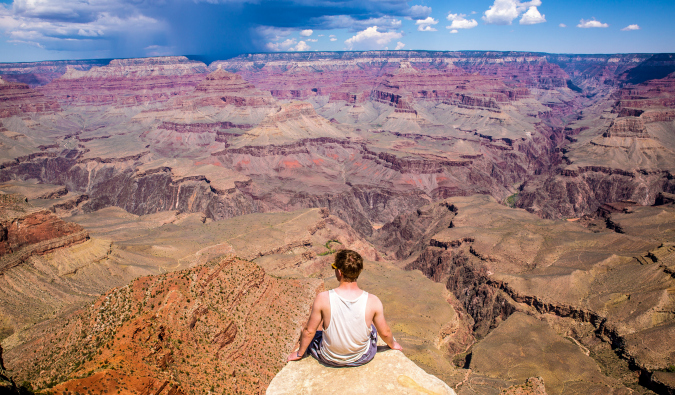
The Great American Road Trip is a rite of passage in the United States . We Americans have a unique fascination with the open road. It’s built into our cultural DNA. In Jazz Age America, the car was a symbol of freedom — a chance to escape your small town and the watchful eyes of parents.
As the highway system was developed in the 1950s, a wave of kids set out on the road to explore the country, giving new life to America’s car and road trip culture. Today, many still dream of getting in a car and driving into wide open spaces for months on end.
I’ve had the privilege of taking several multi-week and multi-month road trips around the country over the years. From traveling the Deep South to criss-crossing the country coast to coast , I’ve visited almost every state, exploring the myriad nooks and crannies of Uncle Sam’s backyard.
One thing is for certain, in diversity and scale, the United States is virtually unrivaled.
But this isn’t a post about fawning over America and its landscapes ( this post is ). This article is about how you can travel around the US on a budget.
Because, as it turns out, this country is surprisingly easy to travel on the cheap.
While rising gas prices and rental car price gouging post-COVID put a damper on things, it’s still easier than you think to have a budget-friendly road trip adventure around the USA.
In this post, I’ll explain how much I spent on one of my trips, how much you should expect to spend, and how you can save money on your next road trip.
Table of Contents
How Much Did My Cross-Country Road Trip Cost?
How to save money on your road trip, how to save on accommodation, how to save on food, how to save on sightseeing, how to save on transportation.

After 116 days traveling around the United States on this trip, I spent $6,262.67 USD, or $53.98 USD per day. While that is slightly higher than $50 USD a day, there were many parts of my budget I splurged on (see breakdown below) which skewed the number up. I definitely could have visited the country even cheaper if I didn’t have an addiction to Starbucks and sushi.
Here is how the numbers from my road trip break down:
- Accommodations: $1,036.36
- Food: $3,258.23
- Drinks: $438.94
- Gas: $696.98
- Parking: $253.00
- Starbucks: $75.26
- Miscellaneous (movies, toiletries, etc.): $170.00
- Attractions: $269.40
- Taxis: $41.00
- Bus: $17.50
- Subway: $6.00
Let’s break this down. First, my Starbucks addiction was unnecessary and added to my costs. Second, as a lover of sushi, trying various restaurants throughout my road trip drastically raised my food costs. Sushi, after all, is not cheap.
Moreover, I ate as if I wasn’t on a budget and rarely cooked, which is why my food expenses were so high relative to everything else. I would have definitely gone below $50 USD per day if I followed my own advice and cooked more often.
But, while I splurged in some places, three other things really helped me to keep expenses down: First, gas prices were low, averaging around $2.35 USD a gallon over the duration of my trip. (We’re going to discuss how to still do a road trip on a budget with high gas prices in the next section.)
Second, once you leave the big cities, prices for everything drop by nearly half so I spent a lot of time out of cities.
Third, I used Couchsurfing and cashed in hotel points to keep accommodation costs down. That helped a lot.
Overall, I didn’t do too bad and am happy with how much I spent. But is this how much you’ll spend, especially in the face of inflation and high gas prices? Let’s discuss that below.

It’s no secret travel costs a lot lately and inflation and high gas prices have really made super cheap road trips hard if you’re not staying places for free but that doesn’t mean the road trip has to be super expensive.
With that in mind, here’s how to cut your accommodation, sightseeing, food, and transportation costs — all without cutting into your experience!
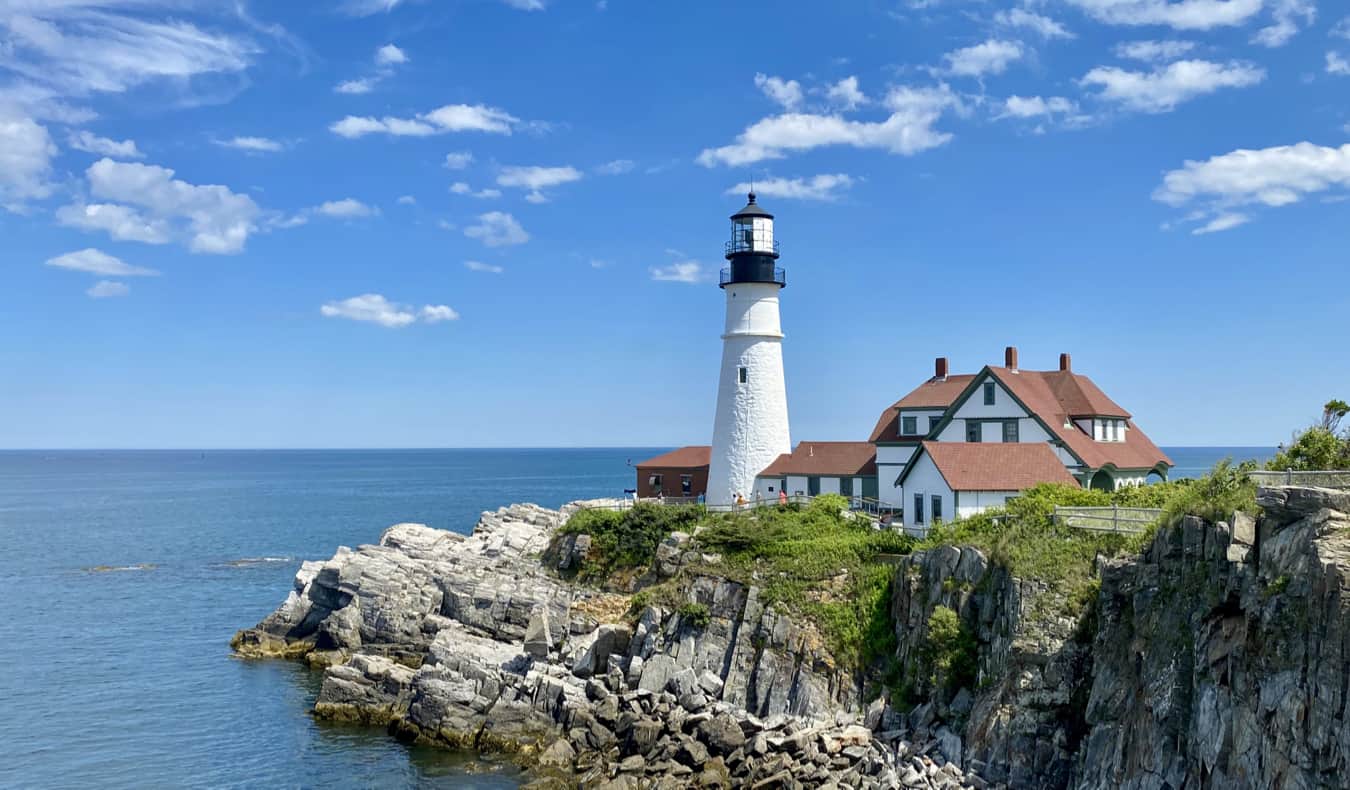
1. Couchsurf — Couchsurfing is a service that allows you to stay with locals for free. Using this website (or similar ones) is the best way to lower accommodation costs, as you can’t get cheaper than free!
More than that, it’s a wonderful way to meet locals, get insider tips, and find off-the-beaten-track stuff to do in the area you’re visiting. While you’re generally expected to reciprocate your host’s kindness (cooking them a meal, taking them out for drinks or coffee, etc.), it’s still far cheaper than paying for a hotel or motel.
While the app has seen its community shrink in recent years, there are still plenty of hosts across the United States so you’ll rarely find problems finding someone to put you up.
Additionally, if you don’t feel comfortable staying with a stranger, you can use the app to meet people for drinks, coffee, activities, or anything else you want to do. That way, you can still meet a local and get their insider tips without having to stay with them. The app has all kinds of meet-ups and events too so be sure to check it out.
2. Airbnb — I only recommend using Airbnb in rural, out of the way places where hotels are limited. Avoid them as much as possible in other circumstances as they take housing stock off the market. Try to use their Rooms feature if you can!
3. Budget hotels — There are a plethora of cheap roadside hotels such as Motel 6 and Super 8 that will help you stay cheap. Rooms start around $50 USD per night and are super basic and always look well worn. You’ll get a bed, bathroom, TV, tiny closet, and maybe a desk. They are nothing to write home about, but for a quiet place to sleep for a night, they do the trick.
And if you’re traveling with someone you should always say the room is for one person as these hotels charge you more for two people.
Also, make sure you sign up for Booking.com and Hotels.com loyalty programs. Hotels.com gives you a free room after 10 bookings, and Booking.com offers members 10% off bookings, as well as free upgrades and perks if you book multiple times after signing up. They definitely helped a lot.
Pro tip : Book through websites like Mr.Rebates or Rakuten . By using their links before going to Hotels.com or Booking, you’ll get 2-4% cash back in addition to the loyalty program deals.
4. Hotel points — Be sure to sign up for hotel credit cards before you go and use those points when you travel. You can get upwards of 70,000 points as a sign-up bonus, which can translate into a week’s worth of accommodations.
The points came in handy in places where I couldn’t find an Airbnb, hostel, or Couchsurfing host. This saved my butt in big cities around the country. I was glad I had accrued so many hotel points before my trip.
To learn more about, check out these posts:
- The Best Hotel Credit Cards
- The Ultimate Guide to Picking the Best Travel Credit Card
- Points and Miles 101: A Beginner’s Guide
- The Best Travel Credit Cards
5. Hostels — There aren’t many hostels in the United States, and most of them are overpriced. A dorm room typically costs around $30 a night, which means you can obtain a similar private room on Airbnb at the same price. If you are traveling with others, it’s often more economical to get a budget hotel than a bunch of dorm beds.
However, if you are traveling solo and want to meet others, the social benefits may outweigh the lack of value. There were just some times I didn’t want to be alone – I wanted to be around other travelers.
Some of the hostels I loved are:
- Samesun Venice Beach (LA)
- South Beach Hostel (Miami)
- India House (New Orleans)
- ITH Adventure Hostel (San Diego)
- The Green Tortoise (San Francisco and Seattle).
For more hostel suggestions, here’s a list of my favorite hostels in the USA.
6. Camping — Dotted around the country — including around all the national parks — are inexpensive campsites. If you have a tent and camping gear, this is by far the cheapest way to travel. Campsites cost between $10-30 USD per night, which makes seeing the country incredibly affordable. Most campsites have basic amenities like running water, bathrooms, and the ability to upgrade to get electricity.
In addition to your standard campgrounds, check out the sharing economy website Campspace . It lets you pitch a tent on private properties all around the country for a small fee. Much like Airbnb, some plots are super basic and barebones while others are more luxurious, so be sure to poke around for a cheap place to stay as there are plots available all around the country.
It’s also legal to wild camp in national forests and on BLM land unless otherwise marked.
7. Sleep in your car — I know this isn’t glamorous but sleeping in your vehicle brings your accommodation costs down to zero. I know lots of travelers who did this to make their trip more affordable, some sleeping in their car just occasionally and others doing it every night. Chances are you won’t sleep well but you will save money, and that’s a fair trade to some people!
For those traveling in an RV, there are tons of free places to park and camp all around the country. Use iOverlander to find the best spots.
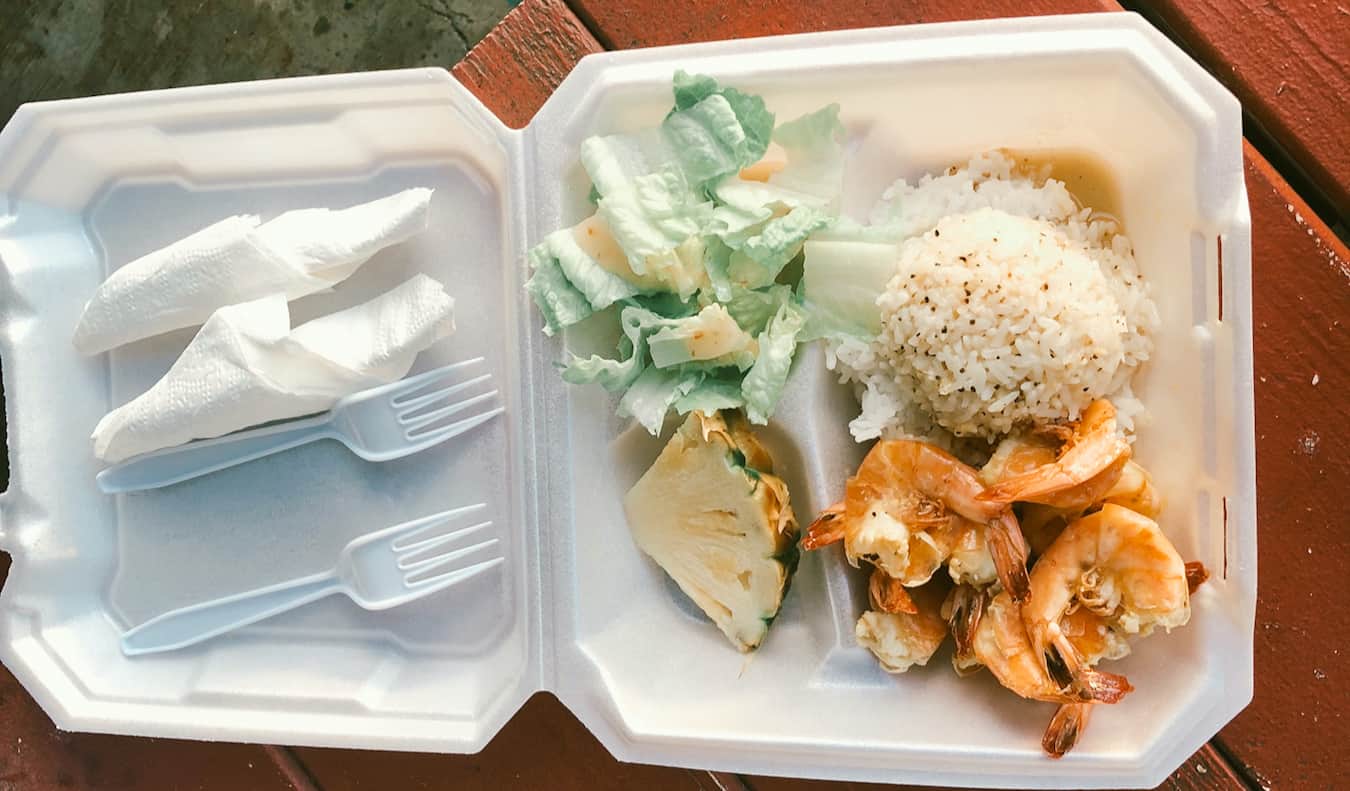
To help you keep your food costs in check, here are a few quick tips:
1. Cook your own meals as often as possible – If you can bring a cooler in your vehicle, you can pack groceries instead of eating out all the time. And if you bring some containers, you can store leftovers in the car too, allowing you to cook larger meals at dinner that you can eat the next day for lunch.
2. Stay in accommodation with a kitchen – If you want to cook, you’ll need a kitchen. Prioritize accommodation like Couchsurfing, Airbnb, and hostels as those will typically provide kitchen access so you can cook your meals.
3. Shop cheap – Avoid the pricier grocery stores like Whole Foods when it comes to getting groceries and stick to budget places like Walmart. It’s not glamorous, but it will be cheap!
4. Find cheap restaurants – When you want to eat out but don’t want to break the bank, use Yelp, ask people on websites like Couchsurfing, or inquire at the desks at hostels for suggestions. Locals have the best tips and insights when it comes to where to eat so they can point you in the right direction. Simply cook, limit your eating out, and be happy!
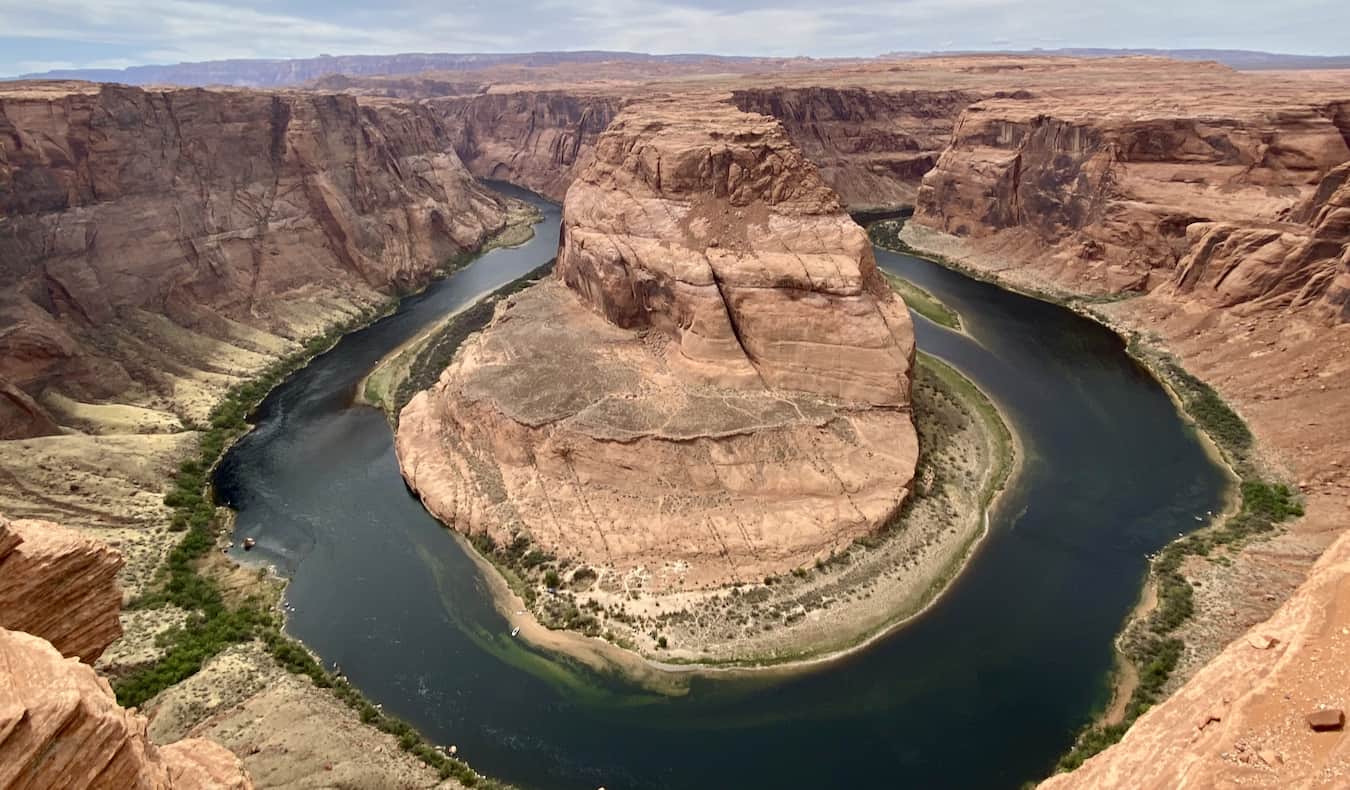
1. Get a National Parks pass — For $80, you can purchase an annual National Parks and Federal Lands ‘America the Beautiful’ pass that provides access to all 63 national parks (as well as any other recreation areas administered by the National Park Service). In total, you can visit more than 2,000 federal recreation sites with the same pass. At $20-35 USD per visit, seeing five during your trip makes the pass a money saver. When you visit your first park, simply buy the pass and you’re good to go. There’s no need to order it in advance.
The U.S. national park system is amazing and really highlights the diversity of landscapes in the country. You can’t travel across the country without stopping at many of the national parks, especially as you get out west.
2. City tourism cards — City tourism cards allow you to see a large number of attractions (and often include free public transportation) for one price, usually $75-100 USD. They provide free access to museums, reduced access to attractions, and restaurant discounts. Be sure to look into them if you plan on doing a lot of sightseeing, as they generally will save you money. They can be purchased at tourism information centers or online before you go.
3. Free museums and events — Inquire at tourism centers, use Google, or ask hotel or hostel staff for information about free events and museums. Many museums offer occasional free or discounted admission throughout the week. There are always tons of free activities in any city in the United States.
4. Free walking tours and city greeter programs — Many cities in the US have free walking tours or city greeter programs that pair you with a local guide who can give you a brief tour. Whenever I visit a new city, I start my trip off with one of these tours. They show you the lay of the land, introduce you to the main sights, and give you access to an expert local guide that can answer all your questions.
Check in with the local tourism office when you arrive to see what programs and tours are available.
For greeter programs, you’ll need to sign-up in advance before your visit. It’s good to give about 2 weeks’ notice as they have to find someone to take you around. Google “(city name) greeter program” to find them as some are run independently of the city tourism board so might not be listed on their website.
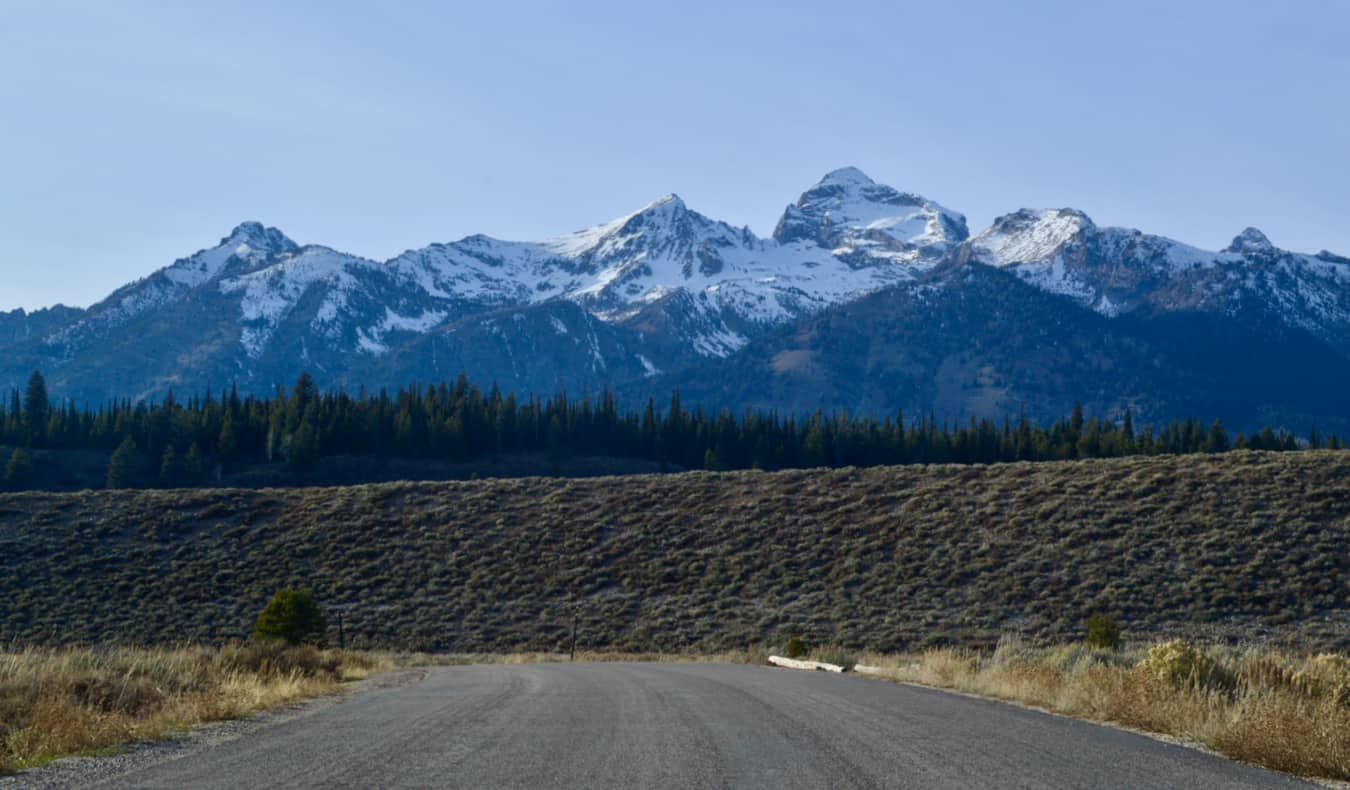
Here are your options when it comes to traveling across the country:
1. Hitchhike — This isn’t something I did on my trip, as I had a car, but it’s very doable (and relatively safe). Here’s a post by my friend Matt who hitchhiked across the United States explaining how to do so and come out alive (don’t worry, it’s safer than you think)..
For more hitchhiking tips, use Hitchwiki .
2. Rideshare — Taking on riders can be a way to lower your costs. On my first trip across the U.S., I offered rides to people I met in hostels. On this trip, I had friends and readers join me along the way. You can post ads on Craigslist and Gumtree and at hostels to find riders. This not only makes the trip more enjoyable but lowers your gas costs. Or if you are a rider, you can use the same services to find rides to get you places.
3. Buy a car — If you don’t have a car or don’t want to rent one, you can buy cheap used cars from car dealers or owners on Craigslist. There are lots of listings, and you can resell the car at the end of your trip to recoup some of your initial purchase cost. While this is easy in other countries, it’s hard to do in the United States, so remember a couple of key points:
- You’ll need a US address for registration documents to get sent to. I would use a hostel or hotel address and then set up a forwarding address with the Post Office.
- You’ll have to buy car insurance, which can greatly add to the costs of your trip.
Another option is to use a car relocation service. This is when you take someone’s car and drive it across the country. You are usually paid, and gas is covered. The downside is you don’t often have a lot of leeway on timing, so you might not have much time to stop and sightsee along the way. Car relocation options are also usually limited. Two companies worth checking out are Transfercar and Hit the Road .
If you just want to rent a car, use Discover Cars .
4. Use gas apps & membership programs – Install GasBuddy , an app that finds the cheapest gas prices near you. It is a must. If you’re going on a longer road trip, sign up for the monthly program; it costs $9.99 but will save you up to 40 cents a gallon.
Also, sign up for every gas loyalty program you can, so as to maximize points and discounts. Moreover, if you get a brand’s credit card, your first 50 gallons usually come with 30 cents off per gallon.
You should also consider getting a Costco membership for cheap gas. They have around 574 stores around the US so you’ll be able to earn the cost of a membership back by saving money on both gas and food.
5. Download parking apps – Parking costs add up — especially in cities. Use apps like BestParking and Parker to find spots and compare prices.
6. Take the bus – If driving is entirely out of the question, you can find bus tickets for as little as $1 USD from Megabus. Greyhound and Flixbus also have cheap rides all around the US. Rides under five hours are usually around $20 USD if you book early, and overnight rides usually cost $50-100. You can save big if you book in advance (often upwards of 75%!).
Don’t let the United States fool you! A road trip across the United States is a fun way to see a lot of diverse landscapes, experience different cultures, and meet interesting people. Traveling America isn’t very expensive once you are outside the big cities and you can easily travel the country on a budget by using the advice in this article.
Book Your Trip to the USA: Logistical Tips and Tricks
Book Your Flight Use Skyscanner to find a cheap flight. They are my favorite search engine because they search websites and airlines around the globe so you always know no stone is left unturned!
Book Your Accommodation You can book your hostel with Hostelworld as they have the biggest inventory and best deals. If you want to stay somewhere other than a hostel, use Booking.com as they consistently return the cheapest rates for guesthouses and cheap hotels.
Don’t Forget Travel Insurance Travel insurance will protect you against illness, injury, theft, and cancellations. It’s comprehensive protection in case anything goes wrong. I never go on a trip without it as I’ve had to use it many times in the past. My favorite companies that offer the best service and value are:
- Safety Wing (for everyone below 70)
- Insure My Trip (for those over 70)
- Medjet (for additional evacuation coverage)
Looking for the Best Companies to Save Money With? Check out my resource page for the best companies to use when you travel. I list all the ones I use to save money when I’m on the road. They will save you money when you travel too.
Want More Information on the United States? Be sure to visit our robust destination guide on the US for even more planning tips!
Got a comment on this article? Join the conversation on Facebook , Instagram , or Twitter and share your thoughts!
Disclosure: Please note that some of the links above may be affiliate links, and at no additional cost to you, I earn a commission if you make a purchase. I recommend only products and companies I use and the income goes to keeping the site community supported and ad free.
Related Posts
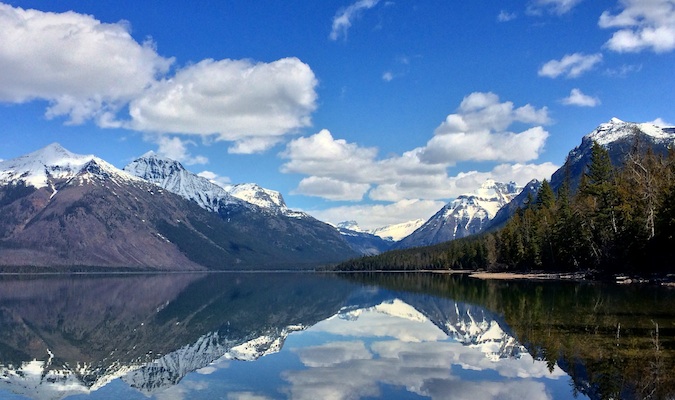
GET YOUR FREE TRAVEL STARTER KIT
Enter your email and get planning cheatsheets including a step by step checklist, packing list, tips cheat sheet, and more so you can plan like a pro!


The Joy of Travel – 20 Reasons Why Travelling is Good for Your Career, Personal Growth and Soul
By Author Rossi Thomson
Posted on Last updated: 5th September 2022
Categories Lists , Travel , Travel Experiences
Travelling seems to be the buzzword on everybody’s lips these days.
With cheap flights and options that vary from short city breaks and luxury staycations to round-the-world trips, it has never been easier (or more affordable) to pack a bag and go. For a day, a weekend, a week, a month or even more.
Seeing amazing architecture, admiring centuries-old pieces of art, tasting new foods and accumulating memorable experiences to last you a lifetime becomes a quasi-addiction that you are only too happy to feed.
I call it The Joy of Travel .
In other words, that indescribable feeling you get when you make the first step on a new journey to discover yet another portion of the world. It doesn’t matter if the journey is of a thousand miles or much, much less. What matters is that it makes you feel alive.
Yet, soon the people around you (like parents, employers and close friends) may start questioning your choice to travel.
- Why do you spend so much money on travelling ? Don’t you have a mortgage to pay?
- Why do you need to go there when you have all that you may want at home? Did you know that they don’t sell marmite in shops abroad?!
- Why do you need to go on another city break this year? Haven’t you already been to three?
- Why are you dragging your kids to yet another museum with art by people we have never heard of? Don’t you know that kids simply want to play?
- Why did you take a sabbatical instead of concentrating on your career?
- Why there is a gap in your CV? It seems like you value having fun over working hard.
- What if we hire you and then you leave our company in order to travel more?
These are all difficult questions that everyone who loves travelling has been pressurised with. At least once. Often, countless times.
Yes, on the surface, regular travelling may seem disruptive to an established daily routine which includes family obligations and a good job. It is also draining in terms of money and paid vacation time.
Yet, travelling gives you so much more in return. From the deeply satisfying feeling of being connected to other people and the world to an improved skill set and higher stress threshold.
So, in order to help you deal with those nagging and niggling questions about your travel habits which you may be getting from friends, relatives, colleagues and your (current or potential) boss, here are twenty reasons why travelling is actually good for you.
Read on, enjoy, and use as appropriate!
The Joy of Travel –
20 reasons why travelling is good for your career, personal growth, and soul, 1. travel helps you hone your decision-making skills.
With so many options in terms of travel, you quickly learn to make complex decisions about where to go and when, what accommodation to book and what sights to see. You know that you can’t cram it all into a couple of days, so you precision-pick what you are interested in and what is not your cup of tea. You learn to have at all times several variables in mind. For example:
- money – how much you can afford to spend on accommodation, food and sightseeing;
- distance – how far from your point of interest you can stay; and
- time – how many hours you have at your disposal at each place on your schedule.
The more you travel, the more you hone your decision-making process.
Sooner, you find it easier to make decisions with regards to everything else in your life. At work, this streamlined approach and the ability to juggle several variables and different outcomes is what sets you apart from the rest.
2. Travel Helps You Develop Your Research Skills
Research is a big part of both study and work processes nowadays. The ability to research new ways to do things and having the skills to find out what your competitors are up to can be the decisive factor between failure and success. Both in business and your personal life.
Well, have you noticed how much research you need to do everytime you plan a trip?!
From finding the best tickets in terms of time slots and prices to discovering those hidden gems that all the other tourists miss, a well-conducted research is at the basis of your successful trip.
You can easily transfer your research skills from your travels to your job: monitoring industry leaders’ websites for promotions, discovering blogs and articles by local experts, unearthing little-known bits of information both online and in print.
Research helps save money and find valuable data. Being good at research will take you to the forefront of your field.
3. Travel Helps You Learn to Better Communicate Your Expectations
You can’t be reticent when you travel, especially if you travel as a couple or as a part of a group.
Failing to tell your partner that you really, really want to visit a particular sight may lead to your not seeing it all. People rarely are able to read minds and get tired of always having to ask you what you want to do. Plus, you usually have limited time at each destination. And, once you have left it, you may never have the chance to go back.
So, you quickly learn to communicate exactly what you want to see and do during a particular trip.
Making your expectations clear is a valuable skill in any work environment. It puts everybody on the same page as to what needs to be done and achieved. It also helps prevent conflicts or misunderstandings as no-one likes to have to second-guess what people around them think.
4. Travel Helps You Develop Your Negotiation and Compromise Skills
All this is very good but what happens when you and your travelling partner expect different things from a trip (assuming that you communicated them clearly to one another – see point 3 above).
This is when you soon develop your negotiation skills. You agree to do one thing as long as they agree to something proposed by you. You suggest that you are happy to go to the sea, but it would be nice if next year they come to the mountains with you.
Or, if everything else fails, you both agree to spend a bit of time apart. So, you go to the museum you have always wanted to see and your partner relaxes by the pool all morning book in hand.
It’s all a question of achieving mutually acceptable compromises. Which make travelling so much more enjoyable.
Being a good negotiator can open many professional doors for you. From being able to negotiate the best salary and perks for yourself to being in control during a difficult meeting with a supplier, it all comes down to seeing what the other party is offering, knowing what your limitations are and then marrying both as best as possible without you or the other side losing face.
5. Travel Helps You Fine-Tune Your Organisational and Scheduling Skills
Once you have settled on a destination, it’s time to begin the planning stage. Soon, you become a master of compiling complex schedules. After all, you want to experience the joy of travel to the max. So, even after a strict elimination process, you still pick to do many, many things within one day. In all honesty, back home it would take you weeks to complete the same number of activities.
Still, anything is possible, you reassure yourself. You can definitely:
- arrive early morning;
- drop your stuff at ‘Left Luggage’ at the train station;
- queue (while the queue is still tiny) to climb to the top of Bruneleschi’s dome of the Gothic Cathedral of Santa Maria del Fiore;
- spend a moment in the adjacent Baptistry;
- walk up to Accademia, pick your pre-booked ticket and simply fall in love with Michelangelo’s David;
- then walk down to Palazzo Vecchio and Piazza dei Signori;
- admire the statues in the Loggia della Signoria;
- pick your pre-booked tickets and spend a spellbinding hour and a half in the Uffizi Gallery;
- walk down to Ponte Vecchio to see the views and the goldsmiths’ shops;
- then pop down to Michelangelo’s birth house followed by a quick visit to the Cathedral of Santa Croce in order to see the tombs of some of Italy’s most notable sons;
- have a sit-down meal at a local restaurant tucking into some Tuscan delights;
- pick your luggage and get on the train to Pisa that same evening; and
- book into your hotel for a good night sleep.
Based on a day I planned for myself and spent in Florence, Italy some years ago. It all worked like a charm and was interspersed with lots of gelato-eating, photo-taking, and window-shopping, too.
Even if your travel style slows down with time, this ability to organise your day and schedule activities in an organic manner (taking in consideration local opening times, the influx of tourists and the walkable distances in town) is a valuable skill.
Being organised, efficient and able to set up and follow a schedule is something to be proud of and it certainly helps a lot both in your family and professional lives.
6. Travel Helps You Be More Flexible and Think on the Spot
Things happen when you least expect them. This seems especially valid when you are on the road.
Last summer our flight from Treviso, Italy to Stanstead, England was canceled just past midnight.
What to do? We spent the night at a hotel (paid by the air company) and in the morning we travelled close to four hours to Bergamo where we were placed on another plane. Then, in accordance with the legal framework, we claimed compensation and, after several phone calls and emails, were paid a small amount for our troubles.
It was inconvenient, unpleasant, and very, very hot. We were travelling with a small child and some rather heavy luggage. But there was nothing we could do to make the plane come pick us up from Treviso airport. Instead, we adjusted ourselves to the situation and managed to reach England after all.
The ability to be flexible is highly valued. Knowing that in spite of your best efforts and adherence to plan, things can still go wrong, will free up space in your mind to think on your feet. This way you are able to react according to the actual circumstances rather than in line with what you want to be happening right now.
7. Travel Helps You Understand the Power of Money and Budgets
Two euros (or pounds) for a coffee doesn’t sound that much. A new top and a new bag are the order of the day when you need a little bit of cheering up. Unfortunately, these spontaneous expenses quickly add up and then you wonder why you are always short of cash towards the end of the month.
When you really want to travel and have amazing experiences, you soon realise that the only thing that stops you from doing it is not having enough money. After all, transport, insurance, accommodation, and food are not free.
Hence, you soon start not only to save any spare euro that you have but also to judge the necessity of each purchase through the prism of your travel plans. A new pair of earrings for 10 euros?! This equals your food budget for a day in a far-flung place. A night out on the town costing you at least 50 euros?! This may buy you a slightly more comfortable hotel room rather than having to stay at a hostel again.
In other words, you quickly learn to prioritise your purchases and to meticulously budget for your time abroad.
On the other hand, once you are at your destination, you are only too aware that not sticking to your daily budget can be the difference between having a great time and finding yourself in financial trouble far away from home. With no immediate support network to help you along, spending above budget 20 euros frivolously every day may be the difference between eating the last few days of your trip or not.
Being good with money and being able to stick to budgets are highly valuable skills both in personal and professional plans. At a time of overconsumption and of companies cutting corners only too willingly, being able to show that you are a dab hand at prioritising expenses and saving money may be your strongest feat.
8. Travel Helps You Sharpen Your Eye for Bargains
In this financial line of thought, travel can also help you develop an uncanny ability to spot a bargain from a hundred feet.
Buying a combined ticket for three sights will save you one third of their individual prices? Done! Waiting for the sales in order to get a new cabin-size suitcase and save 50% off its original price? Excellent!
At the same time, you soon start to differentiate between a real bargain and a false one.
Buying something in a package may not always translate into financial savings. Especially, if due to lack of time, you only end up doing one of the pre-paid things.
Real bargains are great not only for the money you save but also for giving you that fabulous feeling that you have gotten extra value against a portion of the full price.
Knowing the shortcuts and the techniques for achieving bargainous prices will help the budgets of both your family and your company. This will earn you praise and more available money to spend on other (hopefully travel-related) stuff.
9. Travel Helps You Get Out of Your Comfort Zone
People tend to stick to what they know. Be it other people, fashion styles, and even places.
This is why being the newcomer in a tight-knit group can be such a daunting prospect. And why some people tend to spend their every holiday over thirty years at the same resort.
When you embrace the joy of travel for what it really is, i.e. exploring the world and its many different faces, rather sooner than later you need to get out of your comfort zone.
- You may need to get up really early in order to catch a plane. Even though you may not be an early riser at all.
- You may need to approach people and ask in a foreign language (and mainly with your hands) how to get from point A to point B. Even though you are anxious just thinking about talking to strangers.
- You may need to get your point across when you are unhappy about a service. Even though you are non-confrontational to a fault.
Travelling gets you places and most of them are beyond the confines of what you know. Being able to navigate the unknown is a valuable skill and state of mind.
It makes you more self-assured, more confident, more open to the world.
Well-based confidence can give you a competitive edge and get you far ahead on your career path.
10. Travel Helps You Find Creative Ways to Overcome Obstacles
Obstacles may present themselves at any time when you travel.
It could be:
- luggage not arriving at the same time as you;
- weather that is not as nice as the forecast promised;
- large crowds visiting the same sights as you even though the travel guidebook that you read promised that they were off-the-beaten-track.
It could be anything, really. For example, many people come to Italy expecting it to be always sunny and nice outside. But here (especially in Northern Italy) it rains and even snows. So, what to do when you imagined sun-soaked walks, gelato in hand, but instead you are faced with a downpour.
Well, instead of locking yourself in your hotel room and complain on social media about the injustice of it all, you put your creative hat on. You capitalise on things that the country is famous for and which are weather-impervious. Like Italy has lots of thermal baths and spas, large expos, cooking classes, great indoor places for children to play, and so much more that can be done inside (see the full list here , in fact).
This ability to come up with creative solutions to obstacles which may threaten to derail your plans will come in handy in your professional endevours, too. Capitalising on your travel experiences, you may be the person to come up with an out-of-the-box suggestion as to how to overcome a problem your company is facing.
11. Travel Helps You Learn How to Mediate Between People
When you travel with other people (family, colleagues or friends), sooner or later there will be a situation which will make everyone jump against everybody else.
One of your group wants to go to the beach and another wants to shop?! Cue an argument that can spoil the whole day.
Stepping in with a calm head and mediating between people can dissipate the stress. Allowing everyone to express how they feel and setting up firm but fair rules for a respectful exchange is a difficult task but someone has to do it. If you accept the challenge and don’t let emotions rule, everyone will be thankful and much happier at the end of it all.
Mediation is a valuable skill. Knowing when to let people talk and helping them express themselves in a constructive manner will earn you kudos at work and at home.
12. Travel Helps You Expand Your Horizons
Have you ever thought that your country has the best art, the most interesting history and the best looking and most hospitable people?
Well, travel can change your set ideas about the world.
You may come to realise that people have different ways to do the same thing. That certain foods taste better abroad. That every country has unique nature, beautiful art, and lovely people. Just like yours.
This enriches your soul and makes you more appreciative of things which before you might have easily dismissed.
Travel helps you expand your expectations of the world. Hence, you are better prepared to work in a multicultural environment and have a stronger foundation to deal with a team with diverse cultural norms.
13. Travel Helps You Experience a Sense of Purpose and Achievement
In a world overloaded with information which makes us question how happy we are with what we have, travel can bring us closer to that elusive feeling of feeling content.
There is nothing better than the sense of achievement after a long day of exciting sightseeing when, in a short amount of time, you have seen so much.
Be it a visit to an art gallery to enjoy the company of the Old Masters. Be it a hike through a gorgeous place. Be it a food tour savouring your way through the flavours of a nation.
Travel can really make you feel purposeful and full of energy. After all, travelling for most people equals achieving their dreams of seeing certain fabled places and experiencing them for themselves. There is nothing better than having your dreams become reality.
Having this sense of purpose and achievement makes you a happier, calmer person, too. And it propagates into all of the different spheres of your life.
14. Travel Helps You Develop Your Interests
Chances are you travel to places that interest you in order to see things that interest you, too.
Often, lost in the stress of daily life, the first thing we forget to take care of is our hobbies and our personal interests. We may not notice it at first, but making time for them becomes more and more difficult when faced with a demanding family and job.
Travel may be the only chance we get to reconnect with what is important to us.
I used to have a very stressful, high-power job that kept me chained to the computer up to 12 hours a day. Monday to Friday with the weekends often taken over, too. Going on short breaks to Italy to experience its art, food and sun helped me stay sane. Just knowing that Venice was only two hours away from London and that I could easily get there and see all that artistic beauty was enough to give me a bit of respite.
Other people travel in order to practice their photography, to eat new foods, to develop their artistic skills.
When we are too caught in our daily lives, travel opens a little bracket allowing us to re-centre on ourselves, to think about what we want to do with our lives. It also gives us the impetus to start making the changes we need in order to focus more on our own interests (both creative and purely personal).
15. Travel Helps You Awaken Your Creativity
Faced with the exuberance of the world, your heart and your soul soon begin to need to be surrounded by colour and excitement every waking moment.
It could be something as simple as buying colourful fabrics and authentic souvenirs abroad in order to give your home a touch of happiness and creativity.
Or, it could be that after a while you may begin to feel a desire to replicate on home turf the wonderful things that you’ve seen on your travels abroad.
For example, many people are inspired to start a business after falling in love with a particular destination. From importing its food to organising trips to it – the sky is the limit when you feel the creative sparkle in your soul.
I started my blog Rossi Writes led by my excitement of having just moved to live in Italy . Three years later I am still at it and writing has been a great outlet for me during moments of feeling bleak and down.
16. Travel Helps You Get Physically Active
In a world where spending all your time in front of a computer is an acceptable way to lead your life, travel gets us moving.
Getting from point A to point B requires that we leave the house and get on a plane (or train, car, boat). Then, once at our destination, we use our feet to get to know it.
By walking around we see the most exciting, most beautiful things. It could be a walk through a museum; it could be a hike through a stunning landscape. The important thing is that we use not just our mind, but also our body in order to experience the world.
17. Travel Helps You Test Your Resilience to Stress
Being able to work under pressure is a basic job requirement these days. We are supposed to be able to juggle several things at once both at work and home. Obviously, without breaking a sweat.
Travel is the perfect school to test and increase our resilience to stress.
Starting with expecting the unexpected and learning to deal with it, and ending with mastering the communication process with people from different cultures and with different attitudes, travel throws at us many curveballs at any one time.
It may feel scary at the start, but you soon adapt yourself to it all. From learning that eating on your own at a restaurant is not an insurmountable task to not expecting that everything and everyone has to stop to tend to your needs. Travel is character-shaping and -strengthening.
18. Travel Helps You Become More Aware of Health and Safety
At home you may be living in a safety bubble guaranteed first by your parents and then by your partner and/or community. Travel can shift your perspective about the world.
Soon you learn to read people and situations better and to make decisions based not on emotions and fleeting wants but on how safe the experience will be. You learn to keep your guard up. You realise that you are in charge of your decisions and your belongings.
You stop seeing yourself as a fragile flower that needs constant supervision and help. Instead, you act as a grown-up person who can stand up for herself and judge a situation based on observed and perceived dangers.
From simple things like deciding where to eat based on hygiene to much more complicated situations when you need to decide in a split second how to extricate yourself from some potentially unpleasant circumstances, you learn to trust your sixth sense. To appreciate how safe the environment is and to take only measured risks.
19. Travel Helps You Appreciate What You Have
At the end of a trip (be it of several weeks or a day-long) there is nothing better than getting back to your own bed. At least for me.
Having witnessed what the world has to offer – from its most beautiful, most inspiring offerings to its (sometimes) darker side – you begin to look at home with different eyes.
You may have been unsatisfied with your lot in life, but having seen how other people live (and still smile no matter what), you learn to value so much more what you, yourself, have achieved.
What you have may not be loads, but suddenly just it being there, waiting for you to return, becomes a driving force.
Travelling is great! Having something or someone to return to is what gives you roots.
20. Travel Helps You Feel More Connected
Travelling – actively exploring new places and learning about them – makes you feel more connected with the world as a whole. You observe and learn how other people, other cultures live. And through the contact with them, you connect better both with your inner self and those around you.
Through the different experiences you have abroad you learn more about yourself – what makes you tick, what makes you happy and what makes you sad. Through this knowledge, you feel more committed to yourself as a person, more willing to stand up and fight for your dreams.
Through the positive experiences you accumulate when you travel, you feel more engaged with humanity. More open to other people, their stories and their point of view.
And this connection, this feeling of being alive, of belonging is what gives us the strength to continue forward.
Thank you for reading! Please, leave me a comment, pin the image below or use the buttons right at the end to share it on social media.
For more stories like this you can follow me on Facebook and subscribe to my weekly strictly no-spam newsletter.
angeladowdy
Friday 22nd of January 2021
Hi Rossi, I am so impressed with this article! Would you possibly allow me to use some quotes from this ...I'm writing an article about The Joy of Discovery through Travel ! I would certainly give you the credit. Also you can have a look at my website https://embracesouthernstates.com/ (focus on Southern USA). Exciting to find a soul who shares my JOY !!
Dear Angela,
Thank you for your comment and for your kind words about my blog post. You are very welcome to place a link to my article in your writing. Unfortunately, I don't allow direct quotes in line with the advice of the copyright attorney who helped me after a large number of my blog posts and photos were stolen. Thank you for your understanding.
Best wishes,
Sunday 24th of February 2019
Wow....amazing article, Rossi! Absolutely loved it! Spot on, insightful, so well written - I’d always thought travel was good for the soul and fostered personal growth (not to mention aiding in understanding people of other cultures which in turn promotes PEACE), but until reading your article I didn’t realize in just how many ways it can make you a better, stronger, smarter, more self reliant person! Travel rocks! And it’s sooo much more fun than sitting in a classroom... Also, I agree with all your “20 Reasons” and found myself thinking several times, “...that is SO true! I never thought of it that way...” when thinking about my own experiences with travel. Travel is a marvelous teacher. I’m so glad I found your blog.
Monday 25th of February 2019
Thank you for your very kind words, Lisa! I am glad that my blog post resonated with you. I wrote it very spontaneously and had a lot of fun putting it together. It's nice to know that somebody else finds it interesting. Best wishes,
Sonia M Checchia
Friday 27th of April 2018
I can't tell you how much I love this article. Thank you.
Saturday 5th of May 2018
Thank you very much for your very kind words. I really enjoyed writing this blog post. :) Best wishes, Rossi
Sharing is Caring
Help spread the word. You're awesome for doing it!
The perfect itinerary for an epic USA roadtrip (48 states at once)
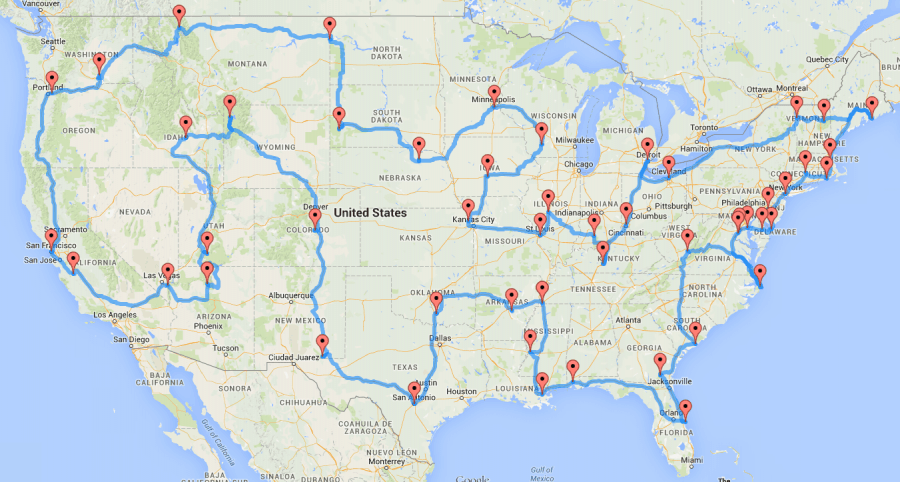
- Post author: Andrew D'Amours
- Post published: December 28, 2022
- Post category: Travel inspiration / Trip itineraries & destination discoveries
- Post comments: 26 Comments
Do you like roadtrips? They happen to be a very American tradition and we found the perfect itinerary to visit every state in the continental USA during 1 epic roadtrip. A great trip idea for those who have a lot of time but want to stay closer to home .
Personally, I love roadtrips and I hit the road as much as I can, despite also being an aviation geek: you can like both, right? What matters is traveling and seeing new places , no matter how.
So here are the maps and details of the 2 itineraries that allow you to see all the lower 48 states at once, depending on your travel preference.
Basics of the 2 epic USA roadtrip itineraries
The USA is a huge country, almost as big as Europe (it’s even larger than Canada when considering land area alone).
So the USA has a lot of variety in terms of landscapes, but even in terms of culture too (even if many who aren’t from the country don’t realize that).
If you aim to eventually visit every state, any 1 of these 2 itineraries is a great way to almost all of them at once. The only 2 states you’ll have left to visit after this roadtrip will be Hawaii and Alaska.
There’s a version for national parks and points of interest and a version for cities.
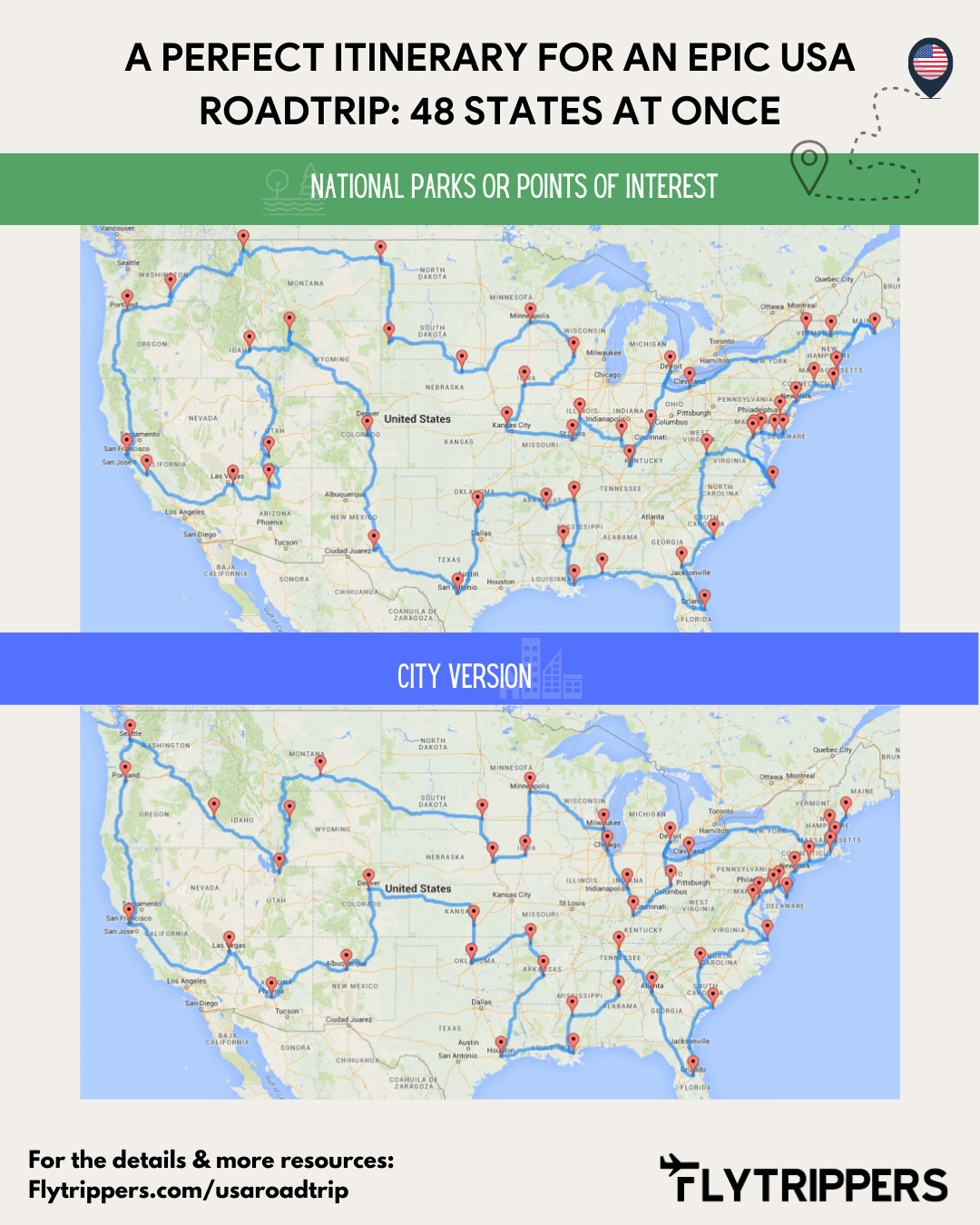
I’m on the quest to visit all 50 states myself (in addition to also visiting every country obviously), and I’m not doing too bad with 47 already.
But let’s just say it would’ve been much quicker to get to 48 at once with this roadtrip instead of having to do it over dozens of trips.
Here are the details.
48-state roadtrip – national parks/points of interest version
Here’s a map of the 1 st itinerary.
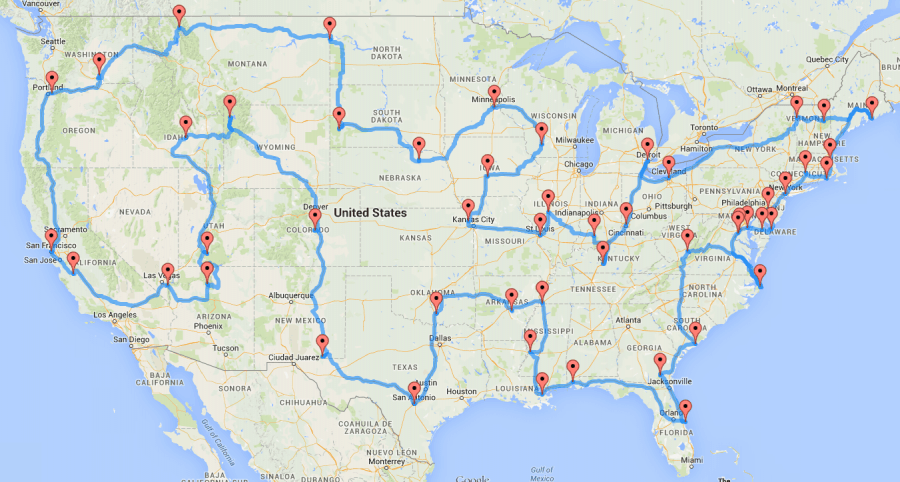
It was conceived by American Ph.D. student Randy Olson, on his blog , and it was done scientifically to optimize the routing: each stop represents a national park or a point of interest.
So you’re not just seeing every state, you’re seeing cool parts of every state (which sadly wasn’t our case in North Dakota during our very random 1200-miles-nonstop-in-2-days Flytrippers roadtrip across the Midwest just for fun).
Good times. Roadtrips always make for great stories.
Anyway, the itinerary has also been optimized to be as efficient a route as possible to see all 48 states, so you can rest assured you won’t be wasting any time.
If you only stop to sleep, you can complete this roadtrip in only 9 days, but we recommend taking at least a couple of weeks to explore all these places obviously.
And gas is significantly cheaper in the US in case you were wondering. You can start anywhere, it’s a continuous loop, and it passes through many spots near the Canadian border.
You can even take a shortcut from Michigan to Vermont through Canada, as the stop in Cleveland is only to keep Americans without a passport from crossing into the Great White North.
Here is the complete list of all 50 landmarks (48 states + Washington, DC + a bonus stop in California):
1. Grand Canyon, AZ 2. Bryce Canyon National Park, UT 3. Craters of the Moon, ID 4. Yellowstone National Park, WY 5. Pikes Peak, CO 6. Carlsbad Caverns National Park, NM 7. The Alamo, TX 8. The Platt Historic District, OK 9. Toltec Mounds, AR 10. Elvis Presley’s Graceland, TN 11. Vicksburg National Military Park, MS 12. French Quarter, LA 13. USS Alabama, AL 14. Cape Canaveral Air Force Station, FL 15. Okefenokee Swamp Park, GA 16. Fort Sumter National Monument, SC 17. Lost World Caverns, WV 18. Wright Brothers National Memorial Visitor Center, NC 19. Mount Vernon, VA 20. White House, Washington, D.C. 21. Colonial Annapolis Historic District, MD 22. New Castle Historic District, DE 23. Cape May Historic District, NJ 24. Liberty Bell, PA 25. Statue of Liberty, NY 26. The Mark Twain House & Museum, CT 27. The Breakers, RI 28. USS Constitution, MA 29. Acadia National Park, ME 30. Mount Washington Hotel, NH 31. Shelburne Farms, VT 32. Fox Theater, MI 33. Spring Grove Cemetery, OH 34. Mammoth Cave National Park, KY 35. West Baden Springs Hotel, IN 36. Abraham Lincoln’s Home, IL 37. Gateway Arch, MO 38. C. W. Parker Carousel Museum, KS 39. Terrace Hill Governor’s Mansion, IA 40. Taliesin, WI 41. Fort Snelling, MN 42. Ashfall Fossil Bed, NE 43. Mount Rushmore, SD 44. Fort Union Trading Post, ND 45. Glacier National Park, MT 46. Hanford Site, WA 47. Columbia River Highway, OR 48. San Francisco Cable Cars, CA 49. San Andreas Fault, CA 50. Hoover Dam, NV
These are all very enticing attractions, for the most part. It seems I’ve only seen 14 of those, so maybe I should hit the road again after all.
How about you? Tempted?
48-state roadtrip – city version
Here’s a map of the 2 nd itinerary.
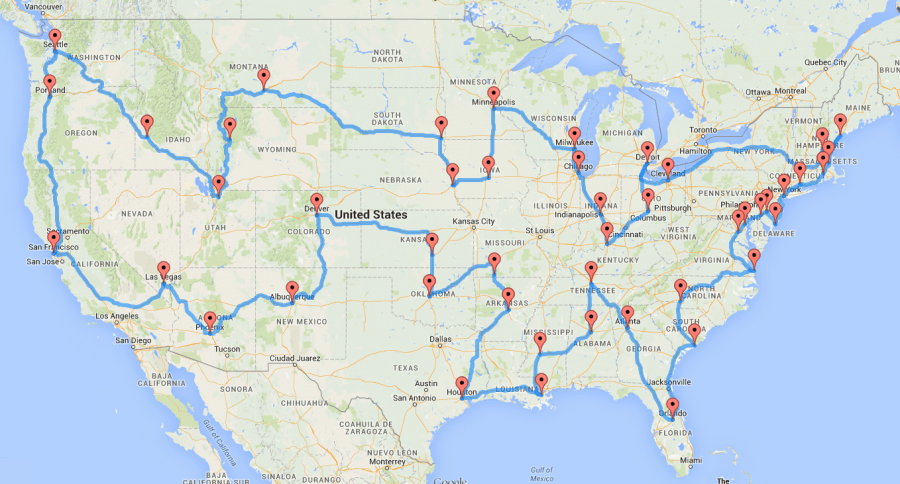
If you’re more of a city slicker, the map’s author has created a 2 nd version that routes you through amazing cities instead.
It is slightly shorter but quite as impressive: it makes you go through the “Best City to Visit” in each state, according to TripAdvisor .
But you won’t have all the lower 48 states, unlike the other itinerary. That’s because no city in Vermont, West Virginia, or North Dakota made the top 400 cities to visit ranking, unfortunately. So plan on making a few extra detours if you want to hit all states at once with this version of the itinerary.
Here is the complete list of all cities:
- Oklahoma City, Oklahoma
- Wichita, Kansas
- Denver, Colorado
- Albuquerque, New Mexico
- Phoenix, Arizona
- Las Vegas, Nevada
- San Francisco, California
- Portland, Oregon
- Seattle, Washington
- Boise, Idaho
- Park City, Utah
- Jackson, Wyoming
- Billings, Montana
- Sioux Falls, South Dakota
- Omaha, Nebraska
- Des Moines, Iowa
- Minneapolis, Minnesota
- Milwaukee, Wisconsin
- Chicago, Illinois
- Indianapolis, Indiana
- Louisville, Kentucky
- Columbus, Ohio
- Detroit, Michigan
- Cleveland, Ohio
- Manchester, New Hampshire
- Portland, Maine
- Boston, Massachusetts
- Providence, Rhode Island
- New Haven, Connecticut
- New York City, New York
- Ocean City, New Jersey
- Philadelphia, Pennsylvania
- Wilmington, Delaware
- Baltimore, Maryland
- Washington, D.C.
- Virginia Beach, Virginia
- Charlotte, North Carolina
- Charleston, South Carolina
- Orlando, Florida
- Atlanta, Georgia
- Nashville, Tennessee
- Birmingham, Alabama
- Jackson, Mississippi
- New Orleans, Louisiana
- Houston, Texas
- Little Rock, Arkansas
- Branson, Missouri
I do a little better on this list, with 31 already visited. You can see I love cities. How about you?
Want to get more content to discover awesome destinations?
Sign up for our free newsletter.
If you were looking for an excuse to go on a roadtrip, this is it. And since we always enjoy giving you more for your money, we think 48 states instead of only 1 or 2 is something you’ll enjoy!
What’s the coolest roadtrip you’ve ever been on? Tell us in the comments below.
See the deals we spot: Cheap flights
Explore awesome destinations : Travel inspiration
Learn pro tricks : Travel tips
Discover free travel: Travel rewards
Featured image: The itinerary (image credit: Randy Olson)
Original publication date: May 29, 2018
Share this post to help us help more people travel more for less:
Andrew D'Amours
You might also like.
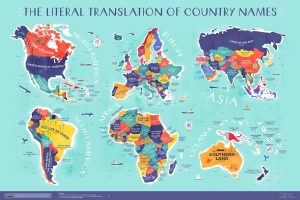
The Literal Meaning Of Every Country’s Name On One Cool Map
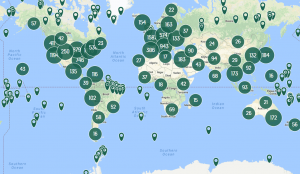
An Interactive Map of 11,000 Unique Sights All over the World
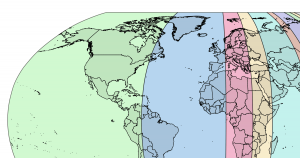
A Map Of The World’s Population Divided Into 10 Equal Sections
This post has 26 comments.
Very informative and well-articulated, It’s always refreshing to see such useful content. Thank you and keep up the excellent work!
Hello Andrew, the PHD student suggests in the 1st Itinnerary that the one stop to make in Washington State is the Hanford Nuclear Reservation?! Flat out, that is a terrible idea. It is in the middle of nowhere, I am just shocked it’s mentioned. Out of all the beautiful and amazing places to see in such a diverse state as Washington, a Nuclear Site was chosen? Surely this student could have done so much better. Thank you for allowing comments.
Having been all around the Olympic Peninsula, I agree that’s there are better stops. But my understanding is that he really optimized for the quickest way to do all 48 and had to choose a point of interest that wasn’t too far off that optimal path, hence that choice (I think).
thanks for sharing this information with us.
I have taken a road trip from California to the the most northeastern part of theUS. west Quaby light house. it was my 1st trip across the us. .I seen so many amazing places.
Quite the drive for sure! Must have been epic.
Why do Americans always think the Statue of Liberty is in NY? it is in NJ. I’ve done road trips now that have taken in 39 states. Here’s a quiz to see how well you know the USA: Which state has only one syllable? Only one city has been name-checked on the moon. In which state is it? Which is the most Northerly of the contiguous states? In which state were Tennessee Williams and Elvis Presley born? Which was the last of the contiguous states to be admitted into the USA? Which four states all share a border with each other? Which state has the lowest population? Twelve cities are name-checked in “Get Your Kicks on Route 66” but only three states. Which? Which state has the longest name? Which two states have the most borders with other states? In which state is the geographical centre of the USA – and which one if you exclude Hawaii and Alaska? Which of the states of the USA has respectively the most Northerly, Southerly, Easterly and Westerly points?
The official Statue of Liberty address is Liberty Island, New York, NY, 10004.
Wow, these comments are very rude for no reason. Thanks for the article, maybe when I graduate from college I’ll consider hitting part of one of these itineraries.
“it’s a huge country (even larger than Canada when considering land area alone).”
Canada – 3.855 million mi² USA – 3.532 million mi² Where does this math fail you?
Where did reading fail you :P? It explicitly says “ when considering LAND area alone ” The quote you copied literally has a link provided under “even larger than Canada” and if you read that, it explains how Canada is only larger than the US due to water area being counted 🙂
There is no stop in North Dakota on the city version. You should stop in Fargo after Billings and before Sioux Falls
I’m 46 years old .. I have been to all 50 states and I’m 17 away from all 50 twice .. I have driven to 47 .. flown to Alaska, Hawaii and Washington..
Wow! That’s impressive :O
This is awesome
This is inspiring! Thank you for sharing!
“this roadtrip in only 9 days“ is extremely false statement. It is only 9 days if you are driving non stop, no breaks to even get out of your car, get gas, or actually see these places. From start to finish drive time it is 225 hours, 16 minutes = 9 days. Wow. Take some time to enjoy the view.
Yes, that’s what we said too 😛
Thanks for the tip 😊
My husband wants to do this trip with our new camper once he retires (5-6 yrs?). I said it’s a Perfect 3 month trip … popping up to Kingston, Ontario, Canada to visit family and, again, up from Bangor, Maine to the Canadian east coast to visit more family, and then back on route thru the US! I love being more in the Wilderness so we’ll find spots (we have a generator and solar onboard and able to carry extra weight for extra water/fuel) more in the Great Wild Outdoors (whenever possible) and do 1-2 day stops to ‘see the sites’! A Dream for me… soon to become Reality! I need to Pinch myself for even Dreaming it but, By the Grace of God, we’ll be doing it!! 🙏🤗🙏
Do you know the total distance of this itinerary? At what moment of the year doing this trip would be the best? Thanks!
Hi! It is 13,699 miles (22,046 km) for the landmarks itinerary and 12,290 miles (19,780 km) for the city version. You can even have the Google Maps links on the creator’s original post (I’ve reposted the link below). As for the timing, I guess it depends on your preferences, but I’d want to avoid that top half of the country (so half the itinerary) in the winter for sure! http://www.randalolson.com/2015/03/08/computing-the-optimal-road-trip-across-the-u-s/
Crappy itinerary! Does not even include Zion National Park… and so many stops in the North Eastern states?? Nobody cares about those places except maybe a couple of places.
As explained, the PhD student who built the itinerary wanted to have one stop per state, and there are many states in the North-East so that’s why there are many stops there. I agree that Zion is an iconic spot, but his goal was also to optimize a routing that was as short as possible so that’s why it’s billed as an itinerary to see all lower 48 states at once and not an itinerary to see *the best spots*. But those interested in doing this can definitely adapt it and add many interesting stops for sure 🙂
Curtis, you are crappy. Obviously this is meant as a guide that can be adapted to add spots. I think it’s awesome.
Agreed! 🙏🥰🙏
Leave a Reply Cancel reply
Get Daily Travel Tips & Deals!
By proceeding, you agree to our Privacy Policy and Terms of Use .
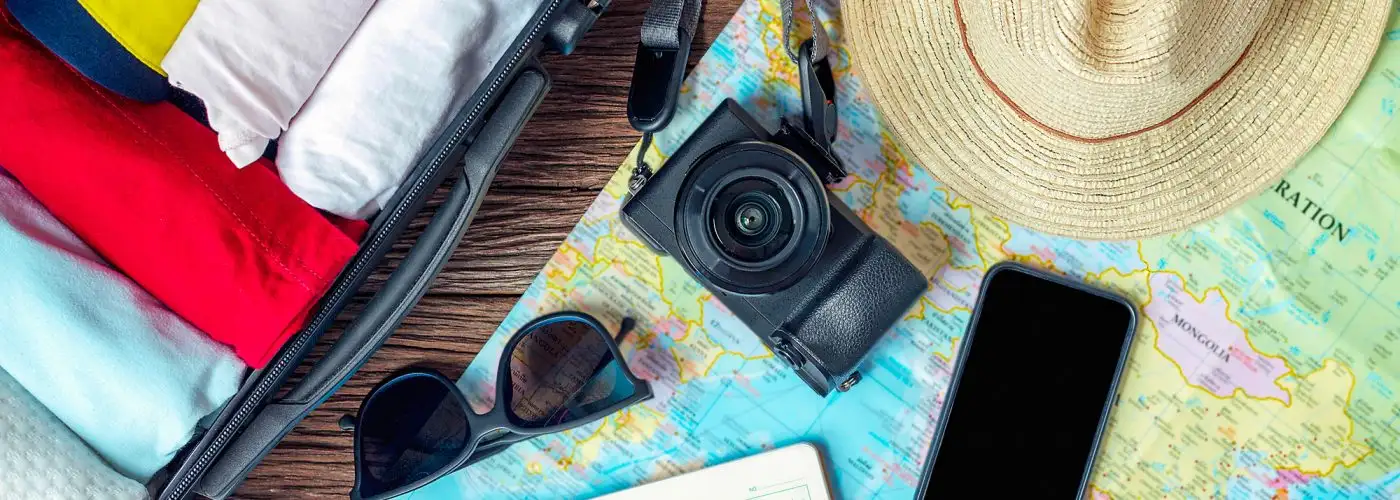
The Ultimate Packing List
Christine Sarkis
Ashley Rossi
There's a 95 percent chance Senior Editor Christine Sarkis is thinking about travel right now. Follow her on Instagram @postcartography and Twitter @ChristineSarkis .
Christine Sarkis is an SATW-award-winning journalist and executive editor at SmarterTravel. Her stories have also appeared on USA Today, Conde Nast Traveler, Huffington Post, and Business Insider. Her advice has been featured in dozens of print and online publications including The New York Times , Conde Nast Traveler , and People magazine. She has also shared travel tips on television and radio shows including Good Morning America, Marketplace, and Here & Now. Her work has been published in the anthologies Spain from a Backpack and The Best Women's Travel Writing 2008 . She is currently working on a travel memoir.
The Handy Item I Always Pack : The Trtl Pillow . It's easy to pack and comfortable, and makes it so I can actually sleep on flights.
Ultimate Bucket List Experience : Seeing the Aurora Borealis from the comfort of somewhere warm, like a glass igloo or hot spring.
Travel Motto : Curiosity is an amazing compass.
Aisle, Window, or Middle Seat : Aisle all the way.
Email Christine Sarkis at [email protected] .
Ashley Rossi is always ready for her next trip. Follow her on Twitter and Instagram for travel tips, destination ideas, and off the beaten path spots.
After interning at SmarterTravel, Ashley joined the team full time in 2015. She's lived on three continents, but still never knows where her next adventure will take her. She's always searching for upcoming destination hotspots, secluded retreats, and hidden gems to share with the world.
Ashley's stories have been featured online on USA Today, Business Insider, TripAdvisor, Huffington Post, Jetsetter, and Yahoo! Travel, as well as other publications.
The Handy Item I Always Pack : "A reusable filtered water bottle—it saves you money, keeps you hydrated, and eliminates waste—win-win."
Ultimate Bucket List Experience : "A week in a bamboo beach hut on India's Andaman Islands."
Travel Motto : "Travel light, often, and in good company."
Aisle, Window, or Middle Seat : "Window—best view in the house."
Travel Smarter! Sign up for our free newsletter.
Packing mishaps range from inconvenient (heading to the Caribbean without a swimsuit) to disastrous (discovering you left the country without your wallet), but most are preventable. We’ve created this ultimate packing list to help you pack well every time.
The Ultimate Packing Checklist
To see the ultimate packing list, scroll down the page or click here for an editable PDF version that you can save or print out. To customize the list, simply download or print it, then edit for your specific needs. You can also download the editable, mobile-friendly checklist here .
Clothes to Pack
- Dress Shirts
- Casual Shirts
- Sweatshirts
- Laundry Kit
- Leisure Shoes
- Hiking Boots
- Dress Shoes
- Collapsible Tote
Shop Our Clothing Packing List
Toiletries to Pack
- Dental Floss
- Conditioner
- Styling Tools
- Facial Cleanser
- Face Lotion
- Moisturizer
- Contact Lenses
- Contact Solution
- Shaving Supplies
- Makeup Remover
- Menstrual Products
- Birth Control/Medication
- Nail Clippers
- Hand Sanitizer
- First-Aid Ointment
- Insect Repellent
- Pain Relievers
Shop Our Toiletries Packing List
Miscellaneous Items
- Laptop/Tablet
- Film/Memory Card
- List of Medications
- Banking Contacts/Information
- Electronic Chargers
- Emergency Contacts
- Copy of Passport
- Plug Adapter
Shop Our Miscellaneous Items List
What to Pack in Your Carry-on
- Books or E-Books
- Travel Blanket
- Travel Pillow
- Disinfecting Wipes
- Change of Clothes
- Empty Water Bottle
- In-Flight Medications
- Passport/Visa/ID
- Credit/ATM cards
- Insurance Cards
- Maps/Directions
Shop Our Carry-On Essentials List
Packing Tips for Clothes and Other Items
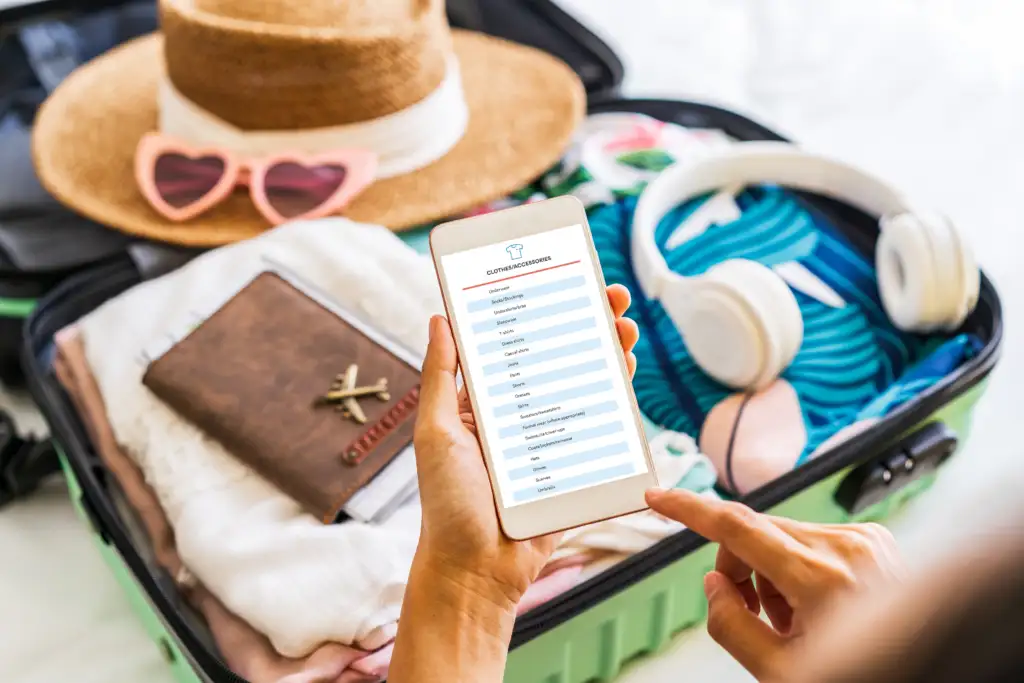
When packing for a vacation the most important things to keep in mind are the length of your trip, the weather, and any non-standard clothing or gear you might need.
Your first step when packing is to decide if you’ll be checking a bag or only taking a carry-on and then curate the amount of clothing you’ll need based on that decision. Typically, you should avoid checking a bag in situations where you have a layover since the likelihood of your bag going missing goes up with every connection . You might also want to avoid checking a bag if you absolutely need items in your bag on arrival—for example, if you’re going on a cruise.
If you’re packing more minimally, focus on packing layering clothes in more neutral colors. That’s not because we don’t like fun colors and patterns; it just means that neutral-colored clothing is more versatile, so you can wear these items more than once when you’re tight on space.
How to Pack in Just a Personal Item Sized Bag
Also invest in clothing that does double duty, like multi-use wraps , crushable hats , self-cooling and heating fabrics like merino wool layers , bug-repellent clothing , wrinkle-resistant shirts, quick-drying activewear and undergarments, casual sneakers, UPF-proof clothing , and compressible jackets … just to name a few. Look toward popular athleisure brands like Lululemon , prAna , and Athleta for comfortable yet stylish travel clothing.
When curating your packing list, you should keep in mind the length of your trip and decide on quantities from there. For a shorter trip (three to five days), you can probably manage with the following: one pair of underwear and socks per day, one pair of pajamas, one to two dressier outfits, one to two activewear or athleisure outfits, one to two casual outfits, and one to two pairs of shoes. For a longer trip (over a week), you can manage with one pair of underwear and socks per day, two pairs of pajamas, three dressier outfits, three to four casual outfits, two pairs of shoes, and two activewear or athleisure outfits.
And if you’re able to do laundry on your vacation, you can probably manage with even fewer items. Just don’t forget to pack a travel laundry kit .
Scrubba Untouched Review
Also make sure to bring along accessories like a money belt, scarf or sarong (can be used for things like an airplane blanket , coverup at the beach, or to throw over your dress on a cool evening), and a collapsible tote or day bag for any extra items you might acquire on your travels. If traveling to a city or destination that is prone to pickpocketing, make sure to pack some pickpocket-proof clothing and gear .
Depending on the type of trip you’re going on, you may need to invest in some special travel gear. We’ve tested out everything from waterproof baby carriers to interchangeable heels , so you can trust our recommendations. If you’re headed out on an organized group tour , you’ll most likely get a packing list from the tour provider, which should make your trip planning easier. If not, do your research online (one tip is to look at locations on Instagram and see what people are wearing) and consult this story for other handy lists of tips.
For more active trips, make sure you have a sturdy pair of hiking boots, quick-drying clothing, a day pack, snacks, and any necessary equipment. Check out our specific packing lists for hiking trips and camping trips .
Another type of trip that you may need to pack slightly specific items for is a cruise . Make sure you pack non-standard items like seasickness remedies, formal wear, dress shoes, and your bathing suit. Beach vacations also require different items like water shoes, towels, sunscreen, and maybe even snorkel gear. Luckily for you, we also have a specific cruise packing list and a beach vacation packing list .
Lastly, you need to consider the weather. For warm-weather destinations like jungles and Caribbean islands, you can obviously skip the coats and gloves, but if you’re headed out on a ski vacation then you’ll need a whole slew of things like goggles, a neck gaiter, snow boots, and more. But don’t worry, we’ve got you covered with a specific Caribbean vacation packing list , a Mexico vacation packing list , and even a ski trip packing list .
10 Secrets I Learned Working in a Hotel
To help keep things organized, we love using packing cubes and/or compression sacks. They’re especially useful for when you’re traveling to multiple destinations in one trip.
Wondering how to pack all of your items? Enter the great debate of the rolling vs. folding method! While this is definitely a personal preference, we put two editors to the test to find out which method is in fact, more space-saving. Watch the video below to see the answer.
How to Pack Toiletries and Medications
Whether it’s important medication or your favorite lipstick, forgetting any type of toiletry can range from being mildly inconvenient to becoming a serious problem. For toiletries, make sure to pack your essentials, like medication, contacts, and any other items that you might not be able to purchase or replace during your travels. (Put them in your carry-on bag, not your checked suitcase.) However, if you forget items like a toothbrush or razor, you can typically call the front desk at the hotel for a spare.
We also recommend traveling with some type of a travel first-aid kit , which includes items like tweezers, first-aid ointment, bandages, travel-sized hand sanitizer, sunscreen, and insect repellent. Make sure to check TSA guidelines if you’re traveling with medication , as well as the policies and regulations at your destination.
Packing Tips for Everything Else …
Traveling without tech items like your phone, laptop, tablet, or camera can be a major bummer. For those traveling abroad, you’ll also want to remember to pack electronic adapters and converters . Other tech-related items for photographers to pack are a sturdy camera bag , backup batteries, and memory cards, as well as lens cleaner. And don’t forget smartphone essentials like a backup charger, waterproof case if you’re headed out on the water, and a phone stand or tripod for photos.
A travel packing tip we’ve learned the hard way? Travel with a copy of your passport, credit card, and bank contacts, as well as a list of medications and your emergency contacts.
If you are traveling abroad, we have an entire checklist for you, but the most important thing to note here is your passport and visas . Make sure that your passport is up to date, has as least six months of validity, and has enough blank pages for any stamps. Another tip for international travel? Give yourself plenty of time to apply for any visas that you might need and to arrange for a visit to a travel clinic if any special medications or vaccines are needed. You should also familiarize yourself with any remaining COVID-19 travel restrictions at your destination.
There are also some items that you may not think to pack, but should, like an electronic tracker , duct tape , toilet paper, a decoy wallet, or a whistle.
The 10 Best Expandable Suitcases
What to Always Pack in Your Carry-on Bag
In case you’re separated from your checked bag or other items, you should always make sure that you have your ID, wallet, house keys, medications, valuables, camera, phone, laptop, tablet, pen, cash and cards, glasses, and copy of your itinerary with you on the plane.
Other items that you might want to have handy with you include entertainment for your flight, comfort-promoting items like a blanket or pillow, as well as an empty water bottle to fill up post-security (here is a list of our favorites ), a change of clothes (just in case your luggage is lost or delayed), snacks, and gum.
If you’re looking to pack carry-on only, you guessed it: We also have a separate packing list and tips for that, as well as the best bags to use for carry-on only .
What to Pack to Stay Healthy While Traveling
The pandemic has significantly changed the way we travel and, by extension, the items we prioritize in our luggage. While many destinations have loosened or entirely lifted COVID-19 restrictions, some venues and events may still require a mask or proof of vaccination/negative COVID test to enter. Plan ahead to see if any activities on your itinerary have restrictions in place.
Sanitizing wipes and hand sanitizer , while always a good idea to have on hand at the airport , have become absolute carry-on musts. Wiping down areas like your tray table, airplane seat armrest, and hotel television remote can spare you from a variety of common travel bugs.
Editor’s note: This story was originally published in 2013. It has been updated to reflect the most current information. Ashley Rossi contributed to this story.
All of the products featured in this story were hand-selected by our travel editors. Some of the links featured in this story are affiliate links, and SmarterTravel may collect a commission (at no cost to you) if you shop through them. As an Amazon Associate, we earn from qualifying purchases.
You Might Also Like:
We hand-pick everything we recommend and select items through testing and reviews. Some products are sent to us free of charge with no incentive to offer a favorable review. We offer our unbiased opinions and do not accept compensation to review products. All items are in stock and prices are accurate at the time of publication. If you buy something through our links, we may earn a commission.
Top Fares From

Don't see a fare you like? View all flight deals from your city.
Today's top travel deals.
Brought to you by ShermansTravel
Greece: 8-Nt, Small-Group Tour, Incl. Aegina,...

Amsterdam to Copenhagen: Luxe, 18-Night Northern...
Regent Seven Seas Cruises

Ohio: Daily Car Rentals from Cincinnati

Trending on SmarterTravel
- NEW COLOURS
- Limited Edition
- Classic Tech
- Classic Plus
- Classic Pro
- Classic Flight
- Military Backpack
- Underseat Bags
- Laptop Backpacks
- Gym and Work Backpacks
- Minimalist Backpack
- > Show All
- Classic Cross Body Bags
- Packing Cubes
- British Airways
- Backpack Size Guide
- > More Backpack Guides
- Carry On Luggage Size Guide
- > More Cabin Bag Guides
- Travel Gift Guide
- > More Travel Gift Ideas
- LGBTQ+ Limited Edition Collection
- CabinZero Stories
- Digital Nomads Hub
- Product & Style
- Travel News
- Packing Tips
- Packing Lists
- Staycations
- Air Travel Tips by Airlines
- Luggage Tips
- Pre-flight Checklist
- In-flight Checklist
- Layover Tips
- CABIN MILES
- instagram Instagram
- Backpacks CLASSIC NEW COLOURS Limited Edition Classic Classic Tech Classic Plus Classic Pro Classic Flight ADVENTURE NEW COLOURS ADV ADV Pro ADV Dry MILITARY Military Backpack SIZE 28L 30L 32L 36L 42L 44L SHOP BY FUNCTION Cabin Bags Underseat Bags Laptop Backpacks Daypacks Gym and Work Backpacks Minimalist Backpack
- Shoulder Bags > Show All SHOULDER BAGS Sidekick Flipside Flapjack Classic Cross Body Bags
- Bum Bags > Show All BUM BAGS Hustle Hip Bags
- Accessories > Show All ACCESSORIES Rain Cover Packing Cubes Gift Cards
- Blogs Product Guides Backpack Size Guide > More Backpack Guides Carry On Luggage Size Guide > More Cabin Bag Guides Travel Gift Guide > More Travel Gift Ideas Our Journey LGBTQ+ Limited Edition Collection CabinZero Stories Digital Nomads Hub Lifestyle Product & Style Travel News Travel Tips Packing Tips Packing Lists Day Trips Staycations Air Travel Tips Air Travel Tips by Airlines Luggage Tips Pre-flight Checklist In-flight Checklist Layover Tips
15 Benefits of Travelling and Why Travel Is Good for You
What comes to your mind when someone asks you about “travel”? Does travel mean a vacation on the beach while sipping some margaritas, an adventure to the unknown, or an Instagrammable sunset destination? The idea of travelling varies from person to person, but the advantages of travelling are unbounded.
When you travel, not the trip or the vacation itself, but the whole process of planning, exploring, and returning from a trip is important. When you realise how the benefits of travelling can do wonders for you, you definitely will have the motivation to pack your bag and start travelling more. What is it about travelling that always makes you feel good after coming back from a trip? There are so many advantages behind travel, but here are the top 15 benefits.
The Health Benefits of Travelling: Travelling Improves Your Health and Mind
Improving your well-being is one of the fundamental benefits of travelling. Travelling helps to decrease the risks of heart attack and anxiety, while developing our brain health. There have been studies proving that travel can place a positive impact on our heart health. One study from Framingham Heart Studies Organization published in the American Journal of Epidemiology shows that women who would travel at least twice a year had a significantly lower risk of developing coronary heart disease or heart attack compared with those who would only be able to travel once in every six years.
One of the health benefits of travelling is that when you travel to new surroundings, you press a restart button to your body and mind, which brings in fresh energy when you get back to your regular activities. It keeps you physically fit by being active on the journey, exploring nature, hiking, or strolling the local markets. A healthy body means a healthy mind, and the stimulation you get from travelling can boost your productivity and effectiveness in your daily work.
Exploring a new place, trying new things, and pushing yourself out of your comfort zone can increase the level of dopamine in your brain. This will contribute to how we strive, focus on things and find things interesting. Remember, “Travel and change of place impart new vigor to the mind,” said the Roman philosopher Seneca.

Source: unsplash.com
The Advantages of Travelling: Travelling Improves Your Communication and Language Skills in Many Ways
Some people enjoy the idea of travelling because it allows them to meet new people from all walks of life. Speaking to new people and getting new perspectives will change how one perceives the world and easily get engaged in various topics of conversation. Travel really helps in consolidating both effective communication and social skills as you are exposed to different cultures and outlooks. This benefit you get from travelling can be applied not only to your personal life but your work life also .
Setting foot in a new part of your country or a new part of the world means you are out of your ordinary comfort zone. Everything is new and captivating to your curiosity. The benefit of this is you are eager to learn new things and open to new ideas and concepts. This will naturally lead to the urge to open your mind and practice your people skills, whether you travel alone or with someone else.
Travelling is when creativity comes into play in your daily communication. When you travel to a new country, there are situations where you would have to use not only verbal communication but also gestures and other non-verbal ways to express yourself. Whether you ask for directions, buy ingredients at a local market or have a conversation with a local, be prepared to utilize your body language skills!
The Benefits of Travelling: Hedonistic Travel Ensures Peace, Calms Your Mind and Encourages Positive Feelings
When going on a holiday, we often tend to be stimulated, present and be in the moment, which brings us a step closer to achieving mindfulness. Travelling alone brings in the feeling of solitude that we don’t often get enough of. Travelling allows us to be disconnected from people, and even technology, for a while, and be more connected to our own mind and self, which leads us to our inner peace.
Whether it is domestic or international travel, travelers step out of their habitat and get exposed to other conditions of life. We find ourselves more thankful for our life and realise what we have might be what others desire. Appreciation to every little thing in life is one way or another a course for happiness.
Travelling also changes our attitude towards life and people in a more positive way. We observe things and think from a broader perspective when our mind is open to the outside world. The benefit of travelling helps us embrace cultural and social differences more when immersing ourselves in a different environment with new people and perspectives. Moreover, coming back from a journey means ticking off one goal and proving our ability to overcome challenges. This forms the positive attitude that helps us tackle the hurdles.
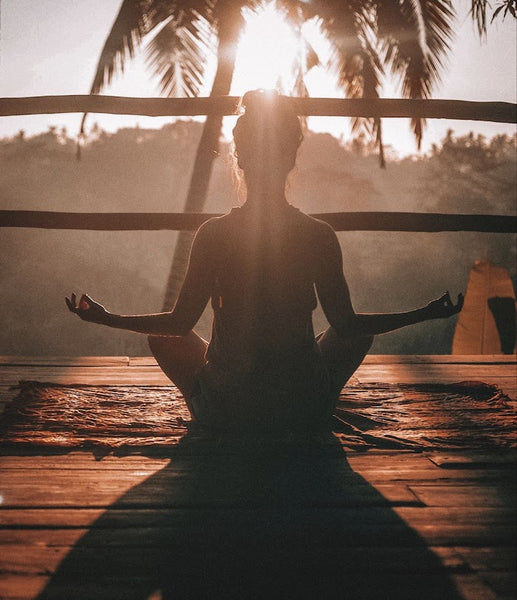
Why Travelling is Good? International Travelling Boosts Creativity through Experiences
“Why would travel have anything to do with creativity?” you may ask. First of all, it is associated with the sense of being innovative. When we travel, we try the local cuisines which we might have never tried before, get exposed to new customs and culture, and get introduced to unfamiliar ideas and beliefs. This stimulates creativity within our thinking, our methods and how we deal with certain situations. It is easier for us to come across new ideas when we get out of our usual surroundings. If we are put in boxes, how can we think “outside the box”?
Travelling teaches you to be creative and that everything has an alternative. What if you bump into a toilet that only has a hole on the ground, or a bathroom without a shower but only a bucket of water? That is travelling forces you to use your creativity to roll along with it.
What you might have experienced but not have realised when you travel is that travelling touches your every sense. Ask yourself this question, do you feel a strong sensation by a mellow sound you have never heard, an exquisite taste from local cuisines, an evoking smell from a street food vendor, or a remarkable sight of a magnificent mountain range? If the answer is yes, then this effect of exploring a new place can be an attribute to revitalize your mind and make you more creative when you travel.
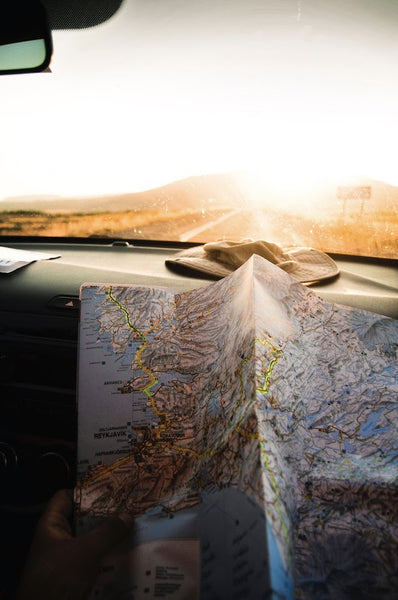
Not only does travelling help with our creativity, but it also enhances our cognitive ability, sometimes referred to as general intelligence. This ability includes the capacity to “reason, plan, solve problems, think abstractly, comprehend complex ideas, learn quickly, and learn from experience” (Plomin, 1999). These attributes are all connected to travel. The more you travel, the wiser you become. Adam Galinsky , a professor at Columbia Business School has stated “Foreign experiences increase both cognitive flexibility and depth and integrativeness of thought, the ability to make deep connections between disparate forms.”
The Benefits of Travelling Abroad: Travelling Enhances Your Tolerance towards Different People and New Cultures
Travelling is more than just about exploring new places. It also allows you to become more tolerant and open towards new cultures and people. It is a great opportunity to connect with locals and other like-minded people from around the globe. When you are willing to strike up a conversation with someone from a different background, the more you understand them and accept diversity, the better your tolerance level gets. Travelling teaches us to appreciate and value cultural diversity, traditions and appearances.

Not only does travelling help us embrace cultural, social and racial differences, travelling also increases our tolerance towards tough conditions and uncertainties. When we throw ourselves into an unfamiliar or less developed locality, we begin to become more accepting. It is not always a bed of roses everywhere we travel to, and things do not always go as planned, however, when we are aware of this, we get less bothered and enjoy the journey as much as we want.
Cabinzero’s CEO Neil Varden shared with us some stories about a time when he traveled to India - a country of hues and colors, and on top of all, a country of kindness. He was deeply touched by how friendly and greathearted local people were when he found out a notion followed in their mind, which is “Guest is God”. As he was travelling to Diu - a very small and unfamiliar town in India - on a bus, he happened to have a conversation with an Indian doctor. And since there was no direct bus to the town and it was very late at night, the doctor then invited him for a stay with his family for the night and offered him the surprisingly good generosity that he had ever received.
Another time when he was on a bus, and there was this Indian woman who offered him some biscuits when he was hungry, while she might not have enough to eat for herself and her children. Those are just among many warmhearted stories that he stumbled upon during his travel that made him realise one thing: you can really meet people who have almost nothing but still are generous with what they have.

The Benefits of Travelling: Travelling Is a Great Way to Boost Your Confidence
Neil also shared an example of how travelling can be a motivation for us to gain more confidence in ourselves and our passion. “Unbeknown to me, travelling when I was 22-26 changed my life long term, even today. The confidence gained by travelling to an unfamiliar country/culture gave me huge benefits when I started my business. I never had much fear knocking on doors of factories or visiting trade shows in countries I had never been to before. AND, for sure, my business and the brand would not exist if I hadn’t travelled. Since I travelled I spent all my time after trying to figure out how I could make travel a permanent fixture in my life and the business was built around this need, it is truly a lifestyle business.” - Neil Varden, CEO of Cabinzero .
Regarding this advantage of travelling, Mary Helen Immordino-Yang, an associate professor of education and psychology at the University of Southern California, says “What a lot of psychological research has shown now is that the ability to engage with people from different backgrounds than yourself, and the ability to get out of your own social comfort zone, is helping you to build a strong and acculturated sense of your own self.”

Stepping out of your bubble to travel, especially alone, is one way to prove that life has no limits. Travelling makes us realise that difficulties and obstacles can be handled well without the help of friends or family. When you see the powerful force within you, you start to build more trust in yourself and fear less. You believe in the certainty that things can be tackled one way or another, and it comes with the creative mind you get from travelling - nothing can stop you from achieving your passion and goals in life!
The Importance of Travelling: You Get Real-life Education from Travelling to a New Place
Real-life education comes naturally when you travel. Think about when you plan for a trip, when you solve a problem, or when you come across a situation that you have to use your body language to communicate. Those circumstances train you to be skillful as you travel. This benefit of travelling helps in your planning skills, problem-solving skills, improvising ability, and such. As you learn from your own experiences, these lessons are what you can equip yourself with and make use of in the long run.
What you learn in books is great, but travelling offers you the opportunity to learn more about something new every day. The moment you step out of those hotel doors and go out on the street, you learn at least one new lesson. Simple things like how people greet and talk to each other, how they behave tell you a bit about their culture. What’s more, travelling teaches you failures can turn into great hands-on lessons. It is true that travelling is not always glorious and can be hard at times. Let’s say the language barriers, for instance, it is surely possible to make mistakes with words here and there. Imagine going to the market and getting mixed up with the words for tomatoes and fish, this could be a bit embarrassing, but that’s where you get to learn.
The Benefits of Travelling: Travelling Make Memories from New Experiences
Do you usually take photos during your travel, or collect items like currencies or souvenirs after the trip? If not then we strongly suggest you to, as this is one of the benefits of travelling that could be valuable to you. Photos, or videos, that are taken from a trip, whether you keep them on your phone or post on social media, can remind you of the good time you have spent. Even an object you take home from the trip can really awaken your memories and feelings.
Memories from travelling are often connected with positive emotions, when you try something new, or the excitement you get from going to a new place that makes you feel at one with yourself and others around you. There are definitely times when you face unexpected obstacles on the journey, however, after you figure how to settle them, those memories are the life lessons that you have got a chance to learn.
If you travel in a big group, special memories from the trip can be turned into engaging stories that can last for a lifetime. When we travel, we are relaxed and open to show our true colors, which even adds more spices to the fun. This is the reason why travelling can be such a great bonding activity for families or groups of friends.
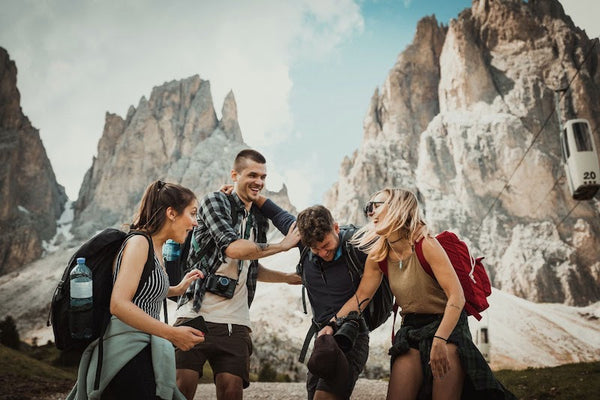
Why Travel is Good for You - How Travelling Helps You Understand Yourself More is Very Important
Travelling alone facilitates a process of introspection, allowing you to reflect on your own emotional and mental well-being. This is a wonderful benefit of travelling that you might not have thought of. When you are away from the stress of your daily life, be present and live in the moment, you are more likely to be conscientious about how you think and feel.
When you travel internationally, you get to observe how you feel being far away from your own culture. You observe the differences in people’s manners and behaviors, how people think and react to specific situations. From there, it is human instinct to compare the differences. You then start to explore and compare how it is different from your own culture and mindset, how other people are different from you, and why. Eventually, travelling will help in the process of understanding yourself more and give you a reflection on how you feel and think.
On the other side of this self-discovery process, travelling even changes you. You are not the same person after returning home from a journey. You have tons of intriguing stories to tell, you are more open and accepted. Moreover, travelling helps you reinvent yourself and re-evaluate your values in life after the lessons you learn on the road. Travelling teaches you to be more patient and curious about the world around you. This benefit undoubtedly helps in understanding and developing yourself.
The Benefits of Travelling: Travelling Helps Reduce Stress and Eases Anxiety
When you choose to leave your daily work to travel, you give yourself an opportunity to be more connected with nature. Fresh air and sunshine are a benefit to your health, fresh air boosts oxygen in your body and sunshine provides you with vitamin D. Being connected to these elements of nature makes you feel calmer, which definitely helps with stress and anxiety.
Whether you are a fan of hiking, cycling, climbing or diving, they are all a cure for depression while you travel. Fun and adventurous activities help you to relieve stress as you get to live and enjoy the moment. Leave your daily hassles away, pack your bag, go on a trip and get some air!

Why People Are Travelling - Travelling Gets You out of a Rut of Daily Life
Travelling is one of the great ways to get out of the hustle and bustle of your everyday life. It frees you from your daily schedule and allows you to have time for yourself to relax and explore. To some people, 9-5 jobs are occasionally mundane and repetitive, which makes a break from work totally a must. It is easy to get stuck in the workload and forget about our purposes and direction in life. Therefore, travelling gives us a pause from ordinary life and helps us get more focused on ourselves.
The Benefits of Travelling: World Travel Teaches Us to Appreciate the Beauty and Fragility of Nature and the Earth
If you ever wander off the rice terraces in the Philippines and Vietnam, dip in the Blue Lagoon in Iceland, or fall in love with the cherry blossoms season in Japan, you definitely feel a great sense of appreciation and gratitude for what Mother Nature has offered. Travelling opens your eyes to the absolutely breathtaking wonders of the Earth, especially if you gaze upon them with your own eyes.
World travellers are people who have witnessed the diversity of nature and wildlife, and how fragile this Earth can be. Travelling is eye-opening and enriching our responsibility of protecting the planet that we are living on. It makes us realise that nature and animals are suffering from human activities and raises more awareness about our crucial role in developing a more sustainable future.

Why Is Travelling Important? Travelling Helps You Find a New Purpose and Forces You to Take Action
For some people, travelling can be a life-changing experience. If you are at an important transition in your life and thinking of making a decision, travelling is a breath of fresh air to slow things down and it gives you time to think it through. If you are looking for a purpose and direction in life, try planning a trip to unfamiliar surroundings and experiencing it as much as you can. What if you see a meaning out of it and figure out what you are looking for?
Believe it or not, travelling can turn you into a better decision-maker. Travelling is about decision-making in the whole process, from planning a trip, to deciding a place to eat, or where to go, you need to be determined and actively leading the way. If you are confident in making those little decisions, it will build up your determination in bigger decisions in life.
Travel Makes You Embrace Your Home and Ordinary Life More - One of The Advantages of Travelling
We often tend to dream of travelling and those days off hitting the road while we’re working 9 to 5. However, when we travel, there are certain situations that you may find yourself miss the feeling of home and how convenient it is to be in your own comfort zone. You will begin to appreciate the essentials you have at home when you travel. The feeling of a comfy bed and pillows at home may pop in your mind when you spend days and weeks sleeping in hostels or camping tents. You may miss your own bathroom when you share it with other travellers in dorms and hostels. Those are the little things that you will appreciate when you are back home from a long journey.
What’s more, the language barrier is another aspect that can make you miss home when you travel. Of course, during the trip, you might be able to use some basic communication with the locals and can pick up several phrases here and there. However, you will definitely miss the feeling of being able to join in a more in-depth conversation, discussing politics, or expressing your opinions at some point.
The Benefits of Travelling: You May Find the Love of Your Life When You Travel and Meet New People
“Could you find love on the road?” Yes, it is possible. You meet plenty of like-minded people when you spend days hitting the road. Someone who shares the same values and mindset as you might come along unexpectedly and suddenly you feel connected to them. Especially when you travel, you open your mind and heart to new experiences, therefore, falling in love with someone is very likely to happen.

Travelling can indeed bring people closer, which is why couples choose to spend time together on a vacation to spice up their relationship. But what about meeting a total stranger and falling head over heels unexpectedly, while strolling on the riverside or a random beach? That sounds more intriguing. That random stranger might just be a fling or can turn into the love of your life, who knows?
It caught my attention when you said that you can get helping reducing stress when you engage in fun and adventurous activities while you travel. As you said, traveling gives you an opportunity to be more connected with nature. With this in mind, I will consider finding great travel ideas so I can plan my vacation. Since December last year, I have been feeling so stressed due to the divorce process that I had to go through, so it is important for me to find places where I can feel recharged and relaxed. Thanks for sharing this. https://www.homegrowngreat.com/discover/attractions/
It’s great that you mentioned that one of the health benefits of travelling is that when we travel to new surroundings, we press a restart button to our body and mind, which brings in fresh energy when we get back to our regular activities. My husband and I will go on vacation to a family resort this weekend with our family. I’ll share this with him since we really need to travel more often and destress from work. Thanks! https://edgeofthewilderness.com/resort-lodging-minnesota-northern.html
Interesting article. So many reasons to travel!
Leave a comment
Please note, comments must be approved before they are published
This site is protected by reCAPTCHA and the Google Privacy Policy and Terms of Service apply.
You may also like

Here's what you need to know to plan a trip around the world
Dec 29, 2021 • 7 min read

Don't start planning your round-the-world trip without reading this guide © Getty Images
In 1924, a team of aviators from the USA successfully completed the first-ever circumnavigation of the globe by airplane, a feat that took 175 days, 76 stops, a cache of 15 Liberty engines, 14 spare pontoons, four aircraft and two sets of new wings. This achievement ushered in an era of international air travel, and nearly a century later, travelers are still creating their own round-the-world itineraries.
You might not have the same worries as those early aviators, but planning a round-the-world trip has never been a more complex process. As COVID-19 continues to alter world travel , heading out on a multi-country trip might be more complicated than it has been in decades. While it might not be the right time to hit the road, luckily it's never too early to start figuring out the logistics of a trip around the globe. After all, who doesn't have a lot of pent-up wanderlust at the moment?
When it comes to booking your trip, there are several options for booking your airfare, as well as flexibility on timing, destinations and budget. But don't let that overwhelm you – start here with our handy guide on how to plan that round-the-world trip you’ve always dreamed of.
Where and how to get a round-the-world plane ticket
The most economical way to circumnavigate the globe is to buy a round-the-world (RTW) plane ticket through a single airline alliance. These are confederations of several different airlines that make it simple to maximize the number of places you can travel and pay for it all in one place or with points. There are three primary airline alliances to choose from: Star Alliance, OneWorld and Skyteam. Star Alliance is a coalition of 26 airlines that fly to 1300 airports in 98% of the world’s countries. OneWorld includes 14 airlines traveling to 1100 destinations in 180 territories. Skyteam is made up of 19 airlines that serve 1000 destinations in 170 countries.
Read more: How to save money when you're traveling
Once you pick an airline alliance, whether because of a loyalty program you’re already a member of or because you like its terms, conditions and destination list, you can purchase a single RTW airline ticket made up of several legs fulfilled by that alliance’s partners. The RTW ticket rules vary between each of the airline alliances, with particulars like Star Alliance’s rule that a RTW ticket can include two to 15 stops. But there are some general principles that apply to most RTW tickets, no matter which airline group you go with.
You typically must follow one global direction (east or west – no backtracking); you must start and finish in the same country; and you must book all your flights before departure, though you can change them later (though this could incur extra charges). Typically you have one year to get from your starting point to the finish line.
How long do I need for a round-the-world trip?
You could whip around the world in a weekend if you flew non-stop, especially with the advent of new ultra-long-haul flights that can clock in at 20 hours of flight time. However, the minimum duration of most RTW tickets is 10 days – still a breathless romp. To get the most out of your round-the-world ticket, consider stock-piling vacation days, tagging on public holidays or even arranging a sabbatical from work to take off at least two months (but ideally six months to one year). Because most airline alliances give you up to a year to use your ticket, you can maximize your purchase if you plan well.

When should I travel on a round-the-world trip?
The weather will never be ideal in all your stops, so focus on what you want to do most and research the conditions there. In general, city sightseeing can be done year-round (escape extreme heat, cold or rain in museums and cafes), but outdoor adventures are more reliant on – and enjoyable in – the right weather.
Research ahead of time if any must-see destinations or must-do activities will mean facing crowds. For example, if you’re hoping to be in Austria for the famous Salzburg Festival, you’ll want to plan ahead and book your tickets months in advance. If you’re hoping to fit a shorter thru-hike into your round-the-world trip, you’ll want to make sure you’re going in the correct season and starting in the right spot. You won’t get far or have as enjoyable an experience if you’re, say, attempting the Tour du Mont Blanc during the dates of the annual winter marathon or headed northbound on the Pacific Crest Trail in July, missing most of the warmer months.
Accept youʼll be in some regions at the "wrong" time – though this might offer unexpected benefits. For example, Victoria Falls has a dry season each year , which means a slightly less thunderous cascade, but it does open up rafting opportunities and a chance to swim right up to the lip of the falls in The Devil’s Pool. Going to Venice in the winter might mean grayer skies but fewer crowds. Heading to Kenya and Tanzania in April is likely to mean fewer humans, but not fewer chances to spot wildlife, all while saving money on safari. Also keep in mind that mom-and-pop locations have their downtime and holiday seasons as well; don't be too surprised if your local bakery in Paris is closed for a holiday week or two in August.

Where should I go on my round-the-world trip?
The classic (and cheapest) RTW tickets flit between a few big cities, for example, London – Bangkok – Singapore – Sydney – LA . If you want to link more offbeat hubs ( Baku – Kinshasa – Paramaribo , anyone?), prices will climb considerably. The cost of the ticket is also based on the total distance covered or the number of countries visited.

Remember, you donʼt have to fly between each point: in Australia you could land in Perth , travel overland and fly out of Cairns . Or fly into Moscow , board the Trans-Siberian railway and fly onwards from Beijing. Pick some personal highlights and string the rest of your itinerary around those. For instance, if youʼre a keen hiker, flesh out a Peru ( Inca Trail ) – New Zealand ( Milford Track ) – Nepal ( Everest Base Camp ) itinerary with stops in Yosemite , Menz-Gauassa and the Okavango Delta .
If budgetʼs an issue, spend more time in less expensive countries and plan budget city breaks along the way. You’ll spend more in metros like Paris, Dubai and San Francisco than in Nusa Tenggara , Budapest and Buffalo .
Tips, tricks and pitfalls of round-the-world tickets
Talk to an expert before you book a round-the-world ticket: you may have an itinerary in mind, but an experienced RTW flight booker will know which routes work best and cost least. A few tweaks could mean big savings in time and money. Hash out a budget well ahead of time, not only for your RTW ticket, but also for the whole trip. Reach out to friends or travel bloggers who have done a round-the-world trip or are full-time travelers because they can offer tips on how to budget for a trip around the world .
Be flexible: moving your departure date by a few days can save money. Mid-week flights are generally cheaper, as are flights on major holidays such as Christmas Day. Avoid days and times popular with business travelers to escape higher prices and more crowded cabins.
Think about internal travel: it can be cheaper to book internal flights at the same time as booking your RTW ticket, but with the global increase of low-cost airlines, you may find it better (and more flexible) to buy them separately as you go.
Be warned: if you donʼt board one of your booked flights (say, on a whim, you decide to travel overland from Bangkok to Singapore rather than fly it) your airline is likely to cancel all subsequent flights.
You might also like: 10 destinations perfect for solo travel Can visiting lesser-known places offer a better travel experience? 6 things I learned from flying 6 days in a row
This article was first published Mar 20, 2012 and updated Dec 29, 2021.
Explore related stories

Jul 18, 2024 • 2 min read
Is it possible to go sightseeing in London with just an 8-hour layover at Heathrow Airport? LP is here to help.

Mar 14, 2024 • 10 min read

Nov 19, 2023 • 10 min read

Aug 27, 2023 • 6 min read

Apr 28, 2023 • 3 min read

Dec 1, 2022 • 3 min read

Jan 12, 2020 • 5 min read

Sep 6, 2024 • 6 min read

Sep 3, 2024 • 7 min read

Aug 28, 2024 • 6 min read
Beating Travel Insomnia: A Traveler’s Guide to Better Sleep
- by Abby McCoy
- Updated: December 18, 2023

Whether you jet off on a sunny, relaxing holiday or you’re called far from home for a business conference, trips come with plenty of intertwined positives and negatives. No matter how you travel, hitting the open road or the blue skies can offer excitement, a change from the daily grind, and a sense of adventure. But it can also open the door to travel insomnia. Don’t worry too much, though. In this article, we’ll let you know some common travel sleep-disruptors and how to address them.
Note: The content on Sleepopolis is meant to be informative in nature, but it shouldn’t be taken as medical advice, and it shouldn’t take the place of medical advice and supervision from a trained professional. If you feel you may be suffering from any sleep disorder or medical condition, please see your healthcare provider immediately.
Long Story Short
- Travel insomnia, although not a medical diagnosis, describes difficulty sleeping when you’re on a trip.
- Stress, anxiety, different sleeping conditions, and jet lag can all contribute to travel insomnia.
- You can banish travel insomnia by following good sleep hygiene practices, mimicking your home sleep environment, and steering clear of heavy meals, alcohol, and caffeine too close to bedtime.
What Is Travel Insomnia?
As a medical diagnosis, insomnia describes difficulty falling asleep and staying asleep. ( 1 ) 1 To be considered true insomnia, your symptoms have to stick around for a minimum of three nights a week for at least three months, says Dr. Chester Wu, MD , sleep medicine physician in Houston, TX.
Travel insomnia describes temporary trouble sleeping that any traveler can experience — even if you travel often. When normal sleep patterns get disrupted, you can experience symptoms like: ( 2 ) 2
- Daytime fatigue
- Difficulty concentrating
- Mood changes
- Gastrointestinal symptoms, like a change in bowel movement frequency
“Travel can lead to, if not full-blown insomnia, then certainly sleeping issues,” says Wu, who adds that travel insomnia is not a medical term and differs from jet lag. “Travel insomnia likely refers to any sleep disruption that occurs during or after travel, while jet lag specifically refers to the circadian rhythm disruption caused by crossing multiple time zones.”
Jet Lag, Defined
Jet lag describes a temporary sleep disorder that happens when you travel to a new time zone. Your circadian rhythm doesn’t know what to do with the switch-up, especially if you move through more than two time zones. ( 4 ) 4
Jet lag can contribute to travel insomnia, Wu says, but other factors can also play a big role. Let’s look at some of the other elements that impact sleep while you travel.
What Causes Travel Insomnia?
To know how to combat travel insomnia, first we need to look at its causes. Regular old insomnia (not just the travel kind) can be caused by a long list of components, including noise or light at night, a too-cold or hot room, a change in routine, skimping on physical activity in the day, certain medications and medical conditions, as well as loading up on caffeine and alcohol. ( 3 ) 3 Odds are at least one or two of these factors sound familiar, whether you’re a frequent flier or a travel novice.
In addition to general insomnia causes, travel insomnia origins can include:
- Travel stress : Stress or anxiety related to travel can hit even the most seasoned globetrotter, says Wu. One study found business travelers were more affected by sleep disturbances than people going on vacation. ( 4 ) 4
- New environment : Unfamiliar sleeping environments can also disrupt your snoozing while you travel, says Wu. Although experts aren’t sure why, some research suggests this cause can especially affect morning people. ( 4 ) 4
- Disrupted schedule : A consistent bedtime and waking schedule are a hallmark of good sleep hygiene , so when your schedule gets shuffled like a card deck, your sleep may react accordingly.
- Jet lag : If you travel across multiple time zones, this change can disrupt your body’s circadian rhythm, or internal clock, says Wu. When your internal clock thinks it’s bedtime but the sun’s still high in the sky, it’s hard to get back on a regular sleep schedule . ( 5 ) 5
- Missing sleep accessories : If you adore your perfectly firm mattress and your memory foam pillow, you may have trouble sleeping without them.
Some of those may seem easier to battle than others, but we’ll get into some specifics and suggestions below.
Can I Avoid Travel Insomnia?
If you’re worried about travel insomnia, you can take a few steps to avoid it altogether. Wu recommends you try to keep as many aspects of your sleep the same while you travel, even if it poses some challenges.
“This means creating a sleep environment that mimics the same temperature, noise level, and darkness,” Wu says. He also says to stick to the same sleep timing and bedtime routine as well as the same daytime behaviors that influence your sleep (like diet and exercise). If you’re traveling over time zones, Wu suggests adjusting your sleep schedule gradually over several days if you can.
Of course, some things may be out of your control, and there’s no guarantee you’ll be able to fully trick your body into thinking you’re back in bed at home. But the closer you can get to your regular routine, the better off you’ll be.
Tips for Overcoming Travel Insomnia
If you can’t avoid travel insomnia, you can still work to banish it and reclaim your sleep! How you overcome your sleep woes while traveling depends on whether you have medically diagnosed insomnia or temporary sleep disturbances from travel, says Wu.
“For the former, insomnia-specific treatments like stimulus control, sleep restriction, and CBT-I ([cognitive behavioral therapy for insomnia]) may help,” Wu says. “Otherwise, maintaining excellent sleep hygiene is your best bet, with a particular emphasis on correctly timed light exposure and relaxing before bed.”
What Is Cognitive Behavioral Therapy?
Cognitive behavioral therapy for insomnia, or CBT-I, is a type of therapy that targets insomnia by addressing your behavior and thought patterns surrounding sleep. ( 6 ) 6
It’s also a good idea to make a sleep plan designed to accommodate your air travel and your first few nights away from home, especially if you’ll be away more than two days. ( 4 ) 4 For example, if you arrive at your destination at 10 o’clock in the morning, you may be tempted to sleep all day, but try to stay up as late as you can to readjust your circadian rhythm. ( 4 ) 4
Read on for more tips to reclaim your sleep while you’re away from home.
Seek Out Natural Light Exposure
Your circadian rhythm depends on cues from light levels , so when you get out in the sun, you can help reset your clock to your new time zone and remind your body it’s time to be awake. ( 7 ) 7(p2) ( 8 ) 8 Natural light isn’t the only thing that affects sleep, though — blue light from electronic devices can keep you up when you should be sleeping. Try to avoid screens in the hour and a half before bed for best results. ( 2 ) 2
Stick To Your Routine
If you normally enjoy a steaming cup of (decaffeinated) tea and reading a few chapters of a book before bed, aim to do the same on your trip. Try to stick to the same routines you do at home to give your body as many signals as you can that bedtime is approaching.
Bring Sleep Accessories
On a trip, travel accessories like special pillows, ear plugs, eye masks, and safety pins to close up hotel curtains can offer sleep-saving assistance — even just having your regular pillow from home can make a difference. If you use a CPAP machine at home for sleep apnea , you can ask your provider about a portable option. ( 2 ) 2
Be Choosy About Your Hotel and Room
When booking your hotel room or rental, check reviews for noise levels, heating/cooling, and other amenities that might affect your sleep. You can also ask your hotel for a room far from the elevators or ice machine to lessen noise.
Keep It Cool
The best temperature for sleep is 66 to 70 degrees Fahrenheit. ( 9 ) 9 If you’re used to a cold room at night and you’re traveling to a warm climate, try to book lodging with reliable air conditioning, and bring temperature-appropriate pajamas!
Avoid Over-Snacking
Heavy meals before bed can affect your circadian rhythm and disrupt your sleep, while large or spicy meals before bed can also give you heartburn. ( 10 ) 10 Aim to keep your snacking light two to three hours before bedtime — your sleep will thank you. ( 2 ) 2
Save Your Bed for Sleeping
Even if your hotel bed feels like a cloud, avoid spending too much time in it watching TV or working. The more time you spend curled up on that mattress, the less your brain will compute that it’s a spot meant for sleep. ( 11 ) 11
Avoid Alcohol and Caffeine
Alcohol and caffeine can both disturb sleep if you consume them too close to bedtime. Caffeine can keep you revved up for at least five hours and make it hard to fall asleep. ( 2 ) 2 On the flip side, alcohol may make you feel sleepy, but if you drink too much before bed, it can disrupt your sleep through the night. Try to take your last sip two to three hours before bedtime. ( 12 ) 12 ( 2 ) 2
Pre-Travel Insomnia and What You Can Do About It
If you’re excited or anxious about an upcoming trip, you may find it difficult to sleep in the nights before departure day. No matter the cause, anxiety and worry can affect your sleep quality. ( 13 ) 13
If you’re having trouble sleeping before a big trip, try these tips to calm your worries and get back to snoozing:
- Pack early and make lists! Then you won’t spend time in bed worrying about what you might forget.
- Write trip details down for easy reference. Then, when you feel anxious at night, you know you have everything taken care of.
- Try calming techniques like deep breathing and meditation. ( 14 ) 14
- Follow the sleep hygiene tips included above for excellent pre-trip snoozing.
The short answer: yes. Travel can easily lead to sleeping issues because of sleep routine disruption, unfamiliar sleeping environments, and travel-related stress or anxiety, says Dr. Wu. “If your sleeping difficulties are severe or persist for more than a few weeks, consult a sleep medicine specialist for further evaluation and treatment,” says Wu.
“Travel insomnia” is not a medical term, and it differs from jet lag, says Dr. Wu. “Travel insomnia…refers to any sleep disruption that occurs during or after travel, while jet lag specifically refers to the circadian rhythm disruption caused by crossing multiple time zones.”
The Last Word From Sleepopolis
Poor sleep is no friend to any traveler, for either business or pleasure. But you can take control of your sleep by preparing for your sleep environment, conditions, and routine. “If your sleeping difficulties are severe or persist for more than a few weeks, consult a sleep medicine specialist for further evaluation and treatment,” says Wu. Either way, you could be getting those zzzs again in no time.
- Krystal AD, Prather AA, Ashbrook LH. The assessment and management of insomnia: an update. World Psychiatry . 2019;18(3):337-352. doi:10.1002/wps.20674
- Aircrew Safety & Health – Circadian Rhythm Disruption | NIOSH | CDC. Accessed December 10, 2024. https://www.cdc.gov/niosh/topics/aircrew/jetlag.html
- Insomnia – Causes and Risk Factors | NHLBI, NIH. Accessed September 14, 2024. https://www.nhlbi.nih.gov/health/insomnia/causes
- Xiong W, Fan F, Qi H. Effects of Environmental Change on Travelers’ Sleep Health: Identifying Risk and Protective Factors. Frontiers in Psychology . 2020;11. Accessed December 7, 2024. https://www.frontiersin.org/articles/10.3389/fpsyg.2020.00724
- Jet Lag | CDC Yellow Book 2024. Accessed December 9, 2024. https://wwwnc.cdc.gov/travel/yellowbook/2024/air-land-sea/jet-lag
- Cognitive Behavioral Therapy for Insomnia (CBT-I): A Primer – PMC. Accessed December 11, 2024. https://www.ncbi.nlm.nih.gov/pmc/articles/PMC10002474/
- Module 2. Effects of Light on Circadian Rhythms | NIOSH | CDC. Accessed December 9, 2024. https://www.cdc.gov/niosh/work-hour-training-for-nurses/longhours/mod2/19.html
- IAMAT | How to manage jet lag. Accessed December 9, 2024. https://www.iamat.org/managing-jet-lag
- Harding EC, Franks NP, Wisden W. The Temperature Dependence of Sleep. Frontiers in Neuroscience . 2019;13. Accessed December 10, 2024. https://www.frontiersin.org/articles/10.3389/fnins.2019.00336
- Nogueira LFR, Pellegrino P, Cipolla-Neto J, Moreno CRC, Marqueze EC. Timing and Composition of Last Meal before Bedtime Affect Sleep Parameters of Night Workers. Clocks & Sleep . 2021;3(4):536-546. doi:10.3390/clockssleep3040038
- 8 secrets to a good night’s sleep – Harvard Health. Accessed December 10, 2024. https://www.health.harvard.edu/newsletter_article/8-secrets-to-a-good-nights-sleep
- He S, Hasler BP, Chakravorty S. Alcohol and sleep-related problems. Current Opinion in Psychology . 2019;30:117-122. doi:10.1016/j.copsyc.2019.03.007
- Chellappa SL, Aeschbach D. Sleep and anxiety: From mechanisms to interventions. Sleep Medicine Reviews . 2022;61:101583. doi:10.1016/j.smrv.2021.101583
- Norelli SK, Long A, Krepps JM. Relaxation Techniques. In: StatPearls . StatPearls Publishing; 2024. Accessed December 8, 2024. http://www.ncbi.nlm.nih.gov/books/NBK513238/
Wu, Chester, MD. Personal Interview. December 7, 2024.

Here’s Everything You Need to Travel the World
F iguring out how to travel the world is no easy feat, especially when you’re trying to do it on a budget or planning world travel with a family.
There are many factors to keep in mind when evaluating your trip, including what to do before leaving and your budget. To help you get started, we’ve put together a guide on how to travel the world, including everything from how to start looking into your trip to how to save money once you’re abroad.
1. Get prepared
If you want to travel the world, there are some planning measures you want to take first to ensure you have durable luggage and the proper documents — a passport and possibly visas — and figuring out how much time off you’ll need.
Get your documents in order
Those in the U.S. will want an up-to-date driver’s license because by Oct. 1, 2020, all U.S. residents traveling domestically must have identification compliant with the Real-ID Act , which increased security requirements for state drivers licenses and ID cards.
Residents in 24 states including Alaska, California, Idaho, Maine, Oregon and Washington have until Oct. 10, 2018 get a Real-ID compliant card, though states have the option to apply for exemptions through Oct. 1, 2020 when the last phase of the Real-ID Act is enforced, meaning residents in those states should regularly check the status of their IDs before flying.
For travel outside of the U.S., passport cards or trusted traveler cards can serve as documents at certain land and sea crossings. But you’ll want to make sure you have a passport book if there’s any chance you might leave or enter another country via plane, where passport cards won’t work.
Already have a passport? You’ll want check if it’s valid for at least six months after planned trips. That’s because some countries like Thailand, Indonesia, Vietnam and Russia make this a requirement for entering their countries. Renewing a passport takes at least six to eight weeks through the mail, but those with proof of international travel (like a flight itinerary) can get an expedited passport renewal for an additional $60 to the $110 fee and by visiting a passport center in person.
International travel could also require a visa depending on the location and duration of your trip. Some countries have agreements in place that allow travelers to enter and leave visa free. For example, the U.S. and Canada don’t require visas for travel ( except in certain circumstances ), and Europe’s 26 Schengen States have a system where a visa issued by one of the 26 states typically allows travel throughout the others for up to 90 days.
To find out if your trip requires a visa, check your destination’s embassy or consulate website. Some countries will allow you to travel visa-free for a short stay. Others, like Lebanon , also allow citizens from destinations like the U.S. to get a visa upon arrival.
Get your vacation dates in order
Working while traveling can be tricky, but there are a few steps you can take that don’t involve quitting your job to travel the world.
Start by saving vacation days if you work at a company that pays out for these dates. Those looking to trade in vacation days can also check out companies like PTO Exchange , which lets companies buy back unused vacation days so employees can convert these days into travel, health benefits or charity credits.
Speed up security wait times
Signing up for TSA PreCheck or Global Entry can help save you time when moving in and out of airports.
TSA PreCheck , which costs $85 for a five-year membership, allows you to speed through domestic airport security without having to remove your shoes, belt, laptop, liquids or light jackets. The service is currently available in 200 airports in the U.S. across 47 participating airlines .
Global Entry , which costs $100 for a five-year membership will get you the same expedited screening through airport security as TSAPreCheck does, while also giving you the added benefit of expedited U.S. customs screenings through automated airport kiosks when arriving from an international destination.
Look for work on the road
Even if you leave your job to travel the world, there are some ways you can make money while abroad .
Companies like Upwork allow people to find work almost anywhere, even while traveling, since it’s open to freelancers across a wide range of fields that include video production, translation, programming, designing, writing, and mobile development. Income will vary on the type of position and number of hours worked, but freelancers can often rack up hourly rates that go as high as $200 per hour, according to Upwork representatives.
You could also find a place to stay through companies like the Worldwide Opportunities on Organic Farms ( WOOF ), which offers housing at organic farms around the world in exchange for volunteering on the farm, doing everything from feeding livestock and watering gardens to harvesting fruit trees.
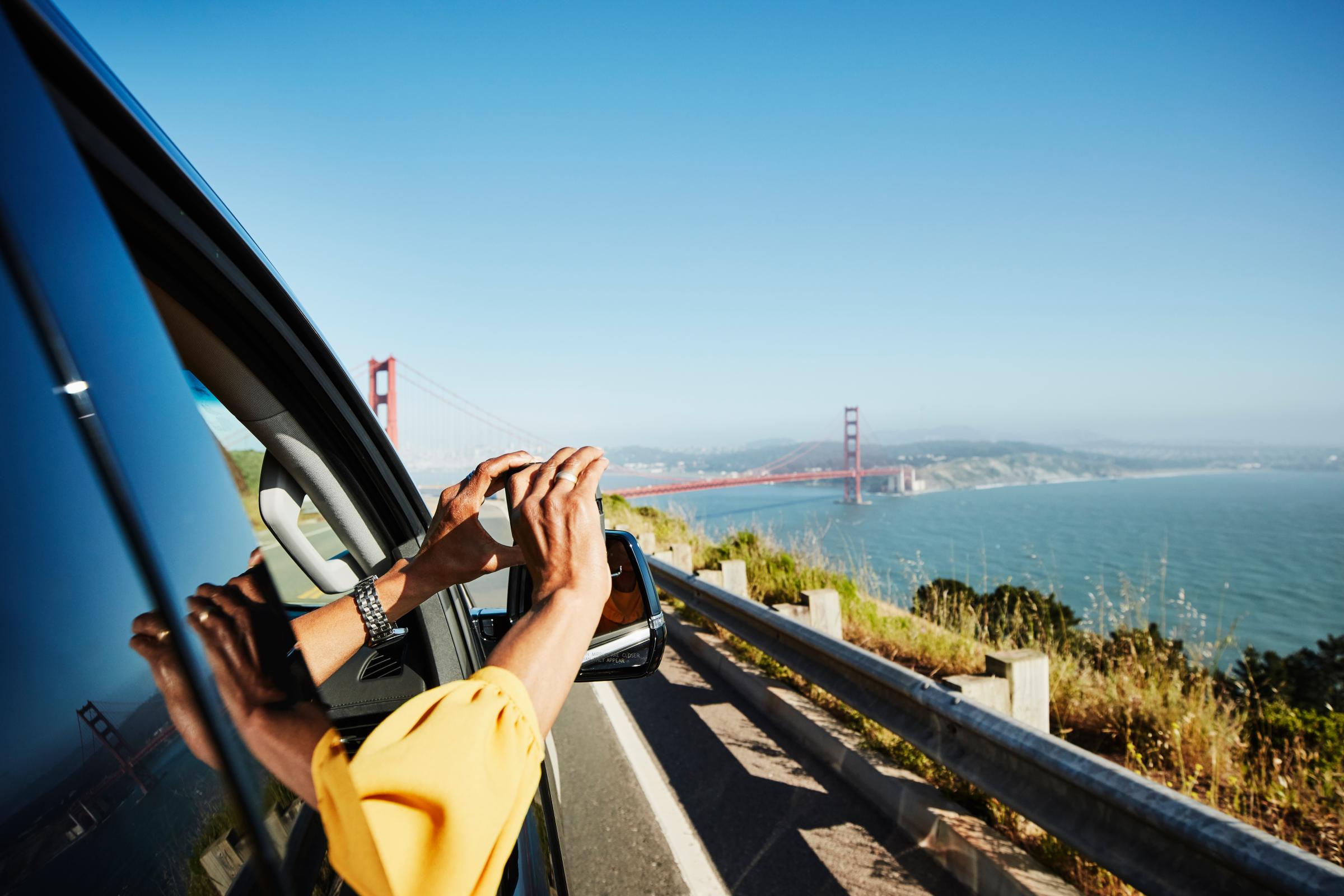
Get the right credit card
Having the best travel credit card for your trip can not only prevent foreign transaction fees, but also help you reap rewards and perks during your trip.
A few cards with travel benefits include the Chase Sapphire Reserve ($450 annual fee), which offers $300 toward travel costs, $100 toward Global Entry or TSA PreCheck, access to thousands of airport lounges, zero foreign transaction fees, and a 1:1 point transfer program towards top airline and hotel loyalty programs. The Bank of America Travel Rewards no-fee card lets you easily cash points to use toward airline tickets, baggage, hotel stays, car rentals and cruise packages. The card offers unlimited points, with up to 1.5 points for every $1 spent and 20,000 bonus points if you make at least $1,000 in purchases the first three months of opening your account.
When it comes to savings on hotels, the Starwood Preferred Guest Credit Card lets you earn five points for every dollar you spend at one of the company’s hotels, and two points at participating Marriott Rewards hotels.
Read More: What Is Travel Insurance? And How Much Is It?
2. Book travel far in advance
After all that preparation, you’re ready to book your trip around the world, which will likely be a round-the-world plane ticket, a journey by sea, or a combination of flights and ground transportation.
Below is a breakdown of how different travel options work:
Consider a round-the-world ticket
Round-the-world tickets allow you to buy a ticket and fly with various airlines under one alliance. But there are some regulations to keep in mind. Tickets are usually valid for up to one year, though flyers are required to start and end their trip in the same country through the following major alliances:
- Star Alliance (including Air Canada, Air China, Air New Zealand, Austrian, United, and Lufthansa) bases its round-the-world tickets on the number of miles, with levels of passes you can choose from based on mile increments. You can take up to 15 stopovers, but you’ll need to keep moving in the same direction as how you started your trip.
- OneWorld (including American Airlines , British Airways , Cathay Pacific , and Qantas) has two different round-the-world ticket options. Its Global Explorer ticket is a mile-based option with four different mile increments to choose from, while the One World Explorer is based on the number of continents you visit, with up to four segments (flights) you can take in each of the six continents the alliance flies into.
- Skyteam’s (including Delta, Air France, Korean Air, AeroMexico) round-the-world option requires a minimum of two stops and runs for a year, with the alliance even offering theme-based trips, like beach or history, to make planning your ticket a little easier.
Round-The-World tickets can cost around $2,000 , and Dave Grossman, author or MilesTalk: Live Your Wildest Travel Dreams Using Miles and Points , recommends checking whether it’s cheaper to book a round-the-world trip or individual legs by entering itinerary into Google Flights and comparing the overall price to those offered when building an itinerary out on the alliance websites.
You can also book round-the-world tickets through a travel agent or third-party sites like AirTreks of Flight Centre . These sites can be cheaper because they often pull together individual airline tickets based on the lowest fares to create a round-the-world itinerary.
However, round-the-world ticket travelers should note: missing one leg of your ticket could cancel the rest of your trip, making it best for travelers who feel comfortable planning out a lengthy trip well in advance.
Take a world cruise
If you’re looking to travel the world by sea, a world cruise can provide the flexibility to explore multiple continents, traveling from the U.S. to Europe for example, or to hone in on one continent. Itineraries vary by cruise, and world cruises can be great for families, retirees or those who can be at sea for around three months.
Sometimes, cruise lines will offer the option to book only a segment of world cruise, which can range from two weeks to a month. To book a segment, prospective travelers will also have to add a one-way trip to or from the start or end of their journey.
The costs of world cruises can be anywhere from $13,000 to upwards of $40,000 per person, as Cruise Critic points out.

Take a repositioning cruise
If you’re looking to travel the world for cheap, consider a repositioning cruise, which take place when ships need to relocate from one region to another. The cruises can cost up to $50 less per day than classic cruises and typically take place during shifting seasons like the fall and the spring. Cruise lines often sell repositioning tickets as one-way routes.
Consider train travel
If you plan on using trains throughout your world travel, there are a few options. For example, select companies like Great Rail Journeys now offer around the world rail journeys as well as a variety of rail passes.
Amtrak offers U.S. rail passes with 15-day ($459 for adults), 30-day ($689 for adults), and 45-day ($899 for adults) pass options that let you travel across eight segments (stops), 12 segments (stops), and 18 segments (stops).
Rail passes are a popular way to explore multiple stops within continents like Europe on the cheap. The Eurail Global Pass is the only rail pass that lets international travelers visit all of Europe , with unlimited travel offered in 28 countries. Eurail sells its global passes directly through its official website with a variety of prices and time options, starting at $600 per person for six days of travel within a month.
Those looking for the cheapest ways to travel, which can involve buses or ferries, can check out Rome2Rio , which lets you see all the transportation you can take between two locations and what route will be the cheapest. There are also lower-cost options like Berlinbus (a low cost bus operator in Germany) and the Student Agency Bus , which will give you discounted prices on coach lines in Europe. Swiss Federal Railways, often called SBB , also provides travelers with a wide variety of overnight train options, allowing you to save on overnight hotel fees to travel instead.
Know when to book
Unfortunately, there’s no magic set of days before your trip that will get you the best deal on flights. But travel seekers can keep an eye out for regular flight sales on social media, where airlines will often announce flash sales. And there are certain travel apps that will alert you when the price has gone down on flights you’re interested in.
3. Avoid hidden travel and communication fees
Once you’ve started your trip, there are tips and tricks to help you travel each destination across the world on a budget. Here are some ways to cut costs during your travel around the world:
Grab a city pass
City-pass offerings vary by location, but many will give you free or discounted admission to top attractions in a city, as well as fast-track options to cut lines. Some passes, like the Paris Pass , also include free transport throughout the city as well as admission to attractions. If you’re traveling in the U.S., you can check out the CityPASS network , which provides discounts on attractions across 12 North American cities.
Eliminate hidden hotel fees
To reduce hidden hotel fees (that is, after checking what hidden fees the hotel charges before you book), you can ask the hotel whether they can forego additional fees for amenities you don’t use, like the gym or in-room safe. The hotel may be able to remove these charges from your bill before you arrive.
If you’re staying at an all-inclusive property, you’ll want to look into the fine print and the “terms and conditions” of your stay. The reason for this is that some properties will charge more for items like champagne, high-end liquor or some activities. The easiest way to spot these is by keeping your eye out for asterisks in promotions and advertisements.
Communicate for free

Communicating with friends and family while traveling is important, but roaming charges and international calling fees can add up quickly.
Apps like WhatsApp, Viber and Skype, which allow messaging and calling for free over Wi-Fi if you have an Android phone. You can also grab a local SIM card, which you can purchase at airport vending machines and convenience stores. The Local SIM app can pinpoint the best local cellular carrier to grab your SIM card.
Choose Restaurants Wisely
While eating food from around the world is often one of the best parts of traveling, dining out for every meal can become expensive. To save some money: stay away from restaurants located near tourist attractions, which generally have higher prices and lower quality . Some travel experts recommend making lunch your biggest meal, when prices can be half that of dinner, according to CheapOAir.
Ask about free amenities on flights and at hotels
Some airlines and hotels have free perks available to guests who know to ask for them. On flights, for example, travelers can request everything from ukuleles on some Hawaiian Airlines flights to hot chocolate on Southwest Airlines. Some hotels also offer free amenities that range from night lights, chargers and curling irons at Kimpton Hotels to complimentary yoga sessions at select Hyatt properties.
Now, if all you need is travel inspiration, check out the 20 best and affordable places to travel in 2018 .
More Must-Reads from TIME
- The 100 Most Influential People in AI 2024
- Inside the Rise of Bitcoin-Powered Pools and Bathhouses
- How Nayib Bukele’s ‘Iron Fist’ Has Transformed El Salvador
- What Makes a Friendship Last Forever?
- Long COVID Looks Different in Kids
- Your Questions About Early Voting , Answered
- Column: Your Cynicism Isn’t Helping Anybody
- The 32 Most Anticipated Books of Fall 2024
Contact us at [email protected]
Unconventional language hacking tips from Benny the Irish polyglot; travelling the world to learn languages to fluency and beyond!
Looking for something? Use the search field below.
Home » Articles » How to travel the world for life (and work while you travel)
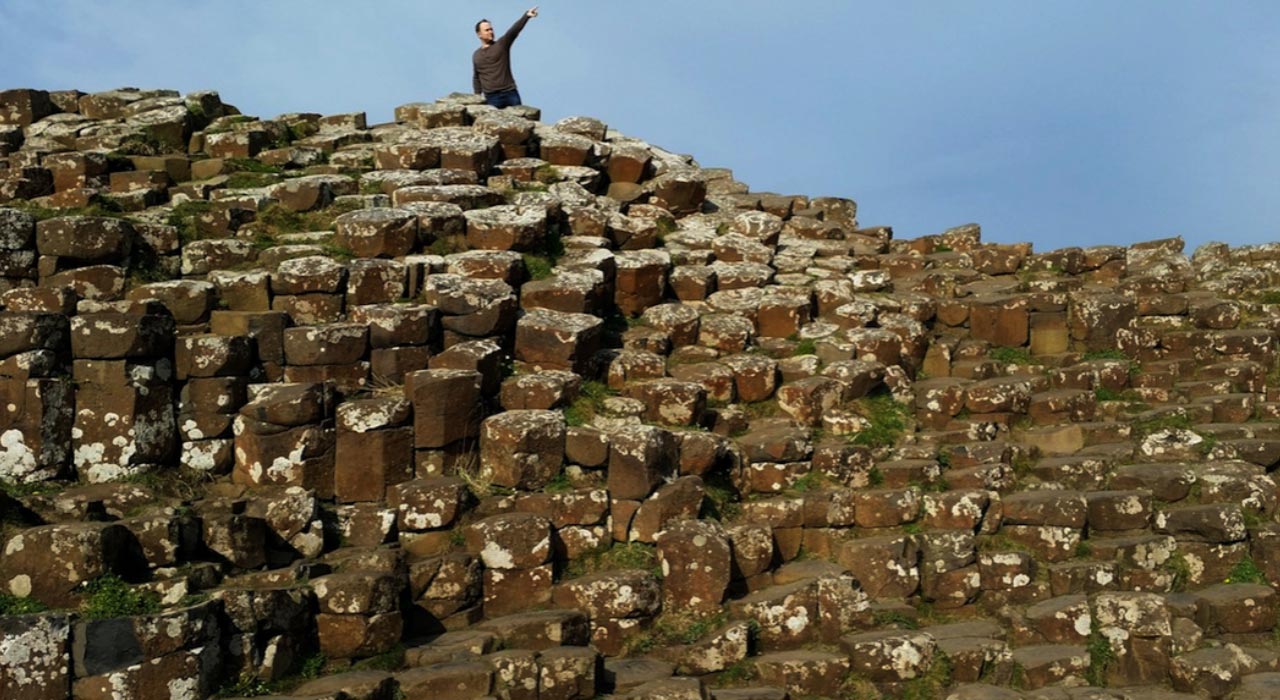
Full disclosure: This post contains affiliate links. ?
written by Benny Lewis
Reading time: 16 minutes
Published: Jul 10, 2014
Updated: Jun 29, 2023
How to travel the world for life (and work while you travel)
Today, July 10th , is my 32nd birthday! But it's also my 11 year travel anniversary .
Back in 2003 I left Ireland this day with no return ticket, and 132 months / 574 weeks / over 4,000 days later, I'm still on the road with no home or place I can call a base. Everything I own in the world weighs 23kg/50lb and comes with me.
On my 8 year travel anniversary, I wrote my site's most popular post ever by sharing the 29 most important life lessons I learned while travelling the world. And last year on my 10 year anniversary, I took those top-10 life lessons and presented them in a professionally edited video to summarize my travels visually.
This year, I'm doing something different and sharing my most practical tips on how you can travel the world (long-term) like I have, without winning the lottery (or having a mega savings). All throughout my travels – for over a decade – I've paid my way from money I earned while travelling .
So, how do I travel the world?
First, you don't need to save up money for years before you can travel the world. So many people make this mistake in mentality, and as a result they put off their travel goals for years unnecessarily. In fact, starting a travel lifestyle right now is well within the possibility of many people. I realize that there are exceptions, and some people might not want to travel the world long term like I do, so today I want to give you a heap of ideas for how to manage your own travel goals, whatever they may be.
I'll tackle four key points:
- How to lead a cheap travel lifestyle
- How to score cheap flights
- How to get the cheapest (and sometimes free) lodging
- How to work while you travel
If you're really serious about starting a travel lifestyle, I'll also share the best links for further reading on travel hacking. To get you started, you can't get better than checking out Nomadic Matt , since I learned a lot of the strategies I now use myself from his book How to travel the world on $50 a day .
(Oh yes – since it's my birthday, as a present request I'll ask that you share this post on your favourite social media site ( Facebook wall, retweet , Google+ share etc.) if you found it useful. Thanks! 🙂
How to travel the world for cheap

Before we discuss how to travel cheaper, it's very important to tackle how to live cheaper . This applies to you right now, even while you are settled.
If you have expensive habits now in your settled life, those habits will follow you into your travel lifestyle and rack up unnecessary expenses. It doesn't need to be this way.
So how expensive is your current life? Before you start travelling, track your actual expenses now and see where they go. Do you eat out a lot? Spend a lot on fuel costs? Does most of your money go to car or home insurance payments?
The good news is that if you start travelling for the long-term, you can live cheaper in part because you'll no longer need to spend hundreds of dollars of month to pay for your car, its insurance, its gas… and all the other major expenses that comes with leading a settled life. When you think about it, with all of these major expenses, leading a settled life is expensive!
But if you're finding that the biggest sticker shock comes from your lifestyle habits, then you'll have to make some tough choices.
Can you cut back on coffee, cigarettes and beer in exchange for extra cash you can put towards train tickets to the distant corners of the world?
Not everyone can, or wants to. But if you can save just ten dollars a day by living a cheaper lifestyle … just 10 dollars a day! … that's enough to pay the cost of your entire monthly rent for a hut on the beach in India or Thailand.
Think about that for a minute.
You might consider making other cheap lifestyle choices, like keeping a vegetarian diet and learning to cook from home. In a lot of countries, you can rely almost entirely on the use of public transport instead of a car, or get around on a bike. You can share accommodation costs by having room-mates. You can choose to be happy with the current technology and clothes that you have instead of updating them every few months.
These changes can increase the amount of your expendable cash dramatically .
After you learn to decrease the cost of your life in general, this will absolutely spill over into savings for your travel life. Then, I recommend you:
- Follow these 25 travel on the cheap tips from myself and Graham Hughes (who has visited every country on earth on a shoestring budget)
- Get rid of all your stuff. Use sites like Ebay , craigslist , gumtree , go to 2nd hand shops, the options are endless. There is no physical item that you actually can't live without unless it is the clothes on your back, food, or your means of earning money (for me, that's my laptop). This will both give you a financial boost and allow you to travel with all your posessions and not need to pay for storage or rent back home.
- Learn how to travel with everything you own carried along with you.
- When eating in a country, don't forget to try to get a place with a kitchen if you can (many youth hostels have one) and cook your meals. Otherwise, try to eat out at lunch time instead of dinner, since many places do lunch specials. Cities like Berlin and Paris have great “business lunch” options that offer several courses for just a few euro. Also, do indeed visit tourist sites, but leave the area when it's time to eat, since you'll be paying tourist rates. Find out in advance where the locals eat .
My number one biggest tip by far for how to travel for cheap is to learn the local language . This will save you heaps of money. I honestly feel this is one of the main reasons that I've been able to afford to travel so long – I've avoided paying the “English speaking tax”, and trust me, that tax exists pretty much everywhere that English is not the native language.
How to find cheap airfares

When your general lifestyle is less expensive, the next biggest expense people imagine is flights .
Flights, I'll admit, can cost thousands of dollars. But if you know where to look, there are several ways to make these dramatically cheaper than you think. Here are some rules to live by when checking out flights.
- Never go to the airline's own website. Instead, use “meta-search engines” while check and compare the rates for multiple travel sites at once. Also, try to book tickets around 3 months in advance, and choose flexible criteria – especially for the exact day of travel. See what the cheapest day is during the week or month around when you can fly. You can save hundreds of dollars by flying even a single day earlier or later! And try multiple searches on several of the following websites until you get the best results:
- www.skyscanner.com
- www.momondo.com
- www.kayak.com
- www.expedia.com
- www.hipmunk.com [This site ranks flights by “Agony”, taking inconvenience into account]
- For long-haul, cross continental flights, use flightfox.com. For $49 they can save hundreds or get you nice upgrades. Definitely worth it for many people. I got Lauren's return flight (from US to Spain to live with me for 3 months, then from Ireland to US for Christmas) for $450/€330, because of some strange rule where we added an extra leg to Canada 2 days after she landed in DC that she didn't even take. This website did the research for us in a way you wouldn't get on the above meta-searches.
- If your goal is to fly a lot, you can use “Round-the-world tickets”, which can cost about €3,000+ depending on the number of continents you want to visit. You can book through airtreks.com or flightcentre.com , but it's better if you can save miles through credit card sign-ups. This is more appropriate if you want to travel the world for a year and know where you want to go in advance. Using the above options and buying individual tickets still tends to work out cheaper most of the time though, and allows for more flexibility.
How to find cheap or free lodging
For those of you travelling very fast and moving around once every few days, travel will be more expensive, but you can reduce costs by getting last-minute prices on hotels on sites like laterooms.com , lastminute.com , hoteltonight.com , priceline.com , hotwire.com (name your price – you won't know where you'll stay until you've paid).
I can understand why people think long term travel is not possible for them, when they think it's a $1-200/night hotel stay, but the fact of the matter is that long term travellers do not tend to stay at hotels .
Instead, we:
- Stay for free with couchsurfing , servas (reference letter required, mostly US senior travellers), hospitality club , globalfreeloaders ( I use Couchsurfing a lot for its search feature to find language learning partners too )
- If you speak Esperanto, Pasportaservo.org is like the above sites with the only catch being that you communicate with your hosts in a language you can learn in a few weeks ! ( Here's how well my girlfriend did with just an hour a day for 6 weeks )
- Use wwoof.org (World Wide Opportunities on Organic Farms – about €20 per country membership – you work on a farm and get free accommodation, as well as the amazing experience)
- House-sit at housecarers.com , mindmyhouse.com , caretaker.org – This is more suited to stays of a month or longer; you get free accommodation in exchange for keeping an eye on pets, gardens, and other chores.
- Stay in youth hostels – as low as just $5/night in countries like Thailand, cheaper across Europe. Find your options on hostelworld.com or hostelbookers.com .
- For stays of a few days or a few weeks, I highly recommend staying in a serviced apartment. For mid-range budgets this is my go-to choice. Find your home away from home on 9flats.com , airbnb.com , homeaway.com , roomorama.com , or wimdu.com .
- Go camping! You are only paying for the space and can access water, electricity and other services as required in specialized campsites for a fraction of the cost of alternatives.
- Here is more on how I find accommodation while travelling
How to work while travelling
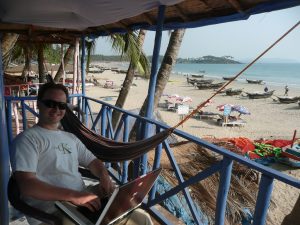
Most people think they have to save their pennies for months or years in advance until they have “enough” money to travel and live off of for a while. Unfortunately, this can only last you so long (unless you have won the lottery, in which case send a donation my way! 😛 ). The fact is that you can earn while on the road.
There are two ways to do this:
1) Get a job on-location
If you are an EU citizen you can do this automatically in any other countries in the EU. In most other situations though, you need to obtain a visa in advance.
As an Irish citizen, I got a J1-visa to work in America twice when I was a student (this was part of the 6 months of travel I did before my 11-years-non-stop travel, so I am actually approaching 12 years depending on how you count it…) I applied for this through the Irish organization USIT . They also offer Irish people working visas in many other countries. Your country may have an equivalent service.
In most other situations, you may have to see in advance what your options may be. If you are a student, your university most likely offers study abroad options, and definitely use your network of friends and colleagues to see if any of your fellow students have experience working abroad.
If you are looking for a job on your own, it is actually usually much easier to get hired by a company before you travel, and then have that company arrange the visa. This was a possibility for me the first time I went to the US, because I worked as a summer school teacher for a university, which was experienced in hiring foreigners, so I actually didn't need to arrange the working visa myself.
Finally, have a look at the country's embassy website and see what they recommend for working visas.
What work can you do on-location?

The easiest way by far that English speakers can work abroad is to do it as an English teacher . In countries were English teachers are in high demand, the school will arrange the visa and all logistics for you.
I've done lots of work as an ESL teacher myself, all based on an initial weekend affordable TEFL certificate I got from i-to-i , and then building upon my experience earned to get me higher paid jobs with time, eventually working for prominent schools like Berlitz and Wall Street Institute. I've also worked the following jobs on location, to give you an idea of your options (your options expand immensely if you learn the local language – don't forget to sign-up to my newsletter for a week long crash course if you aren't sure how):
- Youth hostel receptionist
- Store manager
- Photographer
- Basic office work
- Engineer (what my undergraduate degree was in – in this case I worked as an intern)
- Go Kart race controller
- Computer repair / on-site tech support
- Lots of English teaching
- On-site translator
You may find other work depending on your work skills and the opportunities available.
2) Get a location independent job

I worked on-location for my first years travel, but the catch was that my wages remained stagnant for all work other than teaching English, since I moved every few months and had to start over from scratch again.
That's why the future of many jobs (not all of course) is that they can be based online , and you can take them with you around the world!
Here are a few ideas:
- If you are good at languages, and willing to go through training for it, become a freelance location independent translator . I found my initial work on proz.com
- Teach your native language online . You can become a teacher on italki for instance and take your students with you wherever you go. My girlfriend did this for her first months of travel with me, and was working full-time with the work she got.
- Become an online coach – while I do this myself to help people expand the popularity of their websites and craft their language learning projects, there are many ways you can implement this. I once met someone who earned her living coaching people to give up smoking (her background was in psychology) over Skype!
- Write an e-book or sell a course online. My site fi3m premium supports this completely free blog (no spammy irrelevant advertising anywhere here – that's a really poor way to do anything but cover hosting costs) through a video course and resource database. I used to sell an e-book too. You can distribute this yourself if you put the time into creating a really high quality free site/Youtube channel/podcast or similar that sends traffic to it. You can also sell it directly on Amazon (self published) or through various other channels. Note that traditional publishing is not a good way to earn a living for most people – my book is an international best seller and this does not translate into money in my pocket because of traditional publishing logistics.
- Take a skill that you have and see if it works online. Here is a list of 64 ideas to work online depending on the skill. You can also see if job openings are available through various online advertising boards, or a job outsourcing site like Upwork .
What kind of working visa do I need?

The question of how you manage the logistics of working online is tricky because there are no international laws that govern such things. What many of us do is simply set ourselves up legally and officially in our home country – so we have a bank, and pay taxes there.
Then we stay in a country on a tourist visa – a grey line depending on where you go. I actually have a business visa while I'm in America right now, since its immigration tends to be the most strict about what I can and can't do here – this is despite the fact that I am not actually technically employed for any of my time here, but my book tour is business of sorts. In most countries though, a tourist visa is OK for online workers. (Disclaimer: Please don't take what I'm saying here as legal advice – I accept no responsibility if you run into issues!)
You aren't legally working in the eyes of many countries as you are not taking any money or employment from its citizens, only spending, as any tourist would. In case you are wondering, the “3 months” in my blog title comes from the 3 month visas I typically have as my limit in most places 😉
How do I set myself up as a business?
Whether you should operate as a freelancer or start your own business depends on too many factors for me to cover here, most important of which being the kind of work you'll be doing, but you can contact a lawyer in your home country if you are unsure.
You can receive payments directly to your bank account (when I was a freelance translator, my clients were European and bank transfers within Europe are free – working with American clients is a pain in the ass to be honest because they are one of the few first world countries that still insist on printing your money on dead trees, i.e. snail-mailing checks/cheques).
Another solution is to set up a pro or business paypal account, but keep in mind that you do pay fees for many transactions and withdrawals.
When everything is combined – working and travelling long-term is easier than you think
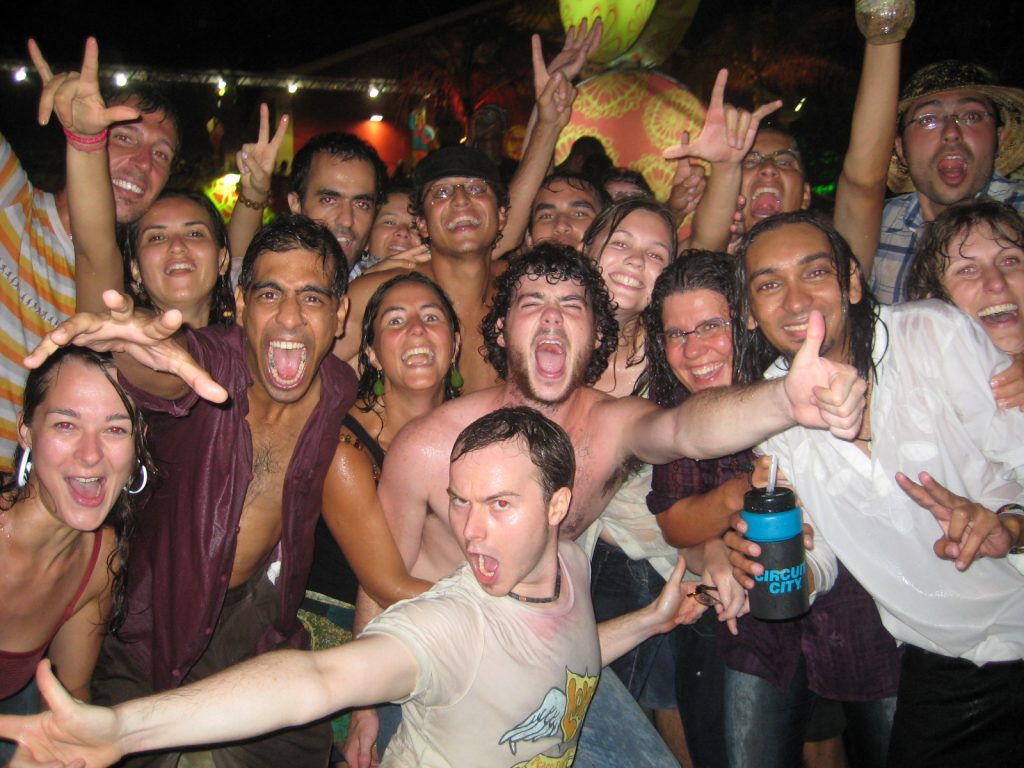
A really cool benefit of working location independently is that you can earn in a strong currency like the euro/dollar/pound and spend in a cheaper country where that money will take you really far. Leveraging currency differences is another thing that allows “technomads” to travel so extensively.
The combination of everything I've said in this post, namely
- SPENDING less through a minimalistic lifestyle
- Finding cheaper flights through a bit of research
- Finding cheaper or free accommodation, especially through slower travel
- Working online and earning in a stronger currency, while spending in a weaker one
Means that long-term travel is absolutely sustainable. I break some of these rules sometimes, like this year I'm travelling very fast on my book tour, and accommodation is much more expensive as a result, but flights are still cheap, we eat in as often as possible, we earn online, and we generally don't spend much otherwise.
This kind of fast-travel wouldn't be sustainable for me in the long-term, but we'll be back to three month stays later this year, and back to saving plenty for intensive periods like this.
Benny Lewis
Founder, Fluent in 3 Months
Fun-loving Irish guy, full-time globe trotter and international bestselling author. Benny believes the best approach to language learning is to speak from day one .
Speaks: Spanish, French, German, Italian, Portuguese, Esperanto, Mandarin Chinese, American Sign Language, Dutch, Irish
Have a 15-minute conversation in your new language after 90 days
- Type 2 Diabetes
- Heart Disease
- Digestive Health
- Multiple Sclerosis
- Diet & Nutrition
- Health Insurance
- Public Health
- Patient Rights
- Caregivers & Loved Ones
- End of Life Concerns
- Health News
- Thyroid Test Analyzer
- Doctor Discussion Guides
- Hemoglobin A1c Test Analyzer
- Lipid Test Analyzer
- Complete Blood Count (CBC) Analyzer
- What to Buy
- Editorial Process
- Meet Our Medical Expert Board
What Is Excessive Daytime Sleepiness?
A particularly dangerous condition while driving
- Medical Causes
- Non-Medical Causes
- Complications
- Improving Sleep Habits
- When to See a Provider
Excessive daytime sleepiness (EDS) is a symptom in which extreme sleepiness occurs during the day, even when you’ve gotten enough sleep at night. EDS is more than feeling groggy and fatigued; the need to sleep interferes with daily activities and increases the risk of health issues and traffic accidents.
Possible causes for EDS include sleep deprivation, sleep disorders, and medication use. Excessive daytime sleepiness affects up to 20% of the population.
This article will examine the medical and nonmedical causes of EDS, its symptoms and impact, and when to see a healthcare provider.
Maskot / Getty Images
Medical Causes of Excessive Daytime Sleepiness
The most common cause of EDS is not getting enough sleep. Medical causes for EDS can include the following conditions.
Hypersomnia Sleep Disorders
Hypersomnia sleep disorders happen when something goes wrong with parts of the brain or nervous system that signal the body to be asleep or alert.
Hypersomnia sleep disorders include:
- Kleine-Levin Syndrome
- Idiopathic hypersomnia (hypersomnia with no known cause)
Obstructive Sleep Apnea
People with obstructive sleep apnea experience lapses in breathing during sleep caused by throat muscles relaxing and blocking the airway. These pauses in breathing cause repeated waking during sleep. The resulting poor sleep quality can cause EDS.
Restless Leg Syndrome
Restless leg syndrome is a condition wherein a desire to move one’s legs at night, often accompanied by twitching or pricking sensations, makes falling and staying asleep difficult. Poor sleep quality from restless leg syndrome can lead to EDS.
Circadian Rhythm Sleep Disorders
Circadian rhythm sleep disorders occur when the body’s internal clock , which controls the sleep-wake cycle, isn't functioning properly. There are medical and nonmedical reasons circadian rhythm sleep disorders can occur, including:
- Irregular sleep-wake rhythm disorder (typically caused by neurodegenerative conditions such as Parkinson’s disease or Alzheimer’s disease )
- Non-24-hour sleep-wake rhythm disorder, which primarily affects those who are totally blind
Depression and Other Mental Health Conditions
Excessive daytime sleepiness is experienced by up to two-thirds of adults with major depressive disorder . It is also common in those with bipolar disorder and seasonal affective disorder .
Medications
A number of over-the-counter (OTC) and prescription medications can cause EDS. Some of the most common include:
- Antihistamines
- Prescription and nonprescription sleeping pills
- Benzodiazepines
- Anticonvulsants
- Psychotropic medications such as antipsychotics and some antidepressants
Other Medical Conditions
Other medical conditions less commonly associated with EDS include:
- Head trauma
- Inflammatory conditions
- Neurodegenerative conditions
Nonmedical Causes of Excessive Daytime Sleepiness
Nonmedical causes of EDS are typically ones that cause chronic lack of sleep. They include:
- Keeping an irregular schedule
- Waking up at night to use the bathroom
How Much Sleep Do You Need?
For optimal health, adults should get seven hours or more of sleep per night, while teenagers should get eight to 10 hours of sleep per night.
How to Stop and Manage EDS With Treatment
Treatment for EDS will depend on whether it's due to a primary sleep-related cause or a secondary cause, such as another medical or psychiatric condition or medication use. If another condition is causing your EDS, that condition will need to be identified and treated first.
Behavioral treatments such as naps, getting more exercise, and sleep hygiene measures are often used to treat EDS.
Depending on the cause of EDS, medications that promote wakefulness or other types of medication might also be used. For obstructive sleep apnea, devices such as a continuous positive airway pressure (CPAP) machine may be prescribed.
Effects and Impact of Excessive Daytime Sleepiness
One of the most dangerous impacts of EDS is the increased risk of work and traffic accidents. EDS increases reaction time, which in the case of driving can affect the ability to quickly correct a vehicle’s path when necessary.
Lack of sleep is particularly associated with crashes in which the driver is unable to keep the vehicle in its lane, especially on monotonous roads.
EDS and Vehicle Accidents
EDS is estimated to cause almost one-fifth of motor vehicle accidents in the United States.
Sleep deprivation affects the entire body. EDS is associated with an increased risk of:
- Heart disease and heart attacks
- A weakened immune system
- Hormone abnormalities
- Neurodegenerative diseases
- Mental health disorders
In addition to an increased risk of health issues and accidents, EDS can affect quality of life. It can make regulating emotions or moods difficult, limit work or school performance, and cause social or relationship problems.
How Do You Know You Have EDS Symptoms?
EDS is different from feeling tired. If you have EDS, you might regularly nap or fall asleep during the day, even though you've slept enough at night.
Chronic Fatigue Syndrome or Excessive Daytime Sleepiness?
EDS and chronic fatigue syndrome (CFS) can both cause daytime sleepiness; however, CFS is marked by a high degree of fatigue or exhaustion, especially after exertion. Not everyone with CFS experiences daytime sleepiness.
The two conditions can overlap, and about 20% of those with EDS disorders also meet diagnostic criteria for CFS.
Common Symptoms of EDS
In addition to daytime sleepiness, other common symptoms of EDS include:
- Trouble staying alert or focusing
- Experiencing memory problems
- Difficulty making decisions
- Slower reaction times
- Risk-taking behaviors
Getting an EDS Diagnosis
An EDS diagnosis usually begins with your healthcare provider giving you a physical exam and taking a history of your sleep habits and patterns and any medications you’re taking. You might also have your sleep assessed through medical questionnaires to determine how well you're sleeping.
You might also be asked to keep a sleep log or diary and get referred to a sleep specialist for further testing and evaluation.
Sleep Habits With Excessive Daytime Sleepiness
Practicing good sleep hygiene and healthy sleep habits can help improve sleep quantity and quality. Good sleep hygiene practices include:
- Going to bed and getting up at the same time, even on weekends
- Keeping your bedroom quiet, dark, and at a comfortable temperature
- Removing electronic devices, such as TVs and smartphones, from the bedroom
- Avoiding large meals, caffeine, and alcohol before bed
- Getting enough physical activity during the day so you can fall asleep more easily
When to See a Healthcare Provider About Sleep
You should contact a healthcare provider if EDS is affecting your daily life, you are constantly tired or fall asleep during the day, or you think you might have an underlying health condition that’s causing your excessive sleepiness.
Excessive daytime sleepiness can interfere with your daily life and increase your risk of accidents and certain health conditions. Because EDS can have a number of possible causes, you should see a healthcare provider if you are experiencing excessive sleepiness during the day.
A healthcare provider can help determine what's causing your EDS, work with you on steps toward getting better sleep, and prescribe medications and other treatments if necessary.
Gandhi KD, Mansukhani MP, Silber MH, Kolla BP. Excessive daytime sleepiness . Mayo Clinic Proceedings . 2021;96(5):1288-1301. doi:10.1016/j.mayocp.2020.08.033
Carlton R, Lunacsek O, Regan T, Carroll CA. Healthcare costs among patients with excessive sleepiness associated with obstructive sleep apnea, shift work disorder, or narcolepsy . Am Health Drug Benefits . 2014;7(6):334-340.
Bollu PC, Manjamalai S, Thakkar M, Sahota P. Hypersomnia . Mo Med. 2018;115(1):85-91.
Hypersomnia Foundation. What are hypersomnia sleep disorders?
Sleep Foundation. Sleep apnea .
Sleep Foundation. Restless legs syndrome (RLS) .
Sleep Foundation. Circadian rhythm sleep disorders: types and treatments .
American Academy of Sleep Medicine. Circadian rhythm sleep disorders .
American Family Physician. Excessive daytime sleepiness .
Sleep Foundation. Managing excessive daytime sleepiness .
American Academy of Sleep Medicine. Healthy sleep .
Sleep Foundation. Treatment for excessive sleepiness.
Philip P. Excessive daytime sleepiness versus sleepiness at the wheel, the need to differentiate global from situational sleepiness to better predict sleep-related accidents . Sleep. 2023;46(11):zsad231. doi:10.1093/sleep/zsad231
Sleep Foundation. Sleep deprivation: symptoms, treatments, & effects .
Goodman MO, Dashti HS, Lane JM, et al. Causal association between subtypes of excessive daytime sleepiness and risk of cardiovascular diseases . JAHA . 2023;12(24):e030568. doi:10.1161/JAHA.122.030568
NHS. Excessive daytime sleepiness (hypersomnia).
Hypersomnia Foundation. Ask the doctor: IH, CFS and fibromyalgia—How do they differ?
Centers for Disease Control and Prevention. Tips for better sleep.
By Cathy Nelson Nelson is a freelance writer specializing in health, wellness, and fitness for more than two decades.
National Geographic content straight to your inbox—sign up for our popular newsletters here

How to plan a trip around the world
Making the fantasy of a global odyssey an achievable reality is not as impossible as it might seem.
Combining a series of once-in-a-lifetime experiences into a single around-the-world trip can feel like the ultimate expression of luxury travel. It can be a daunting prospect though, with many contending factors to consider. Here's how to start planning the ultimate round-the-world trip.
1. Take to the sky
Air travel is, predictably, the simplest way to traverse the globe. Start by purchasing an around-the-world plane ticket through an airline alliance — coalitions of different airlines which let you pay for all of your flights in a single transaction. The alliance offers regional passes which might work better should you want to devote the bulk of your time to one or two continents.
There are three main players: Star Alliance, OneWorld and Skyteam; the latter, however, has suspended sales of RTW tickets. Star Alliance is a confederation of 26 airlines covering 1,200 airports in 98% of the world’s nations, while OneWorld’s 13 airlines serve 1,000 destinations across almost as many countries.
The small print varies, but fliers must always keep to one global direction, east or west (the latter better suits your circadian rhythm), with no backtracking; must only cross the Atlantic and Pacific oceans once each; must start and finish in the same country; and must travel for a period between 10 days and one year.
Convenience is a benefit here, allowing you to minimise paperwork. It’s worth noting that some countries, such as China, also require proof of an outbound air ticket before issuing visas.
How to do it: Star Alliance offers a 133-day itinerary from London via Istanbul, Dubai, Bangkok, Sydney, Los Angeles and New York from £2,580 per person.
2. Ride the rails
A century ago, taking extended rail journeys was one of the only means of long-distance travel. Today, trains are a great option for travellers looking to minimise their carbon footprint and take a slower, more measured route.
Recapturing the romance of the past, around-the-world specialists Travel Nation can tailor-make odysseys involving separate train journeys. Vietnam’s Reunification Express, an Outback crossing aboard the Australian Ghan and a ride on the Rocky Mountaineer in Canada can all feature.
How to do it: Travel Nation ’s 74-night, rail-focused global tour costs from £17,760 per person, including flights, trains, accommodation, most meals and some excursions.
3. Go Private
For those who truly want to travel in style, it’s possible to circumnavigate the globe by private jet through National Geographic Expeditions. These trips are based around epic itineraries whose remarkable destinations are brought to life by a experts and groundbreaking researchers in various fields, who most travellers never get to meet.
On the 24-day Around the World by Private Jet expedition, you can visit 10 UNESCO World Heritage sites. Among the trip’s standouts are Easter Island’s Moai statues, Angkor’s jungle-flanked temple complexes, rock-carved Petra and a Serengeti safari. Departing from Washington, DC, up to 75 passengers will travel VIP-style in a customised Boeing 757, bedding down throughout the adventure in five-star hotels or lodges.
How to do it: National Geographic Expeditions ’ 23-night Around the World by Private Jet trip starts from £77,100 per person, all-inclusive, including medical evacuation insurance. Departures on 10 March, 29 October and 28 December 2024.

4. Head overland
Travellers who don’t mind hitting the open road can try Oasis Overland, a tour company specialising in overland travel. Its longest offering is a 293-day trip from the UK to Cairo via an anticlockwise loop along much of the African coast, plus Victoria Falls and Zanzibar. The slew of highlights include the Sahara desert, the Giza Pyramids and East Africa’s wildlife-rich plains.
The 16 (or fewer) group members will ride in one of Oasis Overland’s bright yellow trucks, built for traversing bumpy roads while offering as much comfort as possible. Nights are almost exclusively spent camping, and everyone is expected to contribute by pitching tents or cooking dinners.
You could also combine trips by flying from Cairo to Istanbul and then joining another overland tour all the way to Singapore, for example.
How to do it: Oasis Overland ’s 292-night UK to Cairo expedition starts from £9,495 per person, including all transport (except flights from the UK to Gibraltar or Malaga) and a selection of excursions.
5. Do it yourself
Arranging everything yourself is an option — most easily accomplished by purchasing multi-destination flights through a comparison website such as kiwi.com or Skyscanner.
A big upside to this is that you can work out something closely aligned to your specific needs; it’ll require a fair bit of time, though, and you’ll lose out in terms of flexibility — changing dates can be tricky — and cancellation cover.
It’s usually more convenient to aim for large airport hubs — the likes of Bangkok, Dallas, Dubai, Heathrow, Paris and Singapore — as the many competing services provide more options. A typical around-the-world ticket will involve something along the lines of London — Istanbul — Bangkok — Singapore — Sydney — Los Angeles — New York — London. From these hubs, you’ll be well placed to add in more obscure destinations in between.
It’s also worth bearing in mind that you don’t have to fly between each stage. For instance, it’s possible to travel from London to Istanbul by train, lowering your carbon footprint in the process. Or, rather than flying from Bangkok to Singapore, you could get a boat from the Thai capital to Koh Samui and continue from there instead. A reliable tool for establishing train, bus, boat or taxi costs is the website Rome2Rio, and it’s worth investigating the likes of Amtrak rail passes in the US, Eurail Passes for European trains or Greyhound coach tickets covering Australia’s east coast.
Accommodation is something to decide on in advance. Be sure to have all hotel bookings locked in place well ahead of time. Hostels are a good bet, especially if you’re travelling solo or planning an ad-hoc approach during each stage of the trip, but can be lacking in privacy and comforts. House or apartment rentals can be much more comfortable and convenient, particularly for longer stays.
How to do it: A sample 147-day itinerary from London via Istanbul, Dubai, Bangkok, Sydney, Los Angeles and New York from kiwi.com starts at £2,189 per person, including checked luggage.

6. Enlist a pro
One of the best ways to arrange an air-based around-the-world itinerary is by booking with a specialist agent or operator such as Trailfinders, Travel Nation or AirTreks. This can cut out a lot of organisational stress, while also enabling you to take advantage of these companies’ many years of experience. These firms often have access to special deals and aren’t constrained to particular airlines or alliances, allowing them to further improve the offerings to their clients.
The AirTreks website even has a trip planner tool listing a series of suggested activities, interests and attractions such as hiking, beaches, meditation or family travel, providing an extra level of choice at the planning stage.
If you’re interested in earning air miles, specify this to the agent so that they can concentrate on finding flights that qualify. Agents will also be able to suggest tempting additional stops — Taiwan, maybe, or a pause in Oman — which can be a great way of adding an extra bit of excitement to burgeoning itineraries.
Finally, a specialist company can also take care of — or advise on — vaccinations (such as malaria), and certification and visas you’ll need, saving you plenty of legwork.
How to do it: AirTrek s’ nine-stop ticket from London via Paris, Florence, Venice, Athens, Singapore, Sydney, Auckland and Los Angeles costs from £1,325 to £1,770.
7. Learn to sail
Land ahoy! You might just get to utter those words by signing up for a unique sailing adventure with London-based operator Another World Adventures, which can arrange for you to join a classic, square-rigged tall ship for 90 days as it makes its way around the world on a 455-day voyage. Once on board, you’ll learn how to trim the sails, haul mizzen spinnakers and lean on trade winds to cross the tropics. No experience is required, and participants will become part of a tight-knit crew and make friends for life.
It doesn’t matter at which point on its itinerary the ship happens to be, as it’s entirely possible to join subsequent legs. Setting sail from Bali on 6 November 2023, leg three sees the ship call at the Indian Ocean islands of Rodrigues and Reunion before arriving in Cape Town on 6 February. Beginning one day later, the fourth and final stage is via Namibia, the British overseas territory of St Helena, several Caribbean islands and, on 13 July, Nova Scotia in Canada.
If you’d prefer to wait and tackle the whole trip — the other two legs are Nova Scotia to Tahiti, and Tahiti to Bali — then Another World Adventures (which also offers other, similar experiences) expects it to start in 2025.
How to do it: Another World Adventures offers 90 nights, full board, from £13,600 per person, including transport, port fees and instruction.

8. Cruise along
Ever more around-the-world voyages are being offered by cruise lines. To join one, you’ll need one important thing: lots of spare time. The circular itineraries are mostly more than 100 days in length, with Royal Caribbean’s Ultimate World Cruise maxing out at 274 nights via seven continents and around 150 stops. These kinds of journeys really fit the ‘trip of a lifetime’ tag, running up to £100,000 per person.
Notably, 2023 marks a century since the world’s first continuous passenger cruise ship completed its pioneering journey. Chartered by the American Express Company, Cunard’s SS Laconia arrived back in New York City after completing a monumental six-month sailing via Japan, Singapore, India and Egypt.
They also sell out quicker than almost any other cruise, partly due to having a limited number of departures. Holland America Line, for example, opened bookings this summer on its new 2025 Grand World Voyage. Departing from Fort Lauderdale in Florida, this is a six-continent, 124-day round-trip which transits the Panama Canal before visiting Callao (for excursions to Machu Picchu), Easter Island, Tahiti, the Great Barrier Reef, the Seychelles, Cape Town, Kenya, Jordan and Barcelona among 46 stops.
How to do it: Holland America Line’s 123-night Grand World Voyage starts from £19,900 per person, full board, including complimentary airport transfers, a $500 (£400) air credit and up to £6,700 per person in onboard spending credits if booked by 3 June 2024.
9. Hop aboard a cargo ship
A rather more adventurous way of sailing the seas is aboard a cargo ship or freighter cruise. Carrying large containers of clothes, electrical equipment, foods and most other things between the world’s major ports, some of these allot space for four to 12 passengers.
Single, twin or double cabins are the norm, usually with sea-facing windows as well as a sitting area, a desk, a shower and a toilet. A few boats come with a pool, but most are very simple — they’re built for work, not pleasure, after all — and you certainly won’t find a spa or casino (though playing cards with the crew members isn't unheard of). All meals are provided in the on-board canteen.
The major appeal is the sense of serenity — watching the ocean drift by and having time to gather your thoughts or write that novel you’ve always planned.
This can also be an amazing way to tick off some hard-to-reach places. Take freighters travelling to Singapore from New Zealand; be it for fuel and supplies or to make a drop-off, these stop at numerous Pacific islands en route, occasionally for a couple of days. That said, some port calls are too quick for guests to go ashore.
Note that good health and unaided mobility — due to steep gangways and lots of stairs — are mandatory, and it’s not suited for children or elderly travellers.
How to do it: Cargo Ship Voyages offers a cargo ship crossing from Rotterdam to Cuba (estimated at 16 nights) from £1,880 per person, which includes all meals.
Related Topics
- LUXURY TRAVEL
- TRAVEL AND ADVENTURE
You May Also Like

20 of the coolest travel adventures for 2024

How new flights to Akureyri are opening up northern Iceland
Become a subscriber and support our award-winning editorial features, videos, photography, and much more..
For as little as $2/mo.

How to build the perfect travel capsule wardrobe

The perfect wrinkle-free wardrobe to pack for your next trip
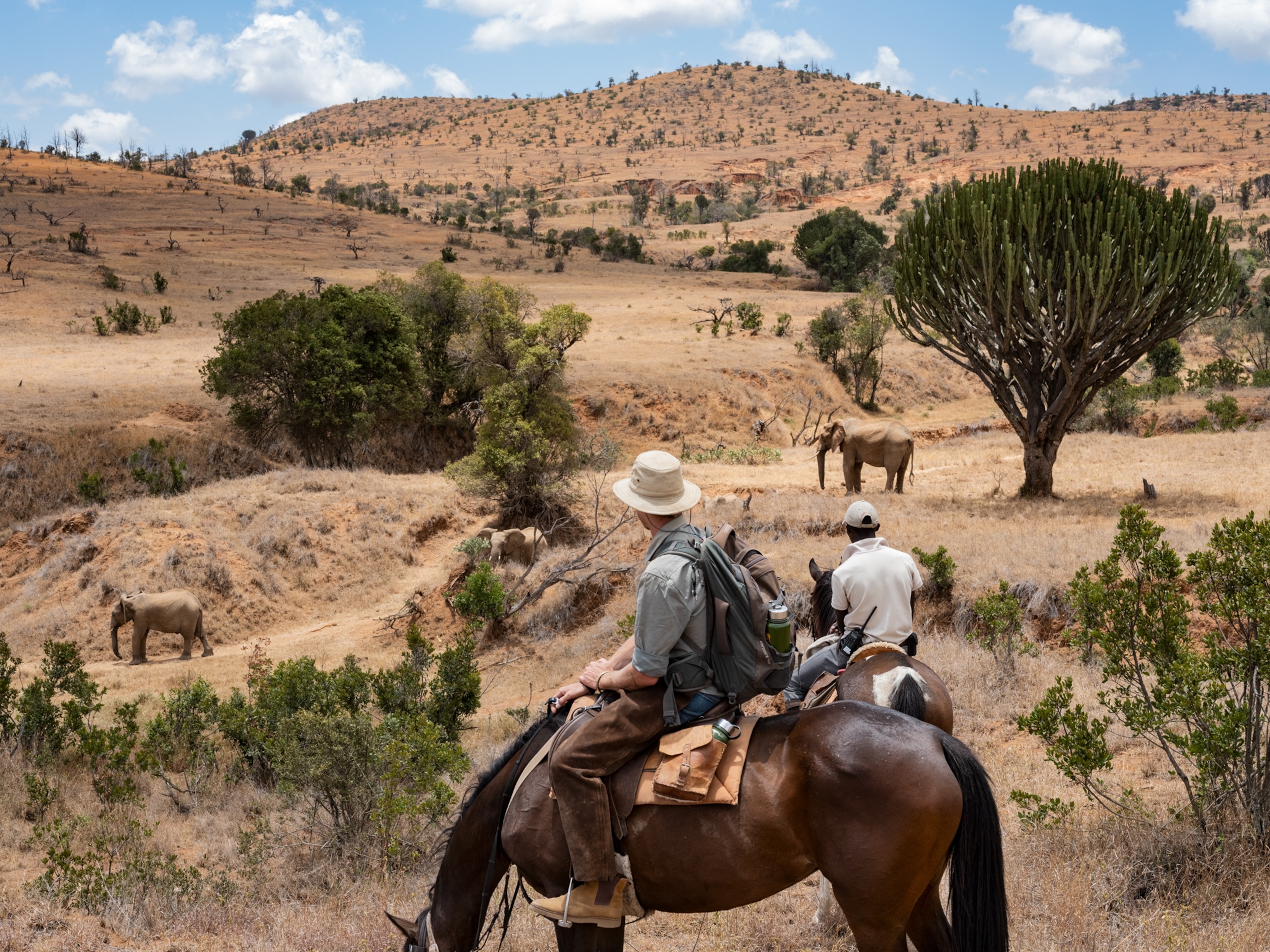
See Kenya’s wildlife in a different light: on horseback

9 new cruise itineraries for 2024

AI can help you plan your next trip—if you know how to ask.
- Environment
- Paid Content
History & Culture
- History & Culture
- Mind, Body, Wonder
- Terms of Use
- Privacy Policy
- Your US State Privacy Rights
- Children's Online Privacy Policy
- Interest-Based Ads
- About Nielsen Measurement
- Do Not Sell or Share My Personal Information
- Nat Geo Home
- Attend a Live Event
- Book a Trip
- Inspire Your Kids
- Shop Nat Geo
- Visit the D.C. Museum
- Learn About Our Impact
- Support Our Mission
- Advertise With Us
- Customer Service
- Renew Subscription
- Manage Your Subscription
- Work at Nat Geo
- Sign Up for Our Newsletters
- Contribute to Protect the Planet
Copyright © 1996-2015 National Geographic Society Copyright © 2015-2024 National Geographic Partners, LLC. All rights reserved
- Meet the Team
- Our Manifesto
- Work with Us
- Budget Travel
- Personal Development
- Work & Travel
- United Kingdom
- More of Europe
- Philippines
- More of Southeast Asia
- More of South America
- More of Central America
- South Korea
- More of Asia
- More of North America
- New Zealand
- Pacific Islands
- More of Oceania
- South Africa
- More of Africa
- More of the Middle East
- Travel Essentials
- Travel Gear
Home » Budget Travel » How Much Does it Cost to Travel the World for a Year or More? (2024)
How Much Does it Cost to Travel the World for a Year or More? (2024)
When that dastardly, dangerously, delightful thought first worms its way into your head: let’s travel around the world, leave everything behind and just go…
I’m a travel blogger and a dirtbag at heart, so of course, I’m happy for you. But then you’re asking, well, how much does a round the world trip cost?
The thing is, a year of travelling can be done for as little and as much money as you want .
At one extreme, you and your hundred thousand dollars can stay in luxury hotels and swan through secluded villas. In which case, why are you reading a budget backpacking guide? Leave us dirtbags alone!
At the other end of the spectrum, you can work, hitchhike, dumpster dive, and camp your way across a continent or two for a year. You’ll spend next to nothing and gain an infinitude of life experience.
Somewhere in between are those that just want to take a year off and experience budget travel. Your trip has an end date, so at some point you’ll go back to work; you’re not made of money! You’re ok roughing it a little.
The estimates for travelling around the world for one year range from $10,000 – $20,000 depending on how grungy your travel habits are – and where in the world you go.
So hush to those luxury-influencer-travellers – this one’s for the broke backpackers!
I’ve got budget estimates, tricks, tips, and just a smattering of ethics to answer the question: how much does it cost to travel the world?
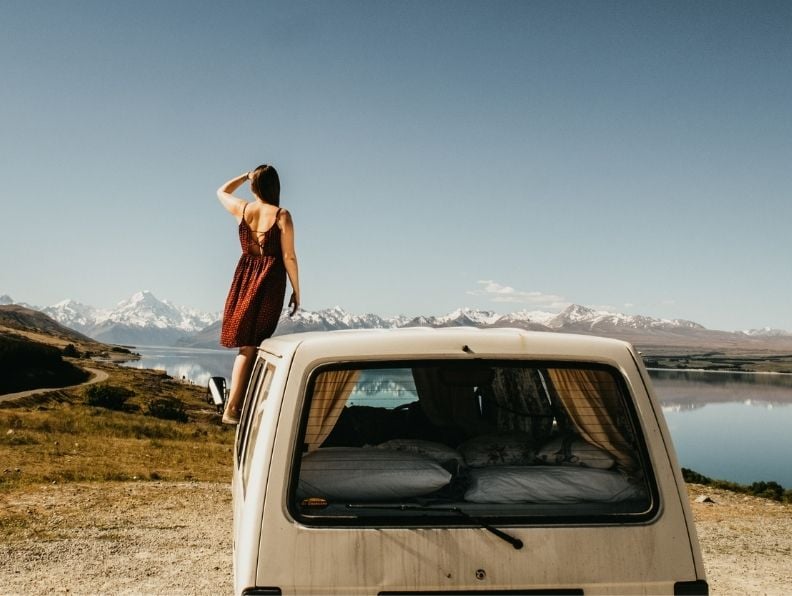
The Broke Backpacker is supported by you . Clicking through our links may earn us a small affiliate commission, and that's what allows us to keep producing free content 🙂 Learn more .
Budget Tricks 101 for Travelling Around the World
Putting a hard number on a round the world trip, working and volunteering around the world, travel around the world responsibly, faqs about how much does it cost to travel the world, final thoughts on how much does it cost to travel the world.
- Buy Us a Coffee!
There is just one phrase that defines all budget travel: go local. If you say this fast enough it kind of sounds like go loco which is a pretty accurate motto for the budget travel feels sometimes!
But the answer to the question ‘ how much does it cost to travel the world? ’ depends on which sandbox you’re playing in. Budget travel rules change a bit depending on whether you’re travelling through India or Germany. The India sandbox has a lower cost of living which means the frugal round the world (RTW) trip can be fairly comfortable. The German sandbox requires a larger amount of savings for the same quality of living; or a sneaky side hustle; or a commitment to utter dirtbaggery.
Luckily, all of us on the Broke Backpacker team have thought long and hard about which sandboxes to go play in. (Don’t worry I’m retiring the metaphor now).
Picking a country that’s cheaper to travel in will mean you can travel comfortably for longer periods of time.
10 Best Cheap Places to Travel to
13 Cheapest Countries in Europe
Still, go local and life becomes cheaper – and more ethical if you ask me. Don’t go for the imported beer and American Spirit tobacco in India – go for Tuborg beer and bidis instead of cigarettes. Or better yet, just give up smoking. It’s a bullshit habit that grabs you by the throat and says, baby please don’t quit me, we had such good times remember?
I digress, probably because I’m trying to quit smoking. Pro tip: stop smoking cigarettes; start saving money. Boom, thank me later ratbags.

Whether you’re planning to slum it around South Asia for a year or dabble in a cheap trip across Europe , there are some common budget tricks and tips to keep your pockets full of coins. Remember, there are 4 major expenses on the road:
- Accommodation
If you can score parts of your expense list for free (like if you have accommodation included with your work) then you can keep your daily budget to a minimum.
These are my tried and true methods for keeping my 4 major costs on the road down.

Do You Want to Travel FOREVER??
Pop your email in below to get a FREE copy of ‘How to Travel the World on $10 a Day!’.
Cheap Sleeps While Travelling
Budget travel and the cost of travel for one year is a spectrum. As I’ve said, you’ve got the pure dirtbaggery at one end and the glitzy, freaking fancy at the other.
So reducing your accommodation costs are gonna look a little different depending on how you want to spend your year travelling.
I can assume – if you’re reading this – you’re happy to say (politely) eat a fat one to hotels and fancy travelling . In which case, you’ll be looking at the hostel life ! Hostels are a pretty great way to experience travelling life as well as save some cash while you’re on the road.
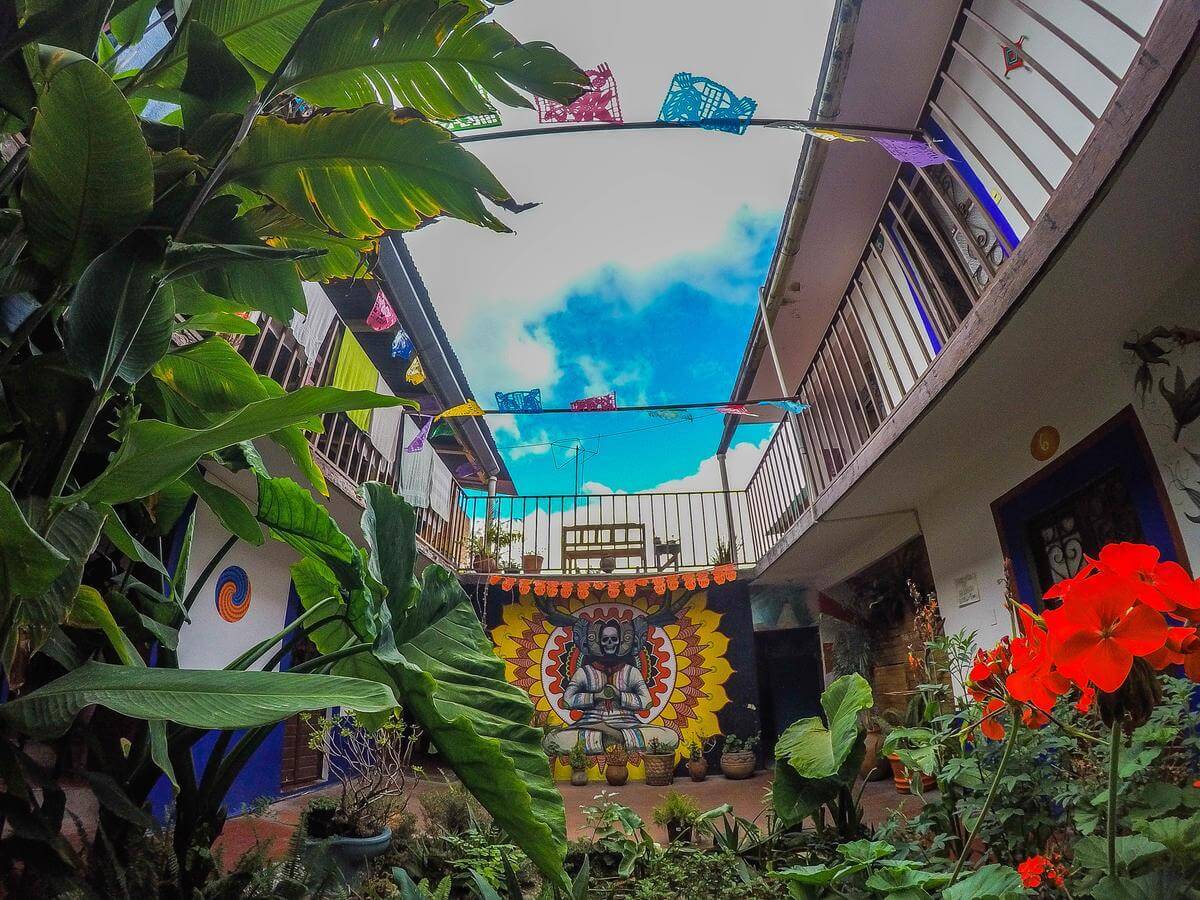
But if you wanna get cheaper than hostels, rest assured there are options. You can always get some good camping gear and camp your way across the world. Investing in good camping gear before you travel the world for a year opens up a range of dope, free camping spots.
Or you can lean into the great networks of Couchsurfing, BeWelcome, or Trustroots. Putting your trust and faith into a stranger in a country to host you for the night can lead to the most epic experiences. Because it’s more than a free sleep: it’s an invitation into someone’s home and, by extension, way of life.
Finally, you can always try and score free accommodation with your work. Many seasonal jobs that you pick up along the road will offer free or discounted accommodation. If you can’t wrangle this out of your employer, you can also try housesitting .
Airbnb and the Travel Blues
At some point during your RTW trip, you’ll probably hit some travel blues . Maybe that one guy at the hostel has taken it upon himself to tell you about the time he almost made it as a professional snowboarder yet again, or maybe you’re trying to quit cigarettes for the third time. Whatever the reason is, you need a break.
That’s where Airbnb shines. In some offbeat travel destinations where there are no hostels, you will lean on Airbnb and Couchsurfing networks exclusively. But even where you won’t need Airbnb so much, it can be a great alternative. There are low to mid-range properties that are a little classier – and a lot more private – than hostels. They might be just what you need after a hectic few months on the road.

However you make it work, squashing the cost of your nightly sleeps greatly reduces your daily budget. If you have $10 a day to spend, expect that accommodation can quickly add up to half or more of your budget – even in cheap countries.
Aiming for free accommodation, and a tonne more memories, is the way to go!
Cheap Eats While Travelling
Generally speaking, if you’re in a country that’s cheap to travel to: eat street food .
If you’re in a country that’s more expensive: cook for yourself .
If you want to go full dirtbag: dumpster dive .
I could go on and on about how good food made me question the Universe about God again… I have had some truly divine meals while travelling. And no, they haven’t been had in the fancy restaurants! In fact, done right, food can be the cheapest part of your whole travelling day.
You could venture deep into the bowels of a marketplace in Mexico, pet chicken in tow (I was going through something – don’t ask), and score a plate of tacos for $1 . You bite into this magical, mystery meaty, pico de gallo topped taco of goodness. Goddddddddamn, if that isn’t the best dollar you’ve ever spent.
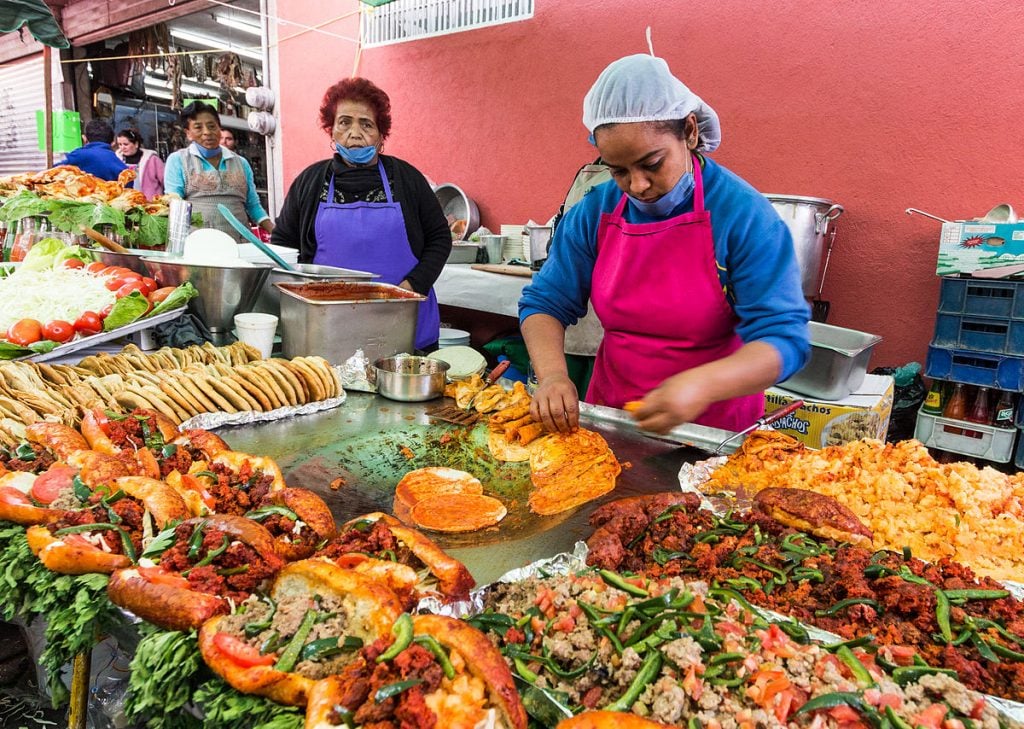
Of course, if you find yourself on your Europe leg of the RTW trip, street food might not be an option. So it’ll end up being cheaper to cook for yourself. Although tapas, anyone? They can be cheap and delicious!
There’s also something satisfying about learning a few tricks and tips to show off the next time you get to a hostel kitchen.
Pro tip: cover your potatoes in alfoil, slather them in butter and herbs, bake. Cheap, and damn delicious.
Want to save money on accommodation?
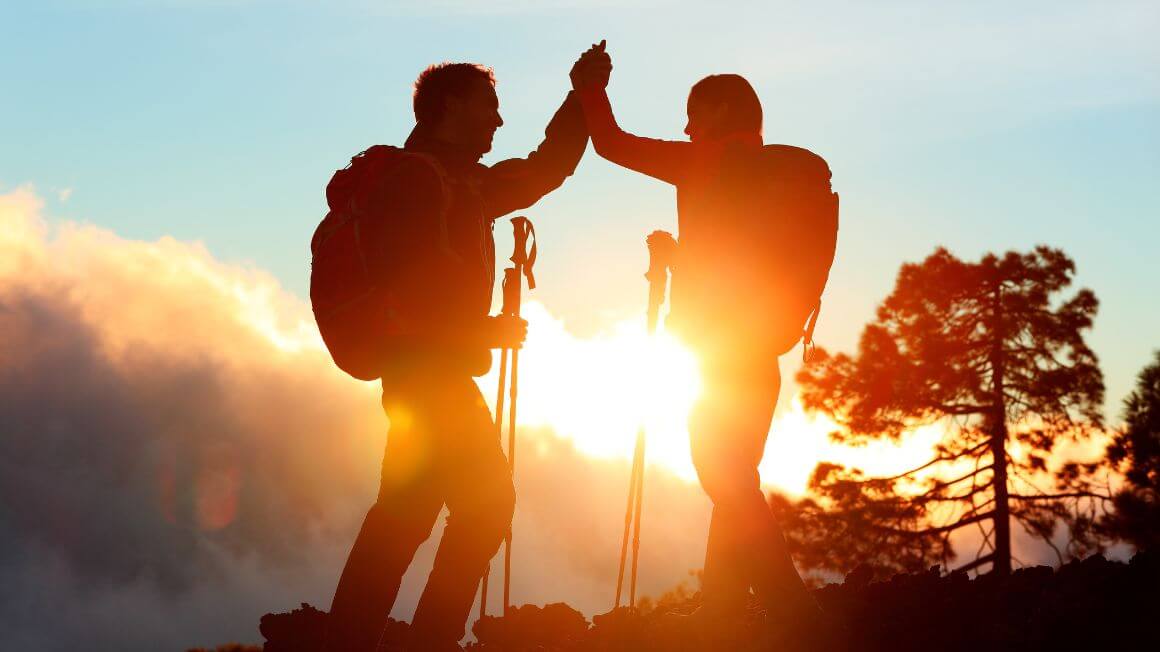
We got you. For reals.
Cheap Transport While Travelling
Remember: go local! If the bus is crammed from window to windscreen with local passengers, chances are it’s the cheapest transport in town.
It’s practically a backpacker rite of passage to let themselves be absorbed by the madness of squeezing 35 passengers into a 10 seater bus that careens its way through Kathmandu! Now, on the one hand, sometimes you’re not going to want to share your seat with a chicken, an elderly woman, two backpackers, and a stereo.
Sometimes, you’ll book the air-conditioned bus and it might even come on time.
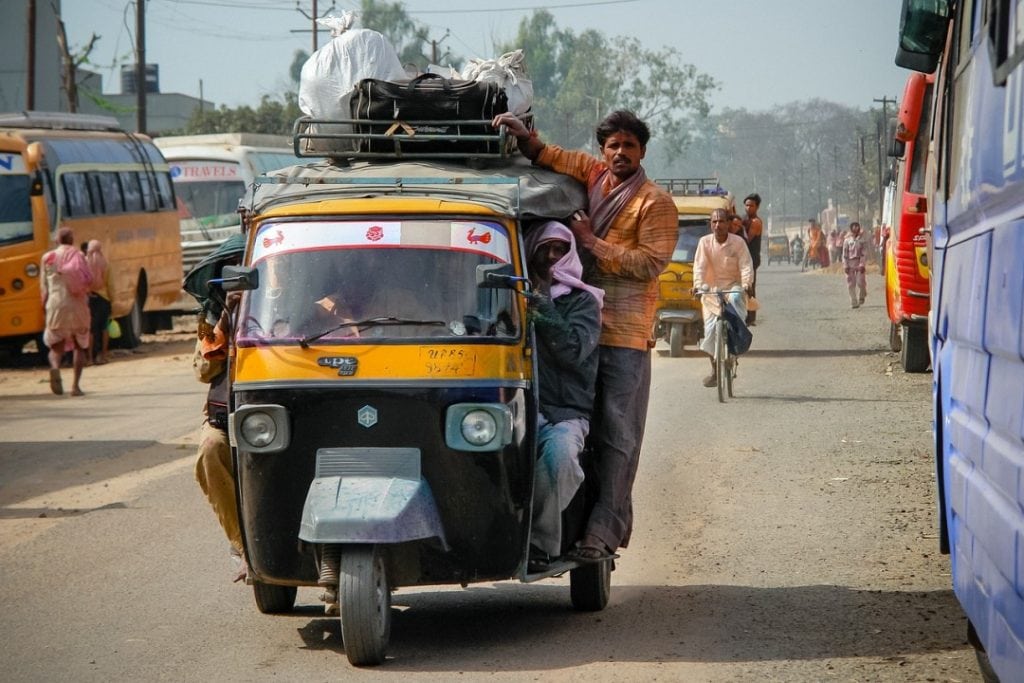
And remember that walking is free! If you can’t walk, then you sure can hitchhike . And if you can’t hitchhike, you can haggle for the price of the chicken bus.
I think the biggest factor that determines your transport cost though is how committed to a fast-paced itinerary you are. The faster you move, the more transport will cost. The more inflexible your itinerary, the less time you have to haggle or shop around for a cheaper option. When it comes to the actual travelling throughout your round the world trip, go slow .
Cheap Budget Activities While Travelling
Jump on those free walking tours. Start hiking in the local area. See the landmarks from the top of a hill in the city rather than from inside.
There are lots of ways to reduce the amount of money spent on activities. But, usually, it simply means not doing something.
Now, things like the Eiffel Tower, I’m happy not “doing”. I’d rather see it from the metro and maybe picnic in the park with it in the background. I don’t need to go to the top of it and hope my partner isn’t overcome with the need to propose to me.

Occasionally though, the Lonely Planet lists attractions for a good reason: they’re pretty awesome! Other times, there will be once-in-a-lifetime experiences that are part of the reason you left to travel the world in the first place. Like, learning to freedive , or bungee jumping in New Zealand.
So some days you won’t need to spend a cent on daily activities. On others, it’s nice to have a little extra money set aside to do something epic.
Ultimate Budget Travel Hack

When you’re considering how much does it cost to travel the world, know that your route and speed will largely determine your expense . The faster you go and the more expensive the cost of living is in a country, the more you will spend.
The number one way you will save money when you travel the world is being flexible. When you don’t have anywhere to be, you have the freedom to pick a cheaper, slower option in order to get there.
When you have a less packed itinerary, you will spend less money ticking places off. A less packed itinerary allows you to engage in slow travel and save your money, and sanity, as you travel the world.
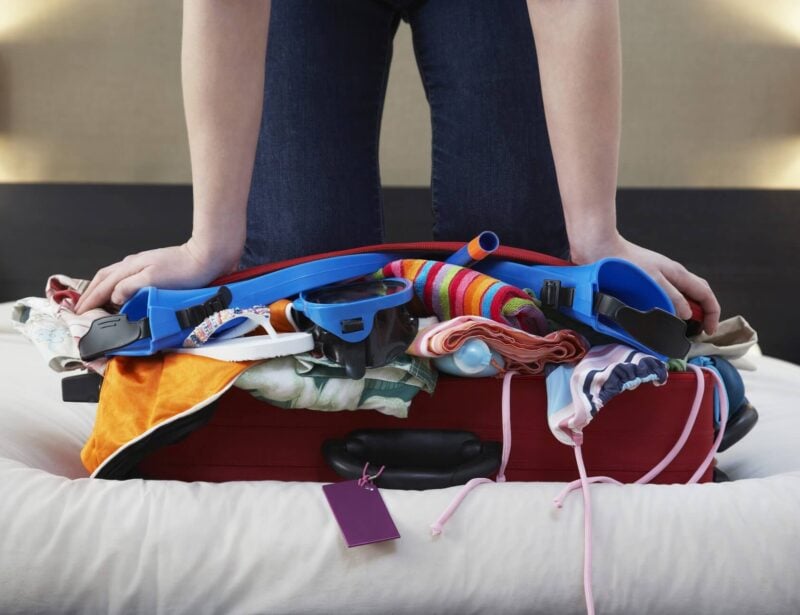
Wanna know how to pack like a pro? Well for a start you need the right gear….
These are packing cubes for the globetrotters and compression sacks for the real adventurers – these babies are a traveller’s best kept secret. They organise yo’ packing and minimise volume too so you can pack MORE.
Or, y’know… you can stick to just chucking it all in your backpack…
Okay, so we’ve got some budget travel tricks and tips under our belt. Now we’ve got to try and put a number on this whole excursion. Oof, I can hear the dirtbags tuning out of the hard numbers. They just want to dumpster dive their way through Europe and then go chill in Nepal for a bit – and that’s ok!
But the RTW backpackers want to put a hard number on their budget. So. I’d say if you’re travelling mostly through Europe, Oceania, or North America , you’ll spend around $20 000 in a year. If you’re travelling through Southeast Asia or Eastern Europe you’ll spend around $10 000 .
See, these are pretty arbitrary numbers when I just type them out. And the longer I spend not smoking, the more attracted I am to structured data. There’s just something so satisfying and distracting about a table.

The most impressive breakdown of how much one year of travel costs is this bad boy . Sharon did not fuck around when it comes to tracking every last dollar she spent on her first year abroad. I think it’s important to remain realistic about your route and the speed that you will conquer your RTW with.
But even a back of the envelope calculation like my one shows how far you can stretch a few dollars by being savvy. Travelling around the world for a year isn’t necessarily expensive.
The Back of the Envelope Calculations
Look, when the numbers are crunched, travelling the world for a year costs less than what you might think . Saving up for the legendary RTW is suddenly a little less daunting.
These back of the envelope calculations don’t include flights, internet costs, or a lot of the gear that you might want to buy beforehand. Still, it’s not that expensive.
Yet, the broke backpacker’s whole dealio is that we travel the world on less than $10USD a day . And we do do that. (Or at least I do!)
Once you’re on the ground haggling new prices , busking, dumpster diving, and hitchhiking it’s quite easy to not spend more than $10USD a day. It’s the flights, the broken laptops, the good quality backpacking gear, the stint in an Indian hospital stricken with dengue fever that pushes the cost up.
Also, if you build a bit of wiggle room into your budget you don’t find yourself in a shit hot mess (financially speaking).
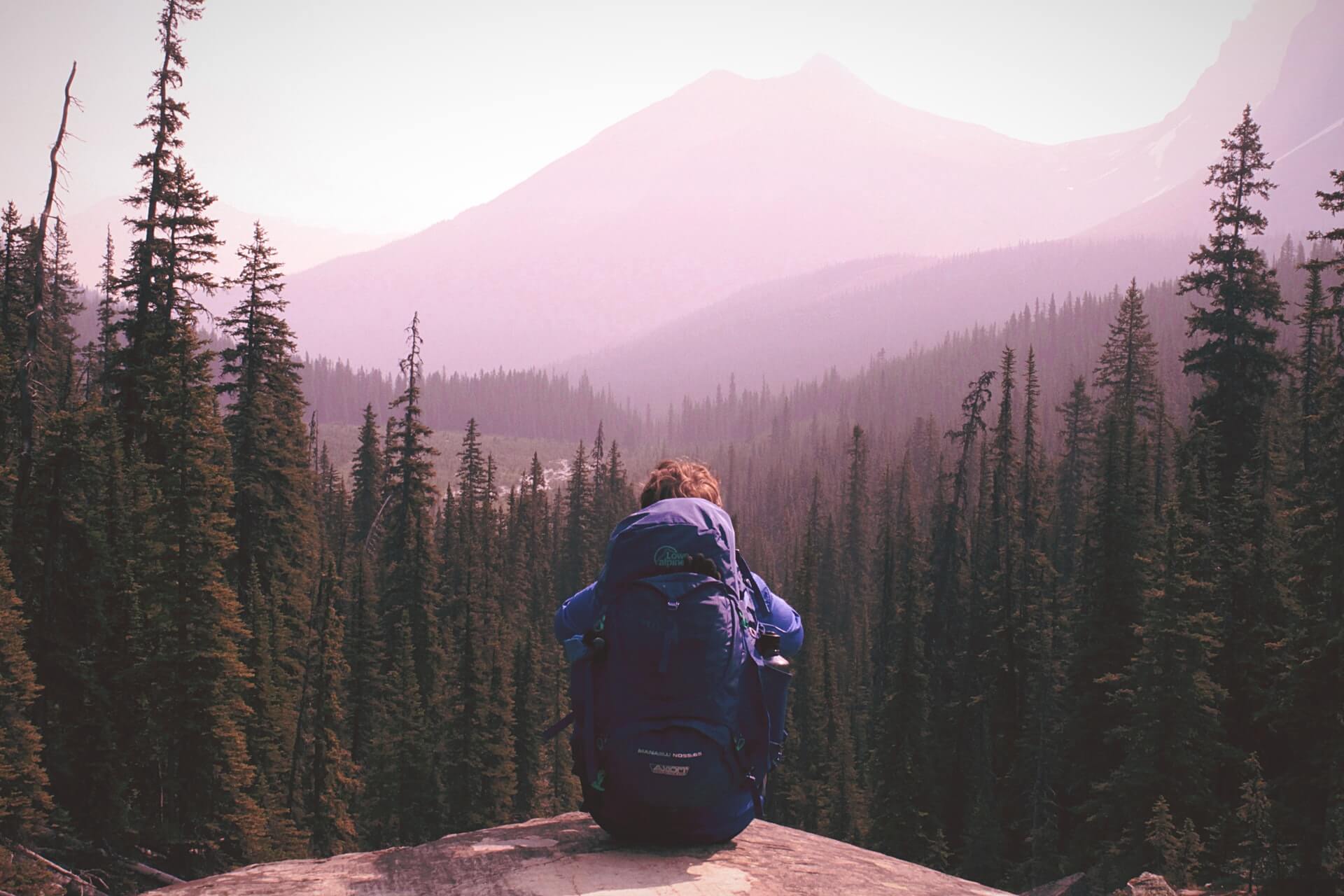
Also, even if you spend $10 a day, I would still recommend investing in good quality gear from the get-go. This limits the amount of time you spend sewing your pants back together – and reduces the risk that your bag goes kapootz in the middle of a busy street in Hanoi.
The fact is, many people will fall somewhere between a grunge-cat and a full-blown live-off-your-savings RTW, by getting a working holiday visa or working remotely along the way as a digital nomad.
In this case, not only can you deploy budget hacks to keep your daily costs below $10 a day as a weapon against a depleting bank account, but you have an income too! Even the grungiest of dirtbags will admit that it’s nice to be able to afford a fat joint every now and then!

Our GREATEST Travel Secrets…
Pop your email here & get the original Broke Backpacker Bible for FREE.
Maybe you’ve got $20 000 set aside for an EPIC RTW. You’re happy living the hostel life and splurging on the occasional SCUBA diving trip.
Or maybe, you’ve got a more humble budget in mind.
In this case, you’re probably going to want to work a little to bring down the cost of your year of travel. You can always find the shitkicker backpacker jobs if you’re willing to get your hands dirty. Speak a little of the local language and a construction site will be hard-pressed to say no to your help for the day.

Most hostels will look for backpackers to run the front desk, do some cleaning, or run the bar in exchange for a bed and some pocket money. Then there’s the seasonal work or teaching English that you can pick up along the way.
I’ve done everything from picking fruit to working on a fishing vessel to bartending for a little extra cash for the travels ahead! Now if you’re planning to turn your one year on the road into multiple years on the road, the hustling and seasonal work will appeal to you.
But eventually, you might start to think about a more sustainable way to bring down the annual cost of your travels. You might even start to think about how nice it would be to earn some kind of income again…
Alrighty, here’s the dirty little secret of long term travellers: you don’t just quit your job to travel ; you bring it with you .
Digital Nomadism
Location-independent work is not so unusual these days – and it’s likely going to become more popular as people get a taste of going remote. These days the team that makes up the broke backpacker would all mostly consider themselves digital nomads of some kind and have plenty to say about getting started as a digital nomad .

Many backpackers will start off as freelancers or entrepreneurs of some kind when they begin their digital nomad journey. As with any industry, there are some people who will try it out for a few months and quit; and then there are the lifers.
It’s just so addicting to have the ultimate flexibility and freedom of travel paired with the undeniable goodness of regular income, no matter how much digital nomadism changes your travel .
Just a few of the digital nomad jobs include:
- IT and tech jobs – web and software development, UI/UX design
- Creative jobs – photography, creative writing
- Writing jobs – copywriting, blogging
- Marketing jobs – e-commerce, product management
- Language jobs – teaching English, translation, transcription
Volunteering on Your Trip Around the World
If you want to lower some travel costs but aren’t sold on the whole hustling, capitalist beast (or maybe you just want to do a little good) I’d suggest thinking about volunteering! You’ll lower your travel costs, connect with local communities, and give back all your best vibes and smiles while you’re at it.
Whenever you are volunteering, do stay vigilant, especially when working with animals or children. Volunteer programs, like Workaway , run through reputable work exchange programs are more well-managed and reputable.
At The Broke Backpacker, we recommend Worldpackers : a review based program that connects well-meaning volunteers with reputable programs worldwide.
You can rest easy knowing you’re doing a little good for the community that you’re in.

Worldpackers: connecting travellers with meaningful travel experiences.
8 Steps to a Successful Round the World Adventure
What’s sexier than a budget table or a very detailed spreadsheet? An infographic!
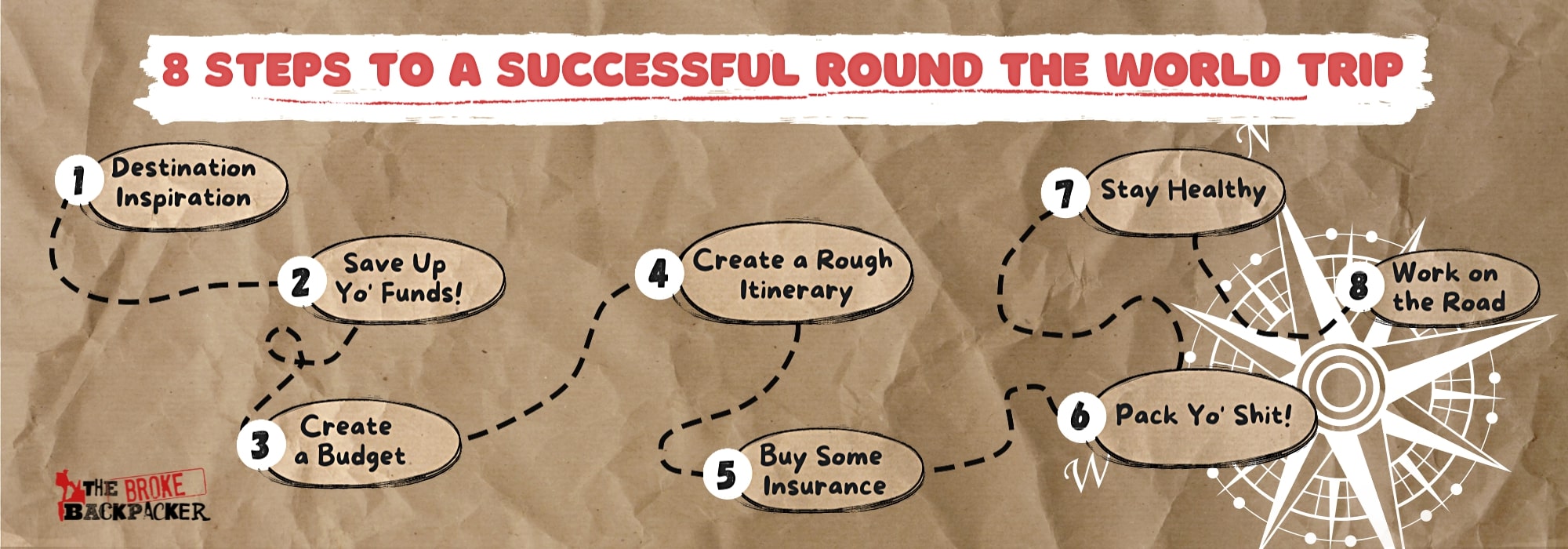
- Get some destination inspiration . This is what’s going to carry you through the hard, hustle times. That beautiful sunset over a beach that you have to yourself; that epic trek through the Andean Highlands. Stay inspired!
- Save some coins . Even the dirtbags have got to buy the odd plate of tacos! However, you save up for your trip, keep that inspiration fresh in your mind.
- Create your budget . Know the hard limits. Know when it’s time to hustle again.
- Have a loose itinerary . Remember, less is more! The slower you can go, and the more flexible your itinerary, the cheaper your round the world trip becomes.
- Get some dang insurance . Yeah, even you grungy broke backpackers should consider this! No one thinks they’re going to die of dengue fever in a Guatemalan hospital until it’s too damn late. In which case, good travel insurance saves you a shit tonne of money.
6. Pack up yo’ shit! Investing in good gear means that sexy camping spots open up for you and your underwear doesn’t have holes in them after 4 weeks. Get that good gear, yo!
7. Stay healthy . Travelling is a liminal space between who you were and who you will become. There’s a helluva lot of transformation going on, along with some serious physical stressors. Stay hydrated, eat well, and take care of yourself – including staying fit on the road.
8. Work on the road . Inevitably, you’ll get more destination inspiration. And then you’ll need to save up some money again so that you can set a budget, make a new itinerary, get more insurance, and pack all over again! Getting a job on the road makes it possible to keep this dream machine going.
The Ultimate Adventure Packing List
Get a load of this in your backpack and you’ll be well on your way to getting the perfect packing list . You don’t want to be the kid with luggage that’s 20kg too heavy, but there’s no point skimping on the essentials either!
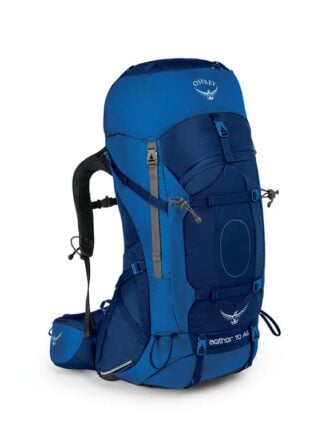
Osprey Aether 70L Backpack
Ya can’t go backpacking anywhere without a blasted backpack! Words cannot describe what a friend the Osprey Aether has been to The Broke Backpacker on the road. It’s had a long and illustrious career; Ospreys don’t go down easily.

Feathered Friends Swift 20 YF
My philosophy is that with an EPIC sleeping bag, you can sleep anywhere. A tent is a nice bonus, but a real sleek sleeping bag means you can roll out anywhere in a and stay warm in a pinch. And the Feathered Friends Swift bag is about as premium as it gets.

Grayl Geopress Filtered Bottle
Always travel with a water bottle! They save you money and reduce your plastic footprint on our planet. The Grayl Geopress acts as a purifier AND temperature regulator – so you can enjoy a cold red bull, or a hot coffee, no matter where you are.

Petzl Actik Core Headlamp
Every traveller should have a head torch! A decent head torch could save your life. When you’re camping, hiking, or even if the power just went out, a top-quality headlamp is a MUST. The Petzl Actik Core is an awesome piece of kit because it’s USB chargeable—batteries begone!
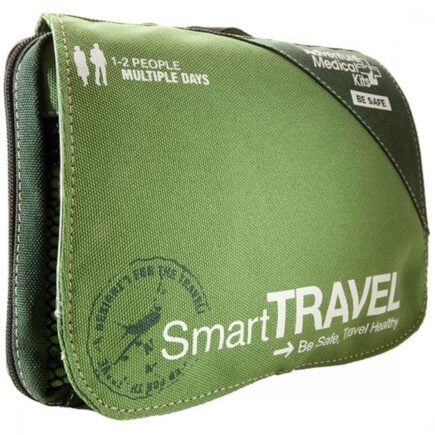
First Aid Kit
Never go off the beaten track (or even on it) without your first aid kit! Cuts, bruises, scrapes, third-degree sunburn: a first aid kit will be able to handle most of these minor situations.
If you spend any time in a tourist hotspot, you’ll take no convincing that some tourists are dickkkkkkkkkkks .
I think that ultimately, no matter how cheaply we’re travelling, we have a responsibility to travel sustainably . There’s no need to throw your garbage out the window just because the country’s waterways are already full of garbage. You don’t gotta be that guy.
In fact, if you’re looking to reduce the amount of plastic you use, you can always go for a filtered water bottle . This way you aren’t spending needless money on plastic bottles AND you aren’t contributing to the landfill problem. Heaps yeah! The turtles say thankyou, homie!

And then there are the little things that stem from a little cultural awareness. Dressing modestly where necessary, not carving your name into sacred temples, using your manners; you know, the stuff that would make your mum proud.

I think that the slower you travel, the more that you can grasp the intricacies of cultural awareness and reduce your environmental footprint – AKA the two core components to travelling sustainably. You will fly less and say please more when you travel slowly and have nowhere you need to be.
Travelling slowly is less stressful for you as well, and I believe, you have a responsibility to yourself and your mental health when you travel too. Because at the end of the day, if you neglect your mental health you’re more likely to act like a dick and travel less responsibly.
It’s all connected!
Basically, if you can nail responsibility to yourself, to others, and to the environment you’re probably doing your bit to make sure travelling remains a net positive force in the world.
I’ve got your burning questions about the cost of travel for one year answer RIGHT HERE!
How much should I save if I want to travel for one year?
While most estimates put the number at $20,000 per year , I think it really depends on your style of travel and whether you think you’ll be indefinitely on the road afterwards. If you are committed to a year of budget travel that might include a few splurges and no proper working, then yeah, I’d say $20,000 is accurate. If you hustle or get some seasonal work or become a digital nomad, you may end up travelling for far longer and your yearly costs are going to be significantly less.
Can I travel with no money?
Helllllll YES! Well, it depends on what you mean by “no” money. You can gain income along the way by seasonally working or becoming a digital nomad and offset everything you spend with your income. Or you can straight up not work and travel like an absolute grunge-cat hitchhiking and dumpster diving and still not spend any money.
Is it worth travelling around the world for a year?
I think it’s, hands down, one of the most transformative things you can do. The perspective you will gain and the memories you will make are second to none. Book that ticket!
So should you do it? Should you quit your job and travel the world for a year? Well I dunno, I’m not your life guru. 😉
But now you know that travelling the world for a year is really rather achievable. You don’t have to sacrifice everything for your once in a lifetime round the world trip. It’s perfectly feasible to save up and take the trip of a lifetime! A year’s worth of travel may only set you back $20,000.
And when you inevitably catch the travel bug, you can find budget hacks and jobs on the road to keep you going. Soon you will realise that you don’t need that much money for a year to travel. You can go full grungy dirtbag and hitchhike your way into a new adventure. Orrrrrr, you can take the happy medium and enjoy an exciting RTW adventure for a year.
Through it all, you’ll let in the transformative power of travelling .
Because ultimately, travelling opens you up to many new perspectives on the world and really drives home that we have one Earth. We have more in common with each other than we think and we have a responsibility to pull ourselves together to keep this planet in good knick.
Stay golden team, and I’ll see you out there on the road!
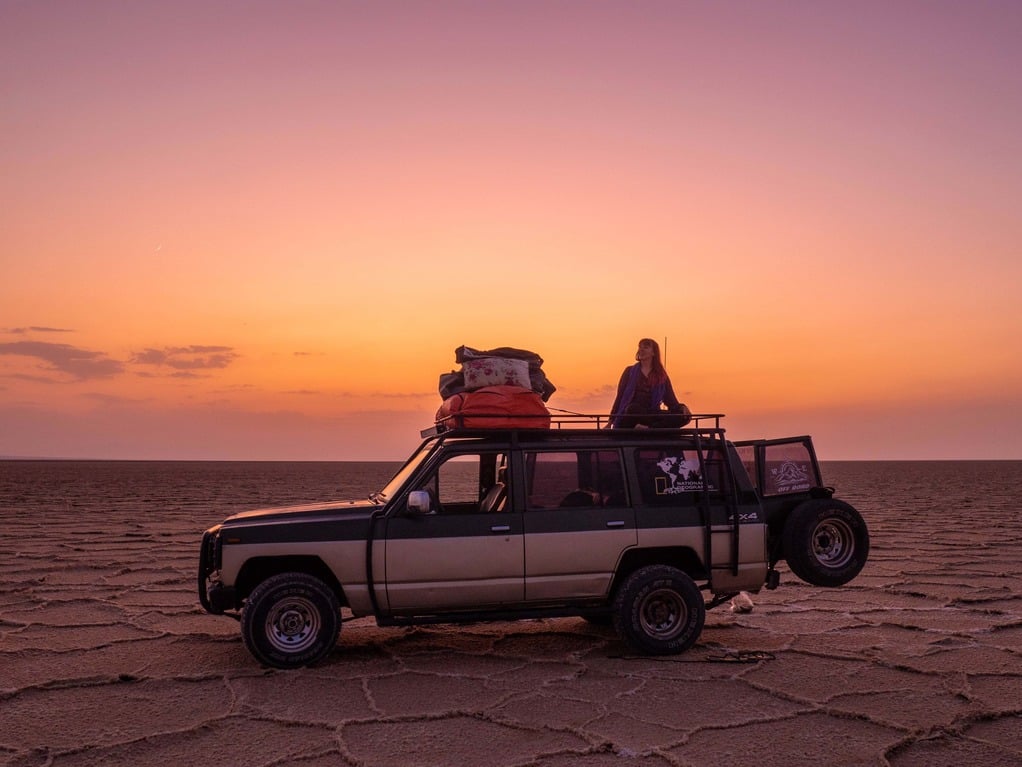
Buy Us a Coffee !
A couple of you lovely readers suggested we set up a tip jar for direct support as an alternative to booking through our links. So we created one!
You can now buy The Broke Backpacker a coffee . If you like and use our content to plan your trips, it’s a much appreciated way to show appreciation 🙂

Indigo Blue
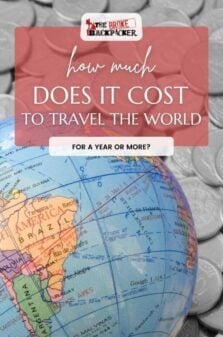
Share or save this post

Hi. This is a really useful blog thank you. ? My partner and I are planning to setting off on our travels from England in January 2025. We will definitely have £40,000 between us when we go. potentially £45-47,000 (but this will be a bonus if so!). We want to travel South East Asia, then over to Mexico and travel through Central and South America (for Colombia, Peru, Bolivia, Ecuador). I am worried our £40,000 will not be enough money given inflation costs post-covid. We will be happy to travel overland, quite slowly. We can stay in hostels… we don’t really like to camp (with the odd private room where its cheaper – we are a couple after all!). We do like yo do a bit of diving and Trekking. We aren’t limited on time. Do you have any thoughts on our budget? I have been wondering if we should postpone and save up more but I really don’t want to!
Hi Alisha, I often lament that you need at least 2 of the 3 following to travel, time , money, motivation to make it work should you be lacking either of the first two. You are super lucky and appear to have all three. Don’t wait, go in Jan 2025. More importantly than what you have in the bank is making a realistic daily budget and sticking as best you can to it. Really decide what things you are willing to splurge and sacrifice on.
In my experience drinks (of all types) can be a daily budget breaker, so you can do things like forgo fancy coffee and just have the local brew. Living and travelling like a local will always stretch your money further.Getting involved in projects or workaways will also help. Try to get some interest on the cash you do have in the bank and make sure you find a least two banking products that allow you free access to your money abroad and have them fully set up before you set off. Wishing you a great trip!
Leave a Reply Cancel reply
Your email address will not be published. Required fields are marked *
Save my name, email, and website in this browser for the next time I comment.
Notify me of followup comments via e-mail.

You’ve been travelling all day. You ____ be tired!
B. mustn’t
C. can’t
Select your answer:
Next Quiz >
Other quiz:
Check the past tense verb(s) in the sentence.
Abe refused to hurt or hunt animals. _ A. Abe
Jessica is a(n) …………………… teacher. She never gets angry with questions of students. She answers every question …………………… .
A. enthusiastically / enthusiastic
B. patient / patiently
C. skillfully / skillful
D. well / better
E. the best / well
How to use : Read the question carefully, then select one of the answers button.
GrammarQuiz.Net - Improve your knowledge of English grammar, the best way to kill your free time.

IMAGES
VIDEO
COMMENTS
Even if you were traveling for fun, and enjoyed every moment of your trip, you somehow crave stability, routine, and rest. This could be a sign of travel fatigue. Although travel fatigue doesn't get as much press as jet lag, this temporary exhaustion drains your energy and can feel like burnout. Travel fatigue, unlike jet-lag, doesn't even ...
What is Travel Fatigue? 8 Ways Avoid It & Recover
Why travel should be considered an essential human activity
How to Road Trip Across the United States on a Budget
16. Travel Helps You Get Physically Active. In a world where spending all your time in front of a computer is an acceptable way to lead your life, travel gets us moving. Getting from point A to point B requires that we leave the house and get on a plane (or train, car, boat).
The perfect itinerary for an epic USA roadtrip (48 states at ...
The Ultimate Packing List
15 Benefits of Travelling and Why Travel Is Good for You
Here's what you need to know to plan a trip around the world
What Is Travel Insomnia? As a medical diagnosis, insomnia describes difficulty falling asleep and staying asleep. 1 To be considered true insomnia, your symptoms have to stick around for a minimum of three nights a week for at least three months, says Dr. Chester Wu, MD, sleep medicine physician in Houston, TXTravel insomnia describes temporary trouble sleeping that any traveler can experience ...
How much data do you need when traveling internationally?
Here's Everything You Need to Travel the World
Never go to the airline's own website. Instead, use "meta-search engines" while check and compare the rates for multiple travel sites at once. Also, try to book tickets around 3 months in advance, and choose flexible criteria - especially for the exact day of travel. See what the cheapest day is during the week or month around when you ...
Excessive daytime sleepiness (EDS) is a symptom in which extreme sleepiness occurs during the day, even when you've gotten enough sleep at night. EDS is more than feeling groggy and fatigued; the need to sleep interferes with daily activities and increases the risk of health issues and traffic accidents. Possible causes for EDS include sleep ...
How to plan a trip around the world
In fact, done right, food can be the cheapest part of your whole travelling day. You could venture deep into the bowels of a marketplace in Mexico, pet chicken in tow (I was going through something - don't ask), and score a plate of tacos for $1. You bite into this magical, mystery meaty, pico de gallo topped taco of goodness.
Wanderlog: travel itinerary, vacation & road trip planner
Work: "I'll be in meetings all day" implies that the person will be engaged in one meeting after another throughout the day. Contrarily, "I'll be busy the whole day" suggests that the person's day is full, but not necessarily with meetings alone. Travel: "We explored the city all day" means that the exploration was ongoing during daylight hours.
C. skillfully / skillful. D. well / better. E. the best / well. How to use : Read the question carefully, then select one of the answers button. About grammarquiz.net. GrammarQuiz.Net - Improve your knowledge of English grammar, the best way to kill your free time. You've been travelling all day. You ____ be tired!
3. The "Freeze and Squeeze". If you suddenly feel the need to urinate, most people with OAB start to panic and run to the nearest restroom. To give yourself more time, stop what you're doing and do a few kegels. 3 This will help give you enough time to get to a bathroom without running through crowds.